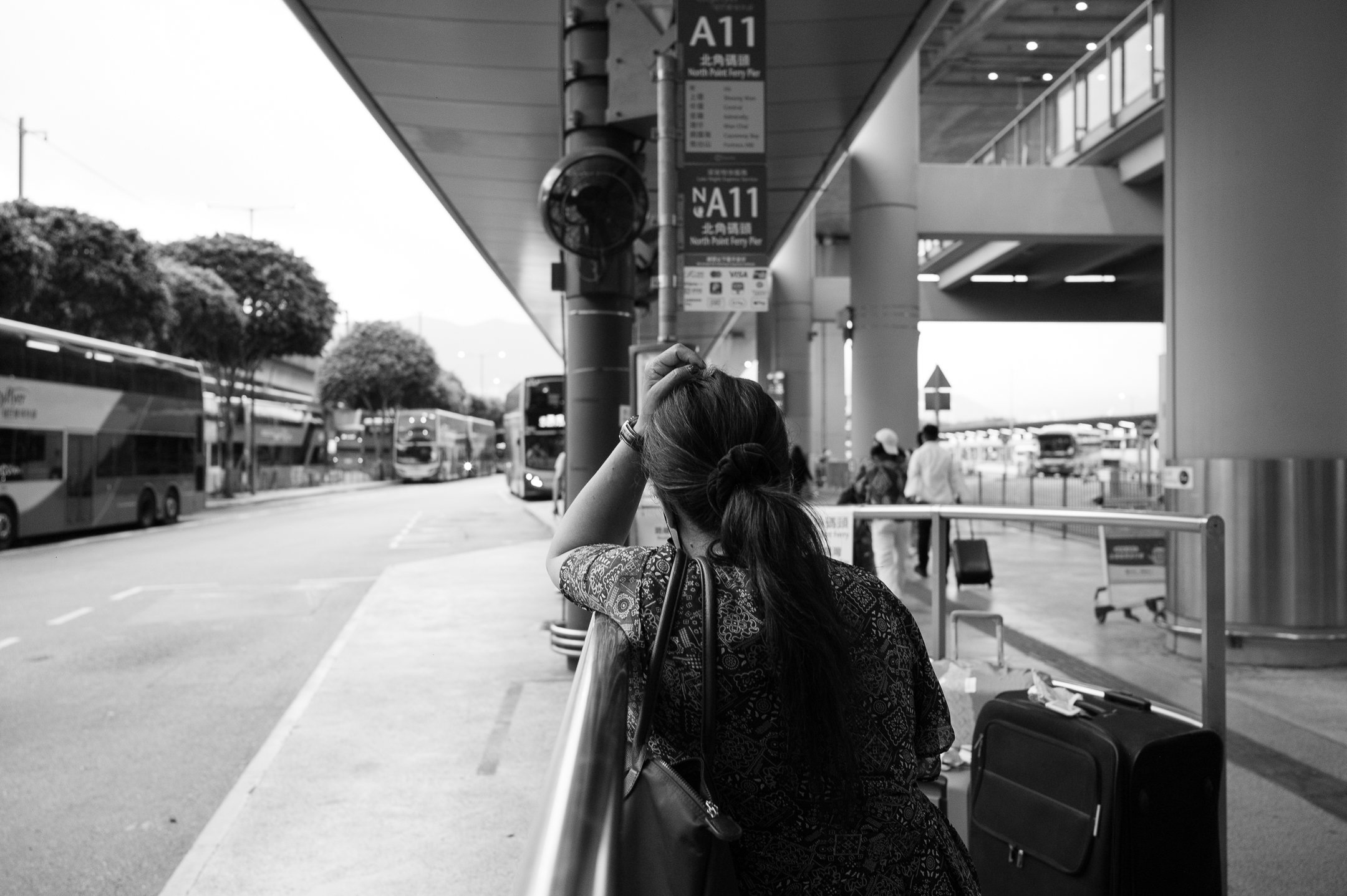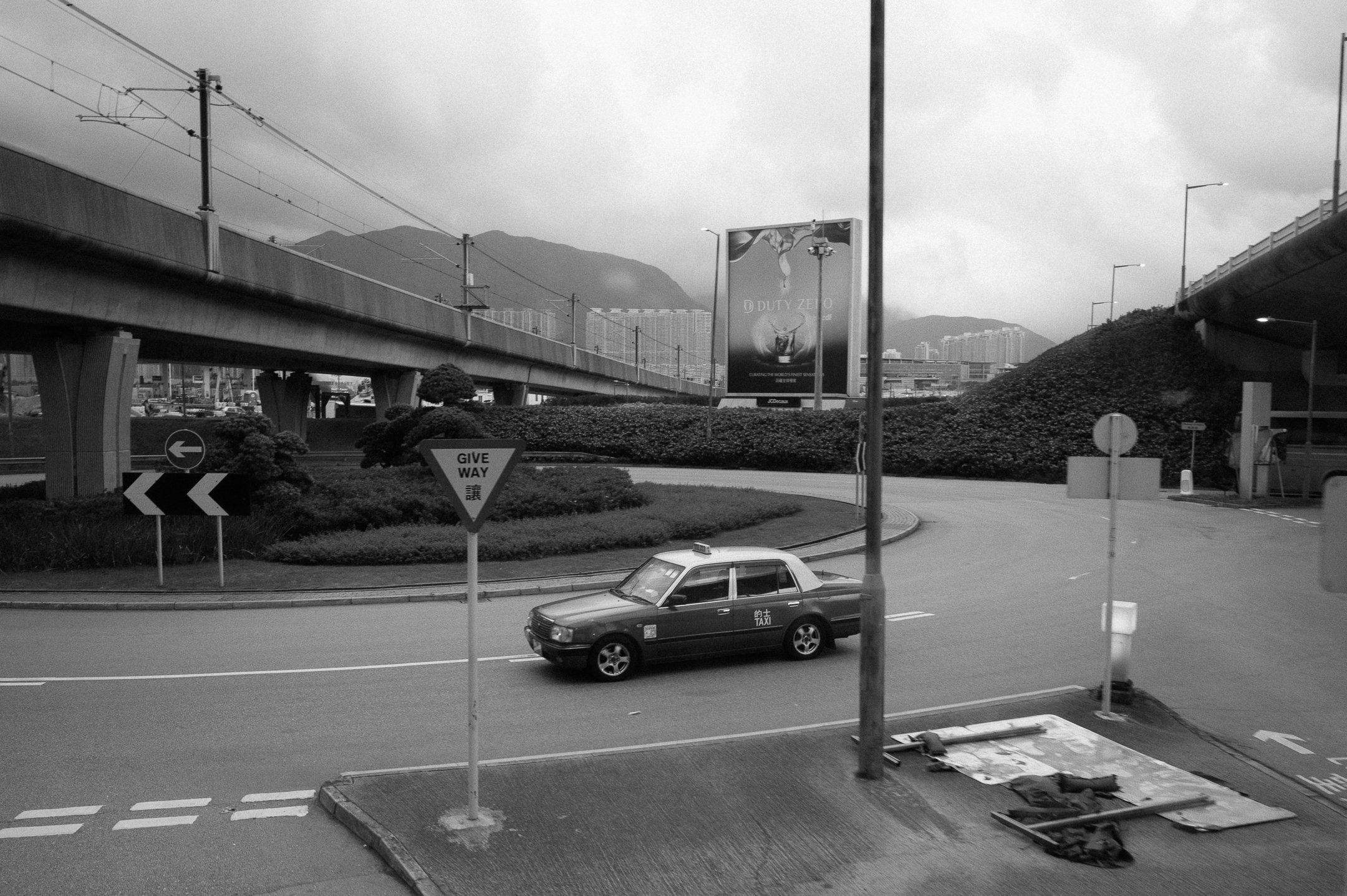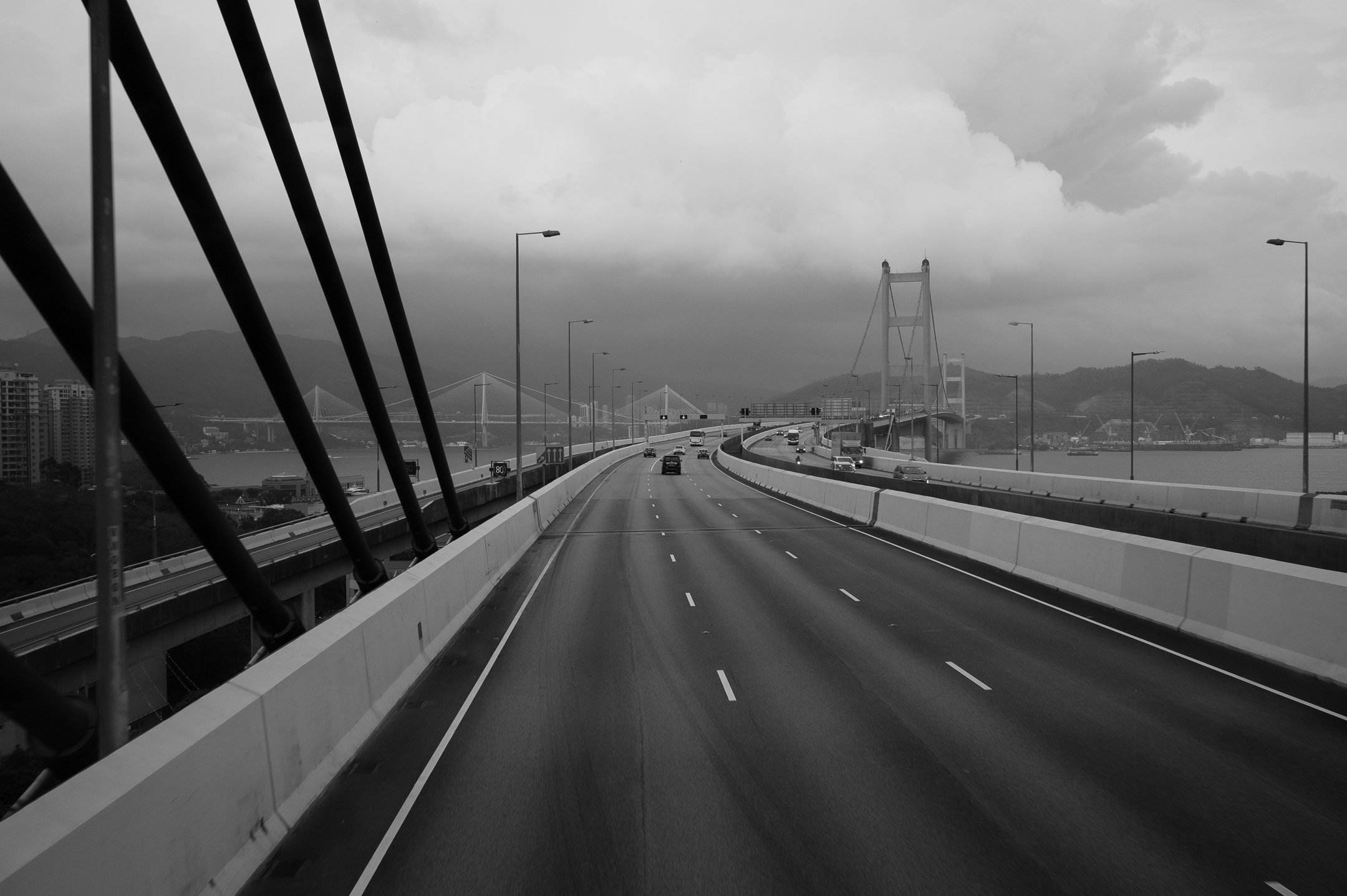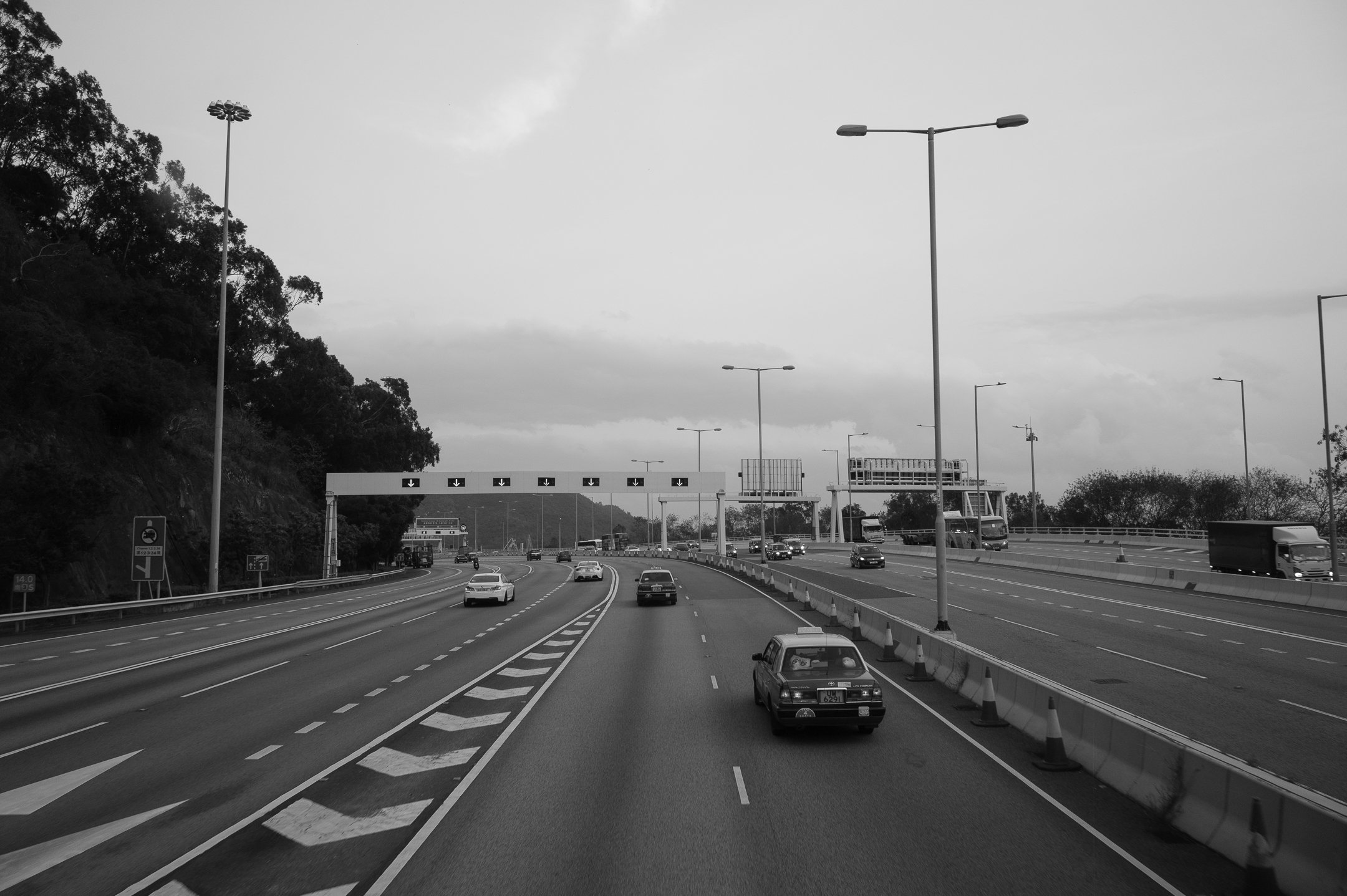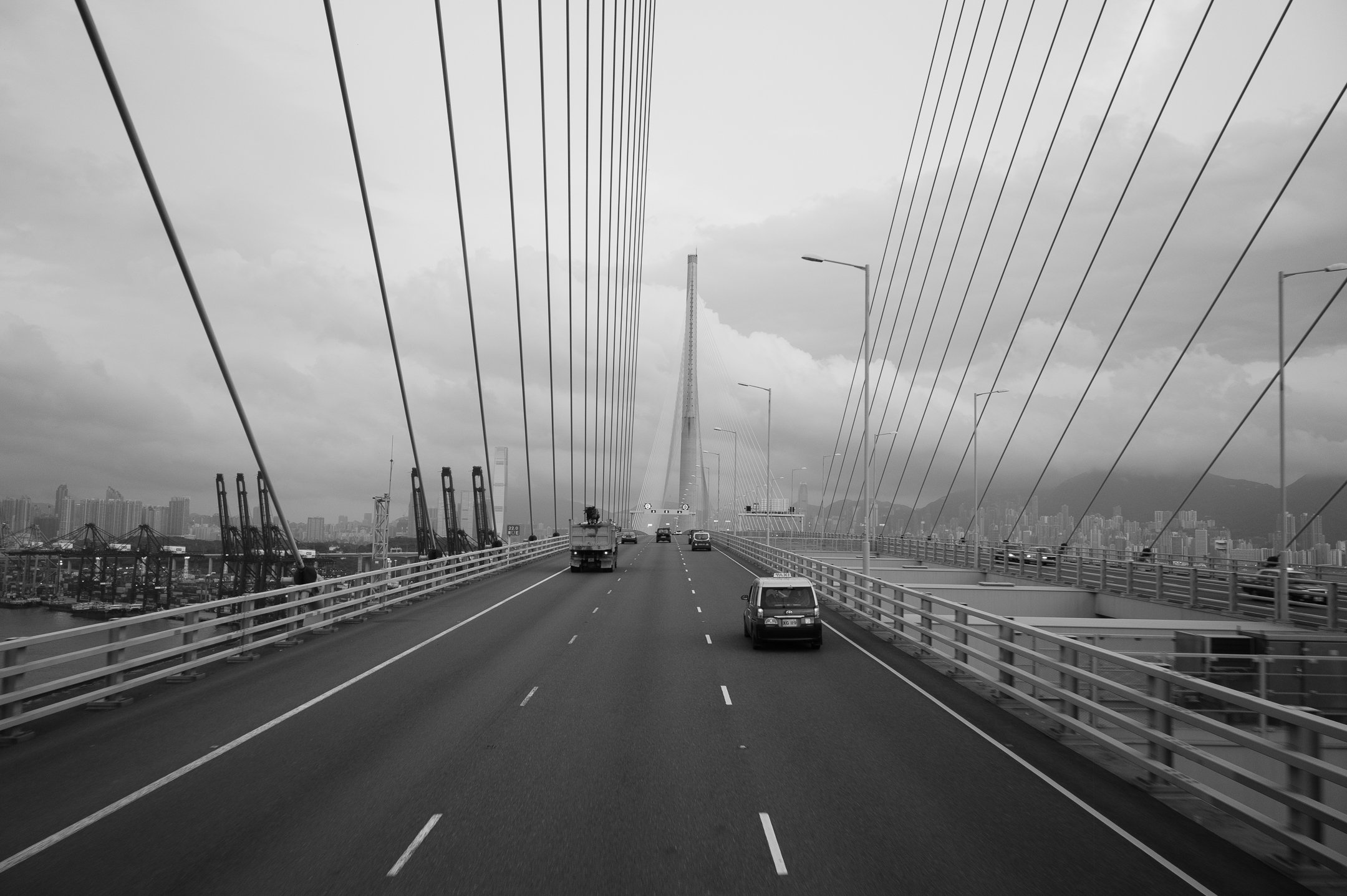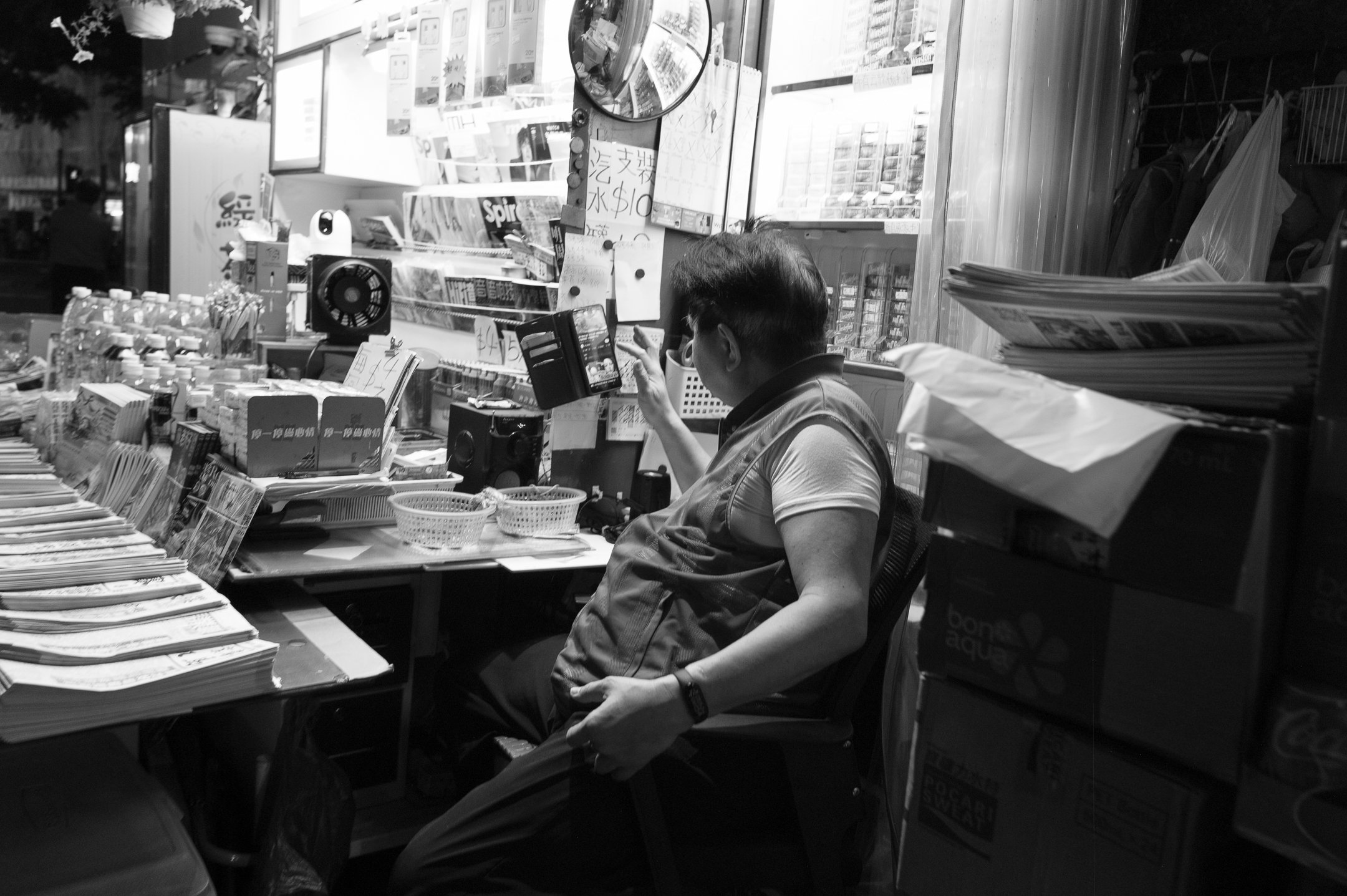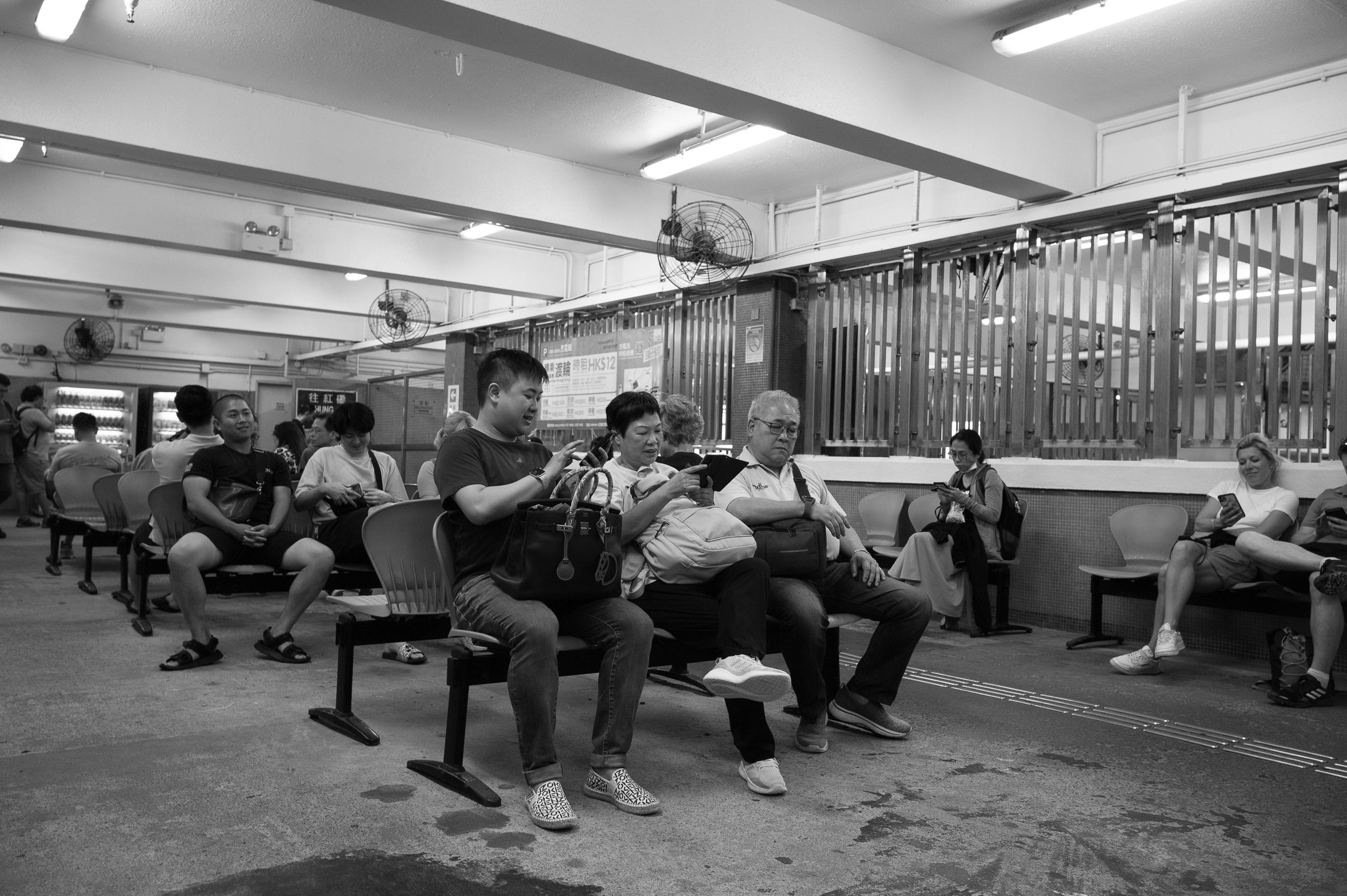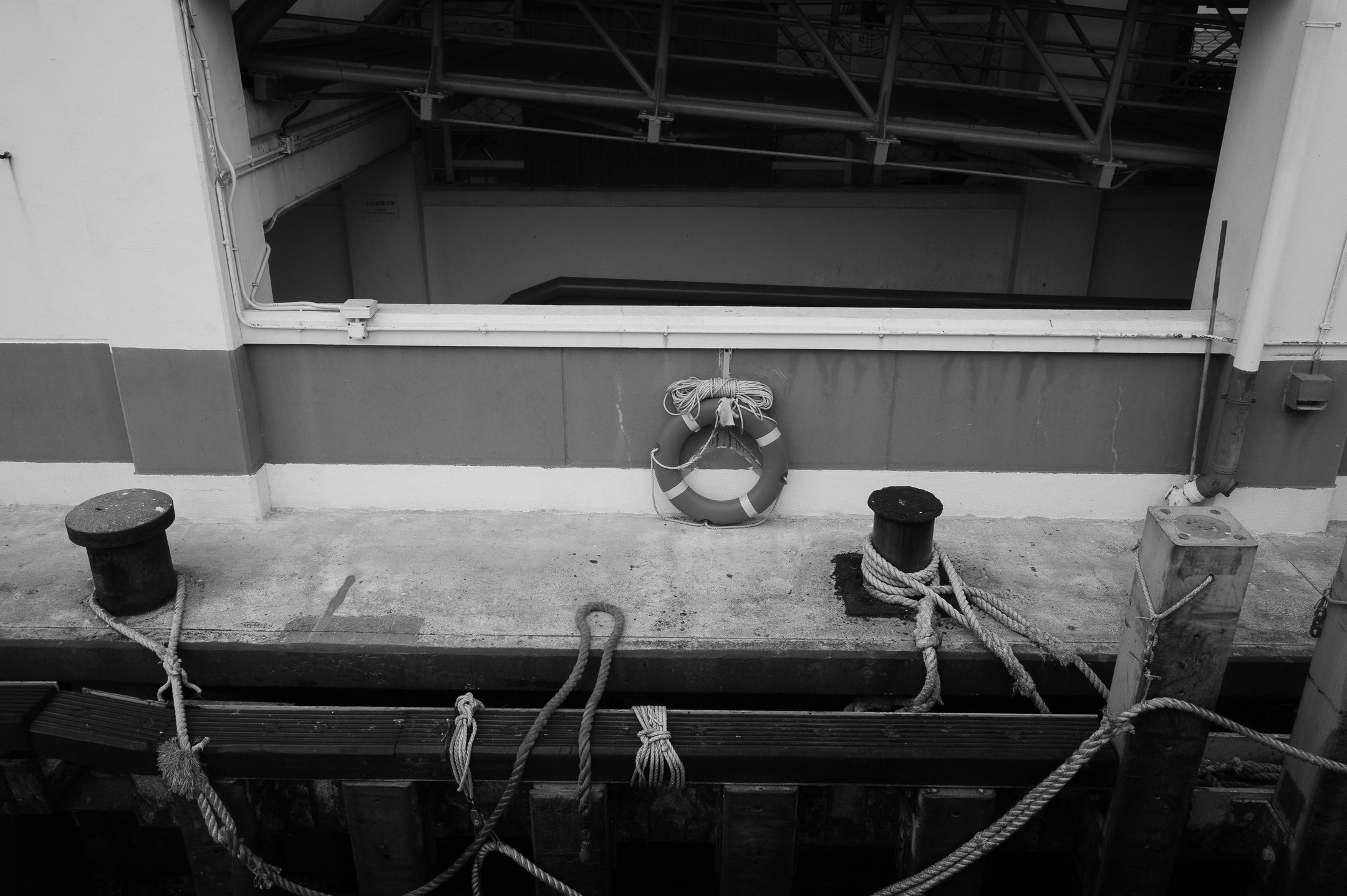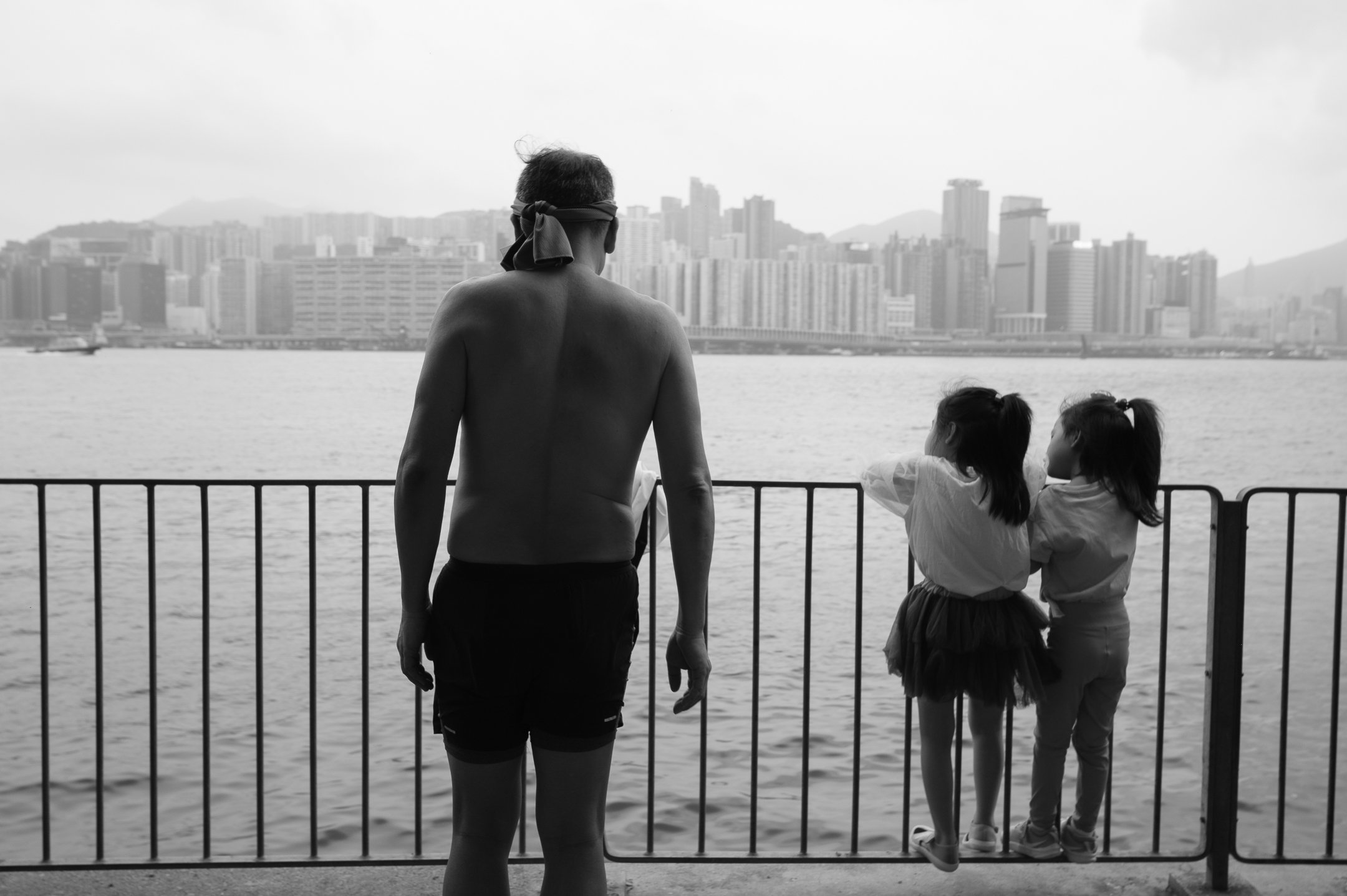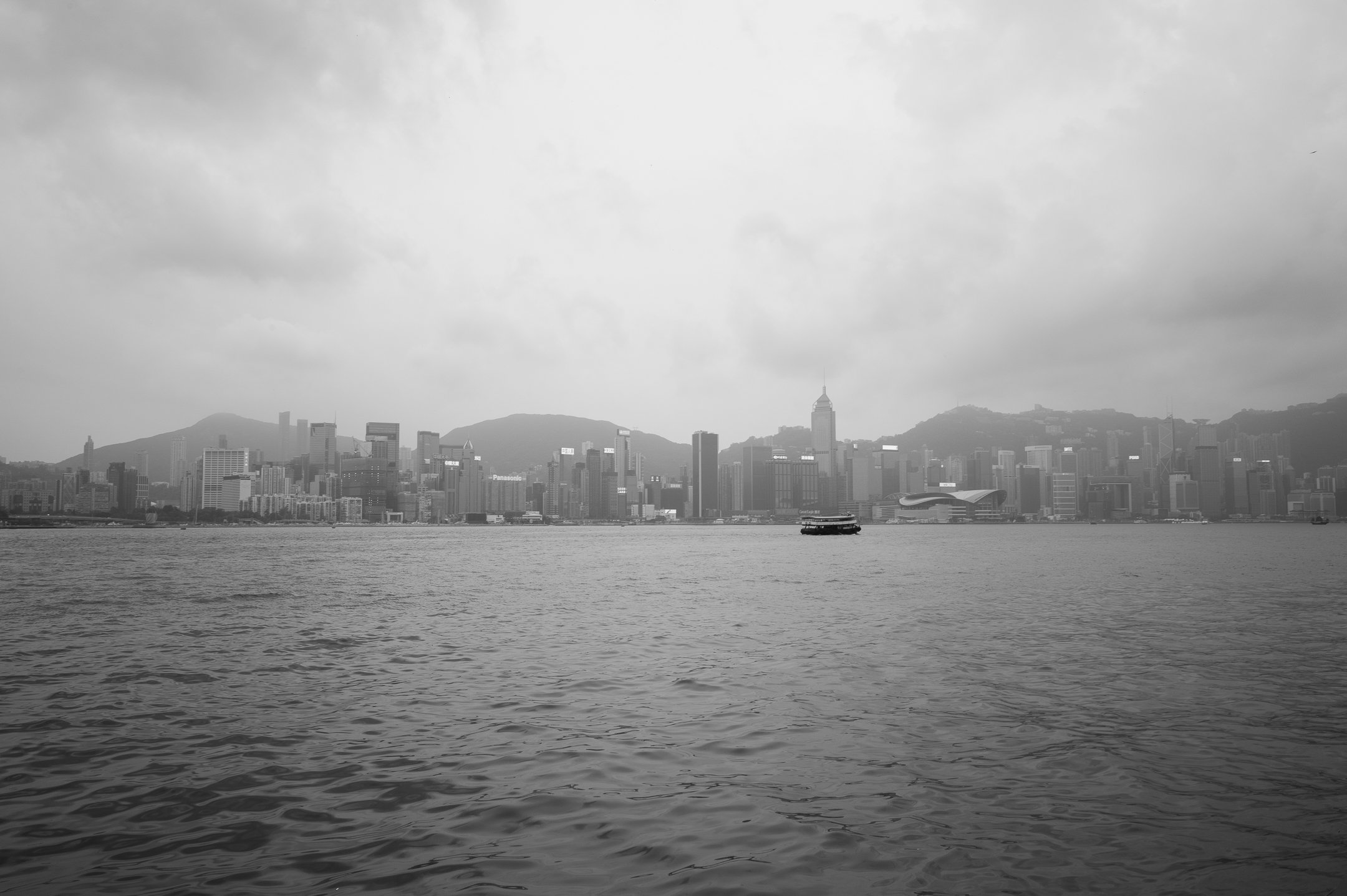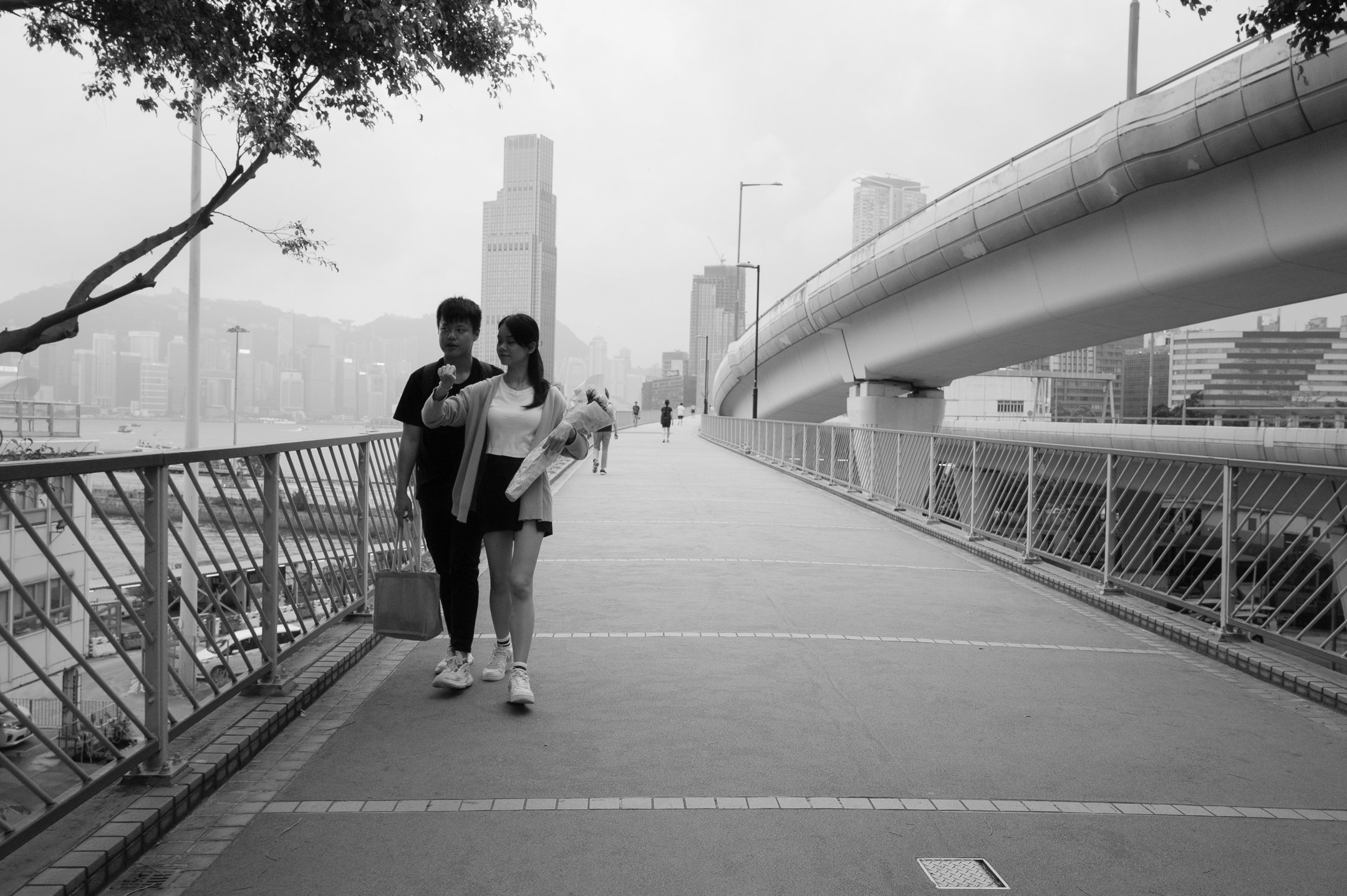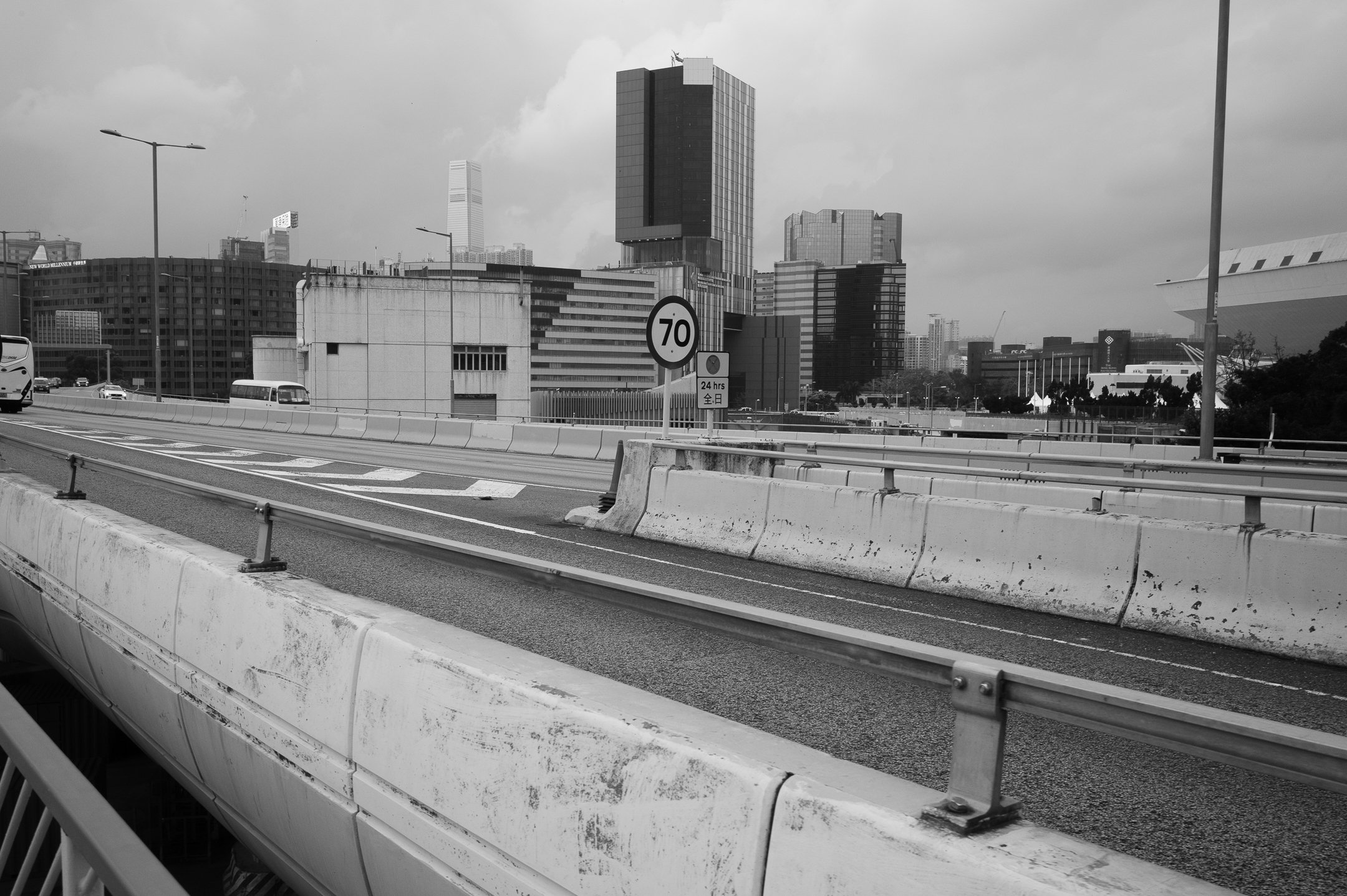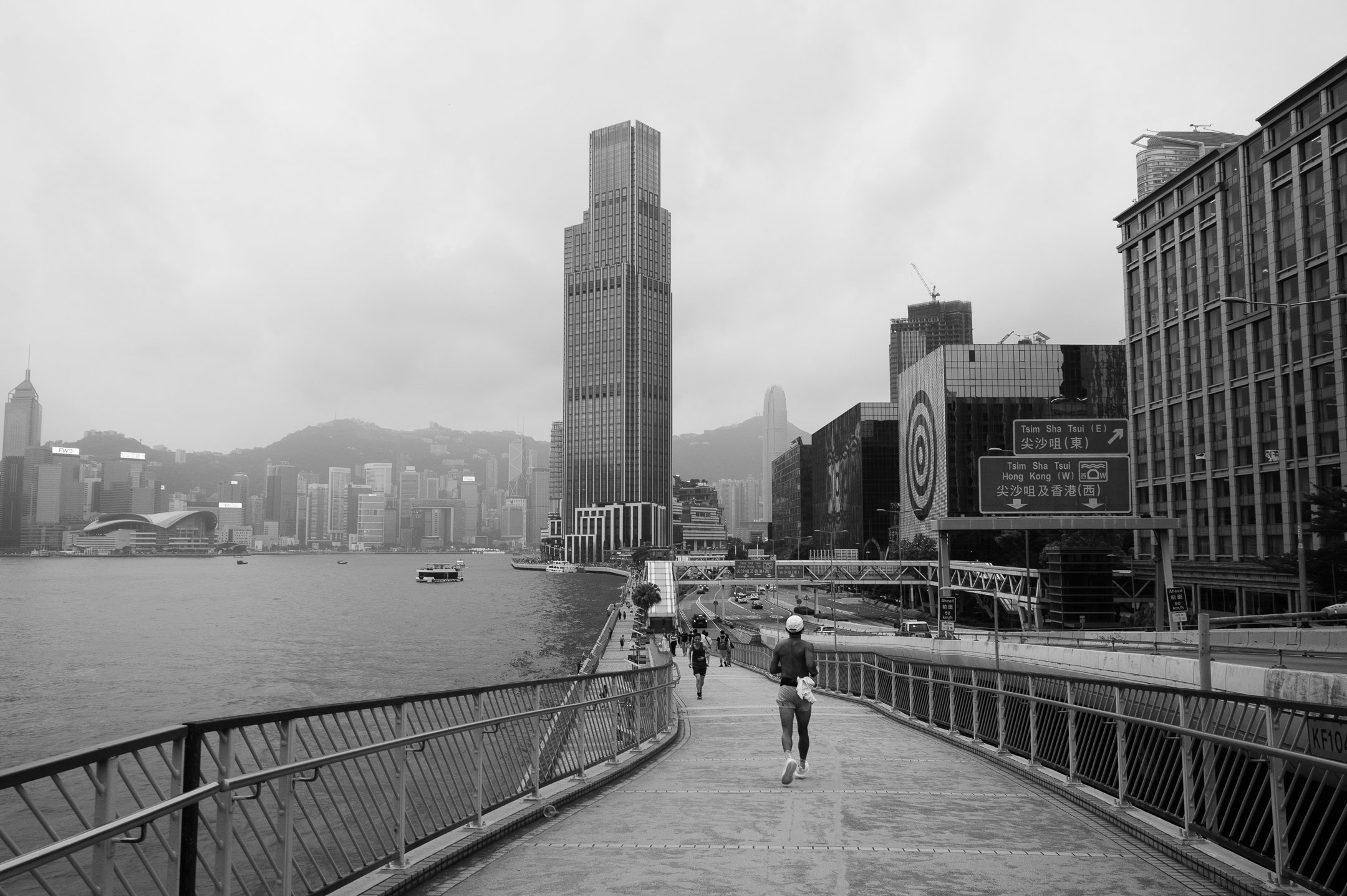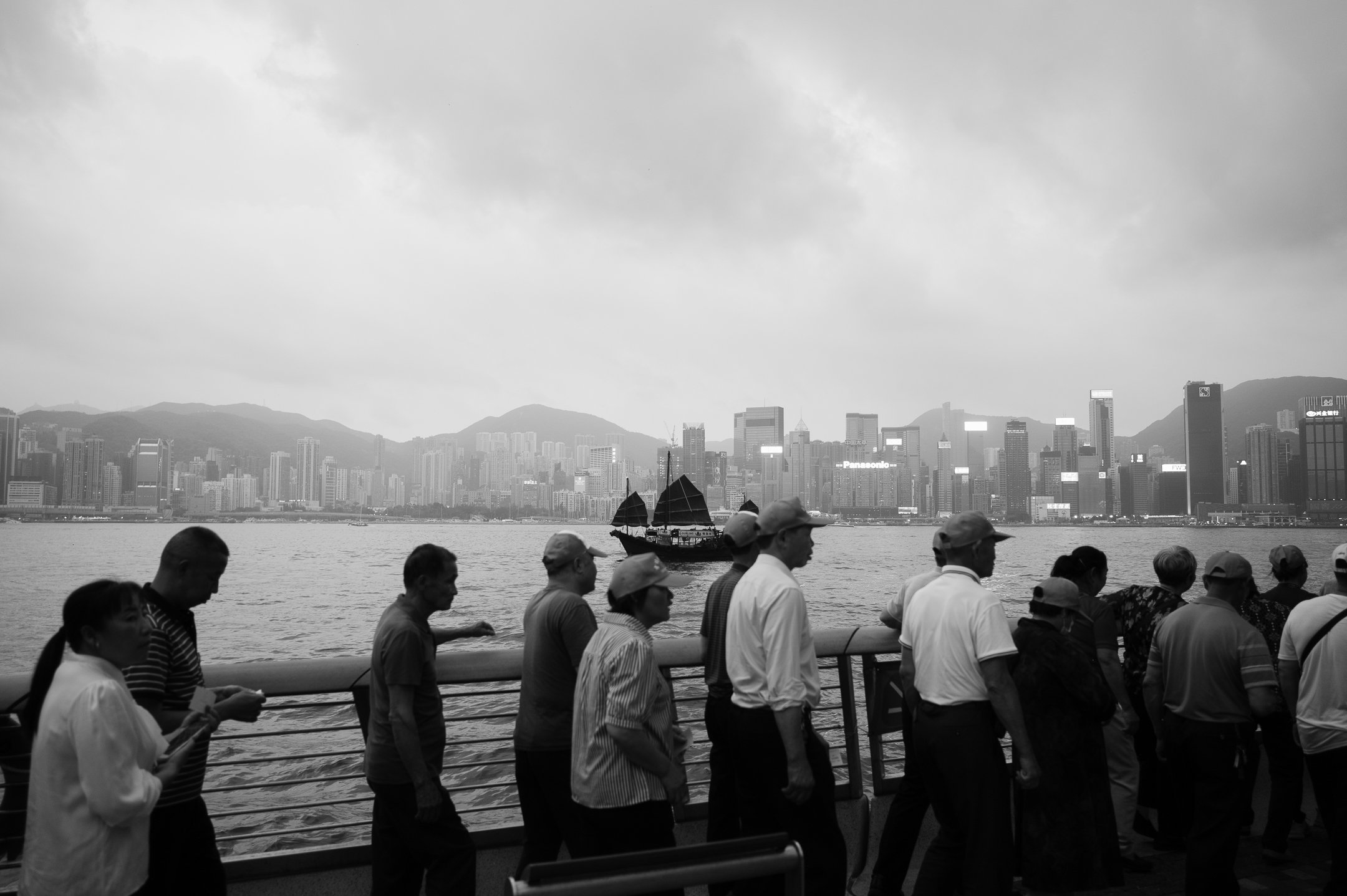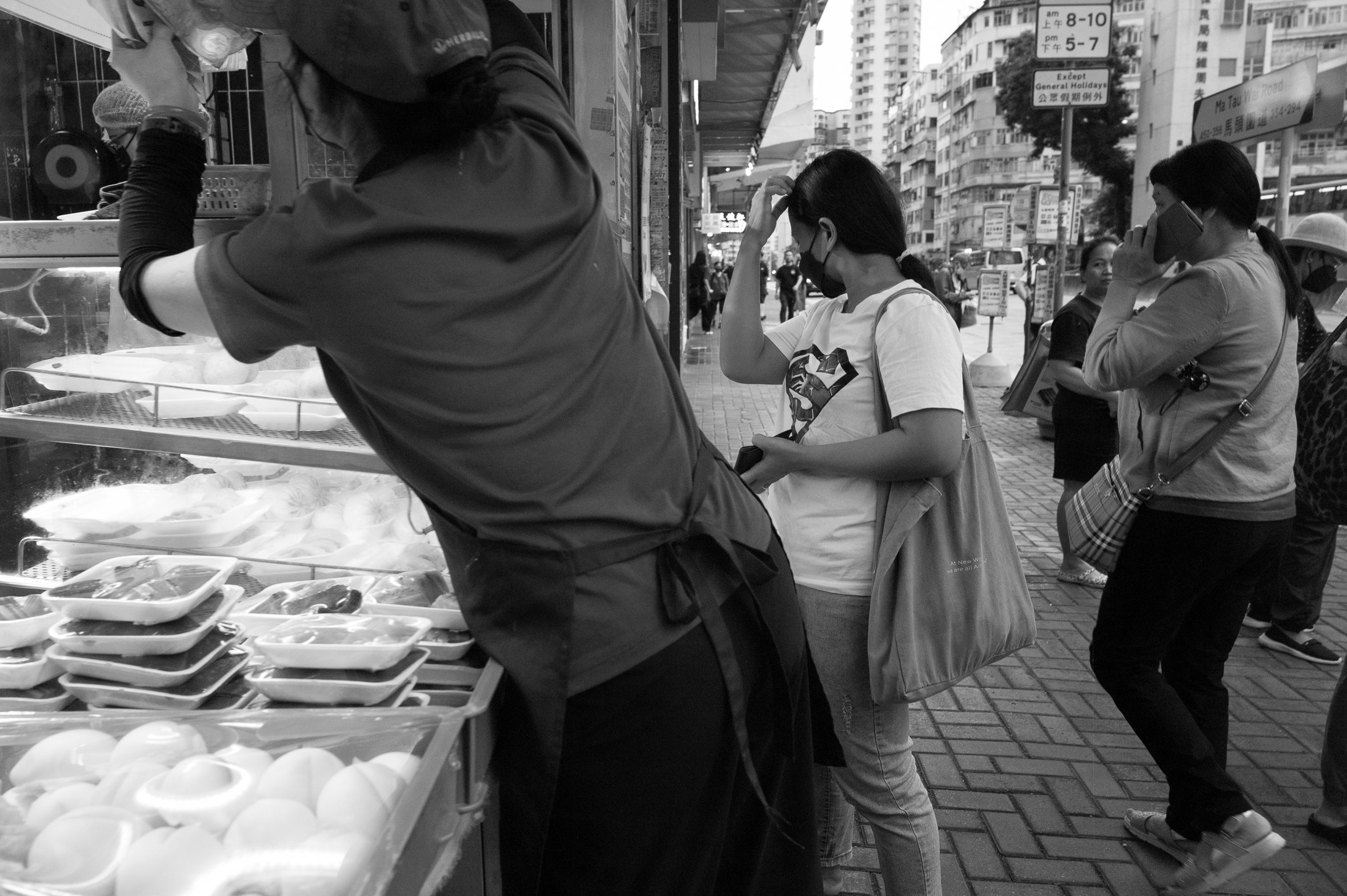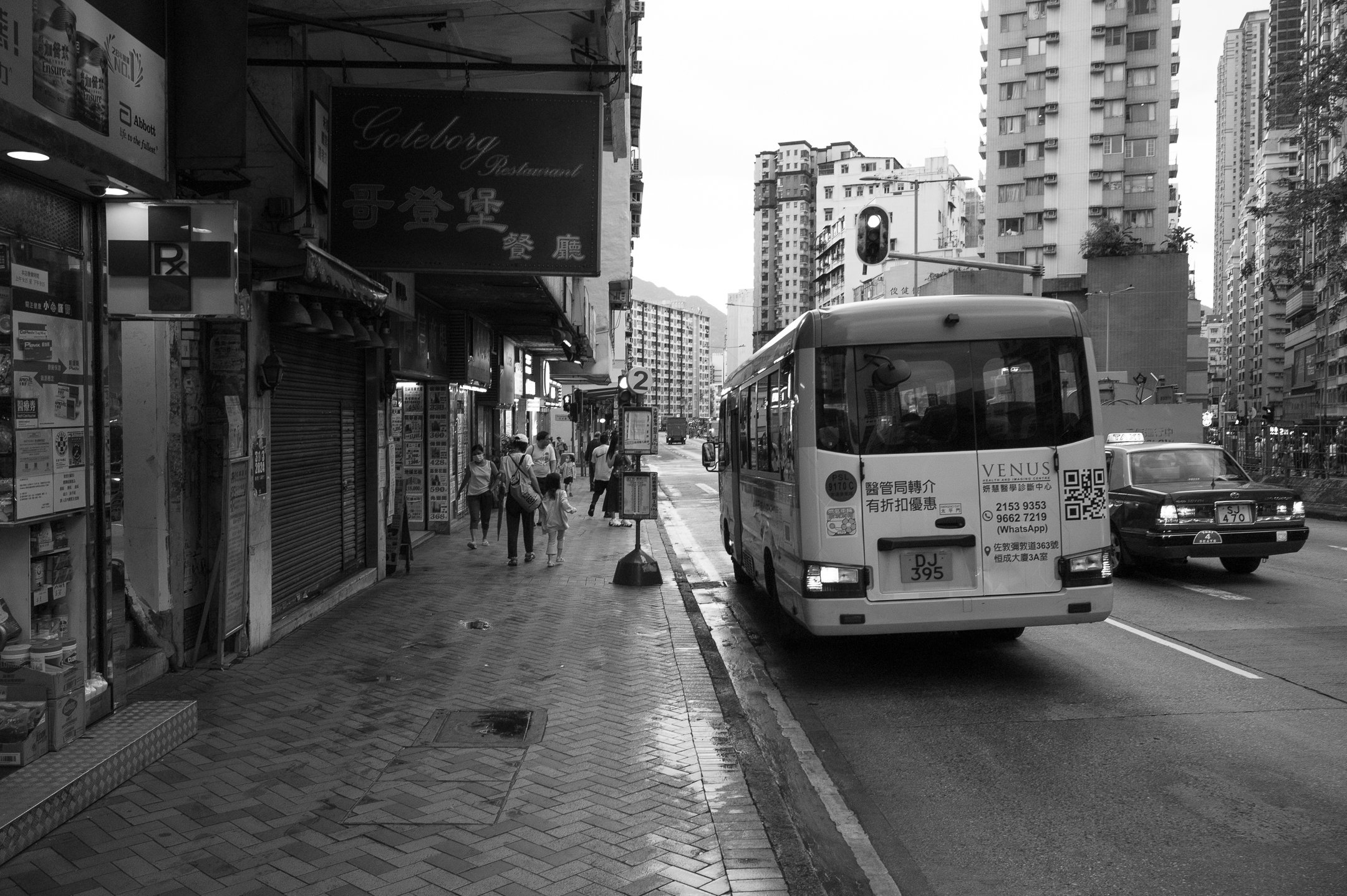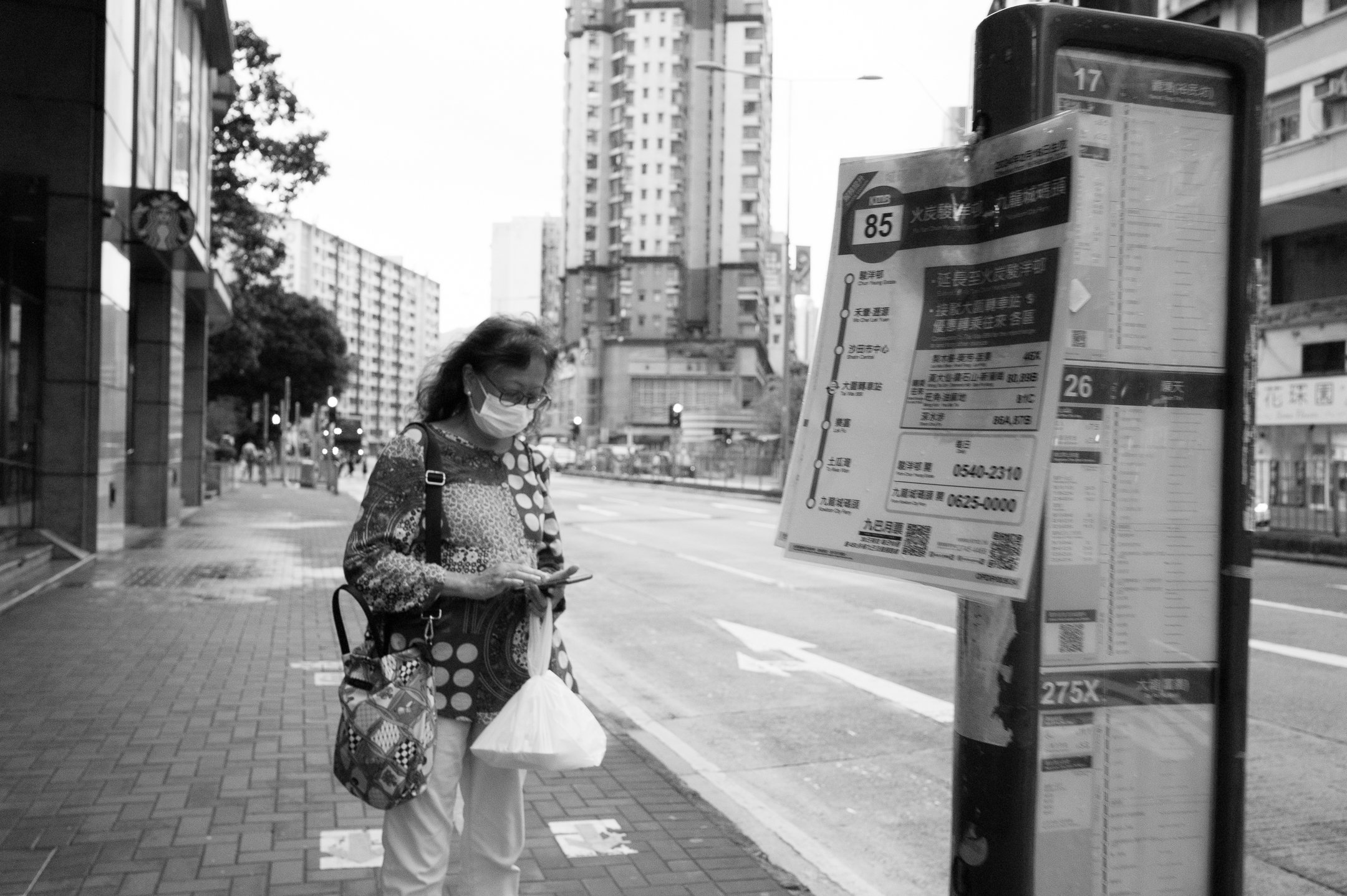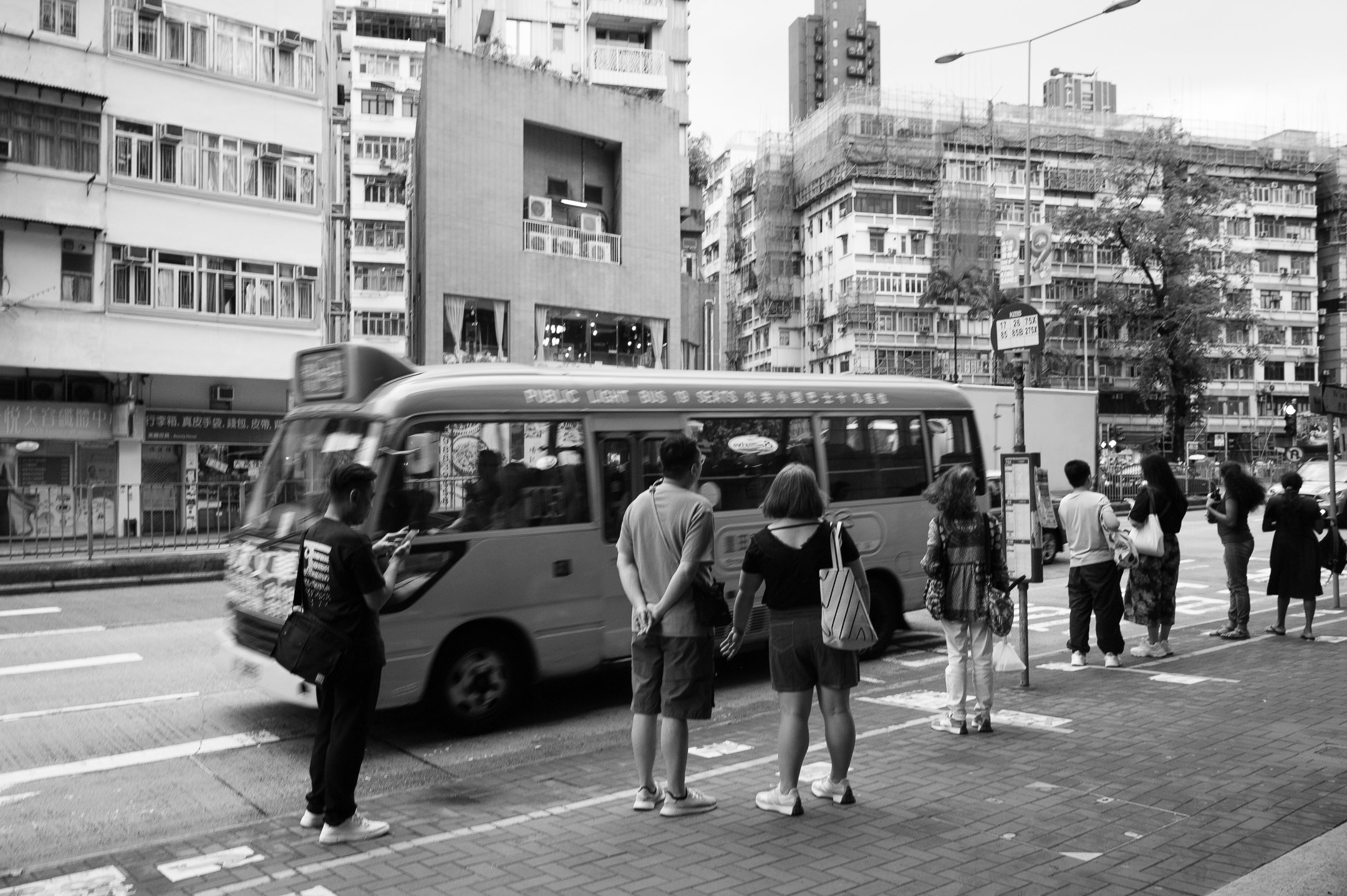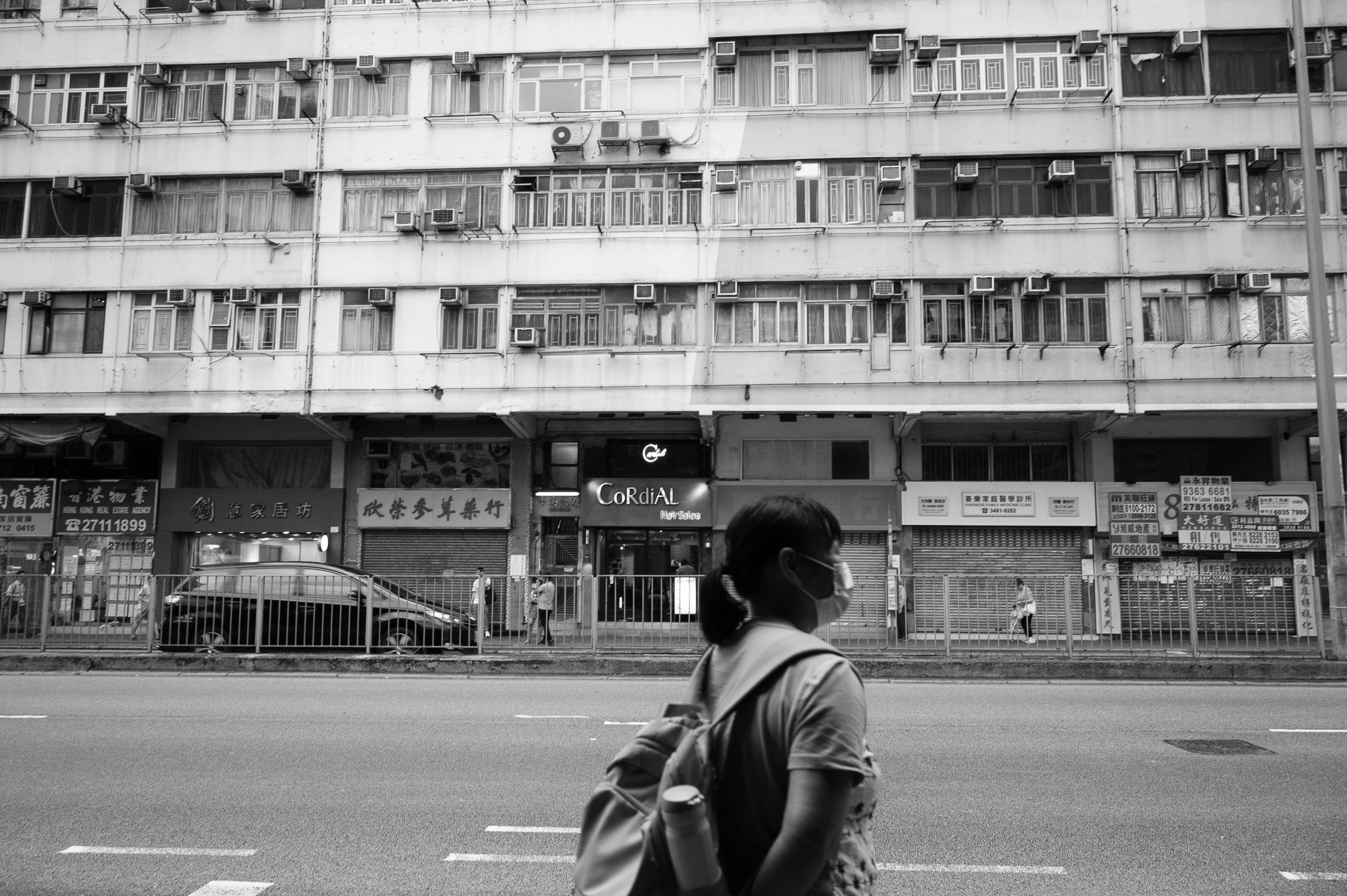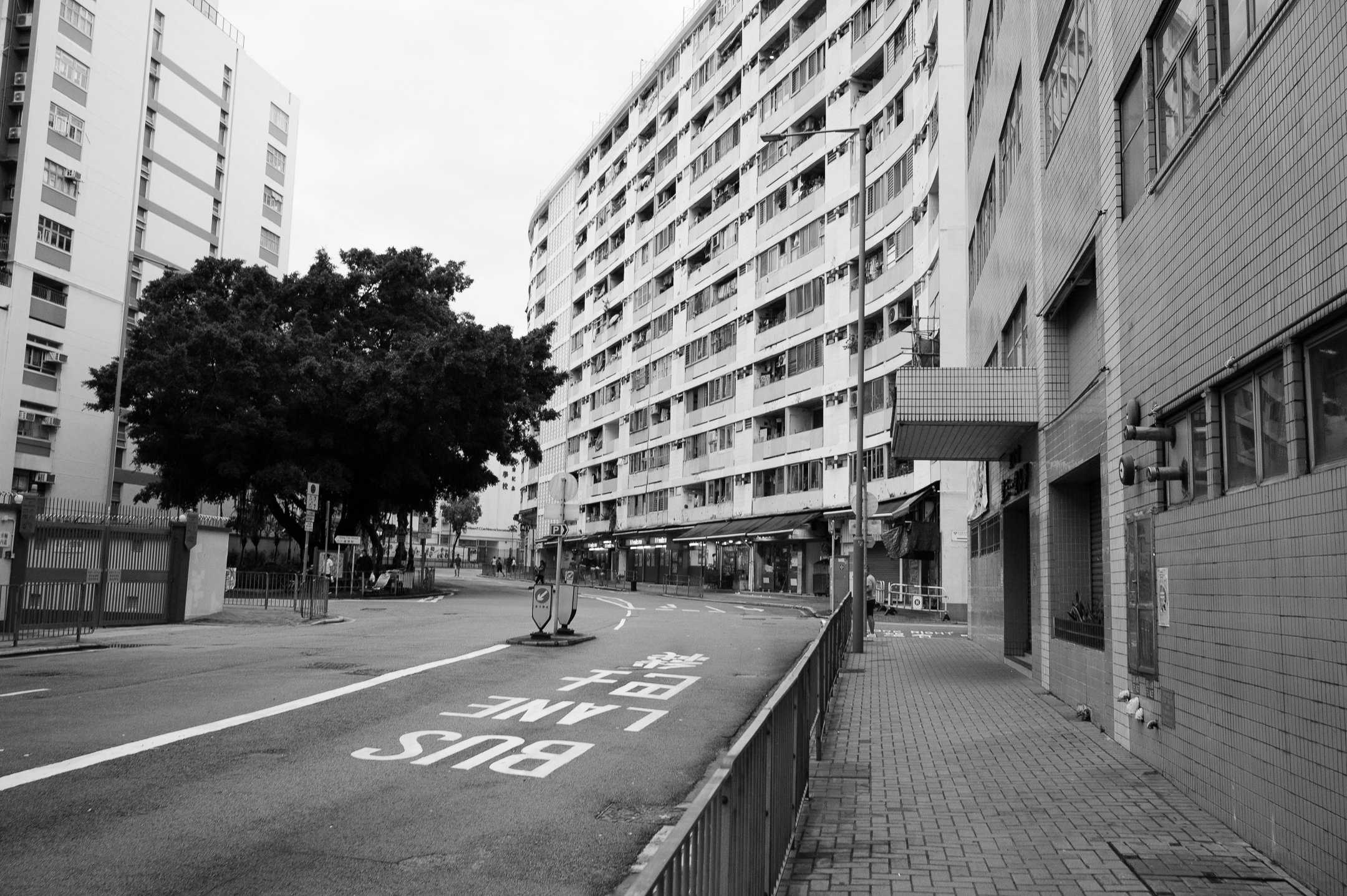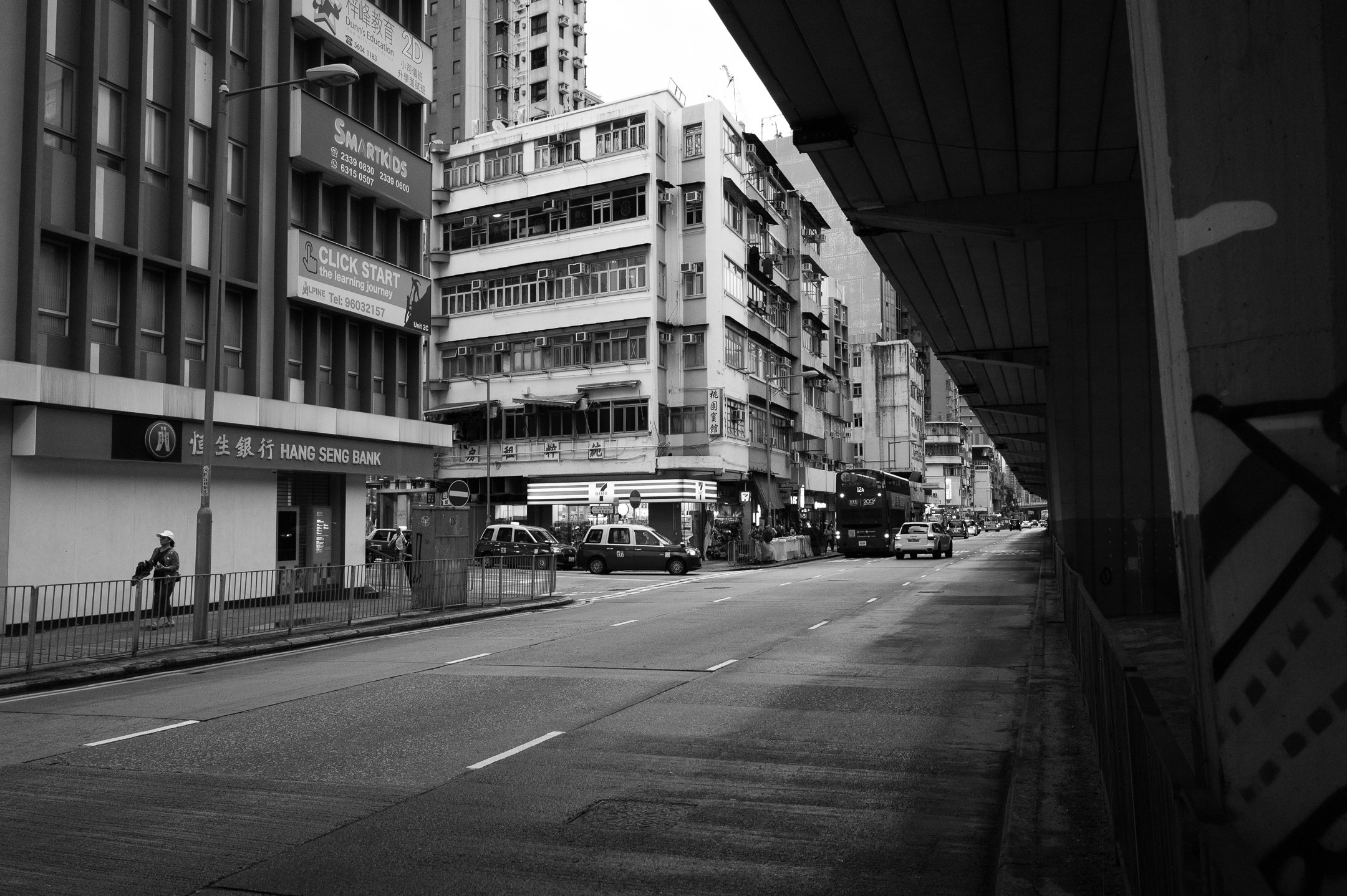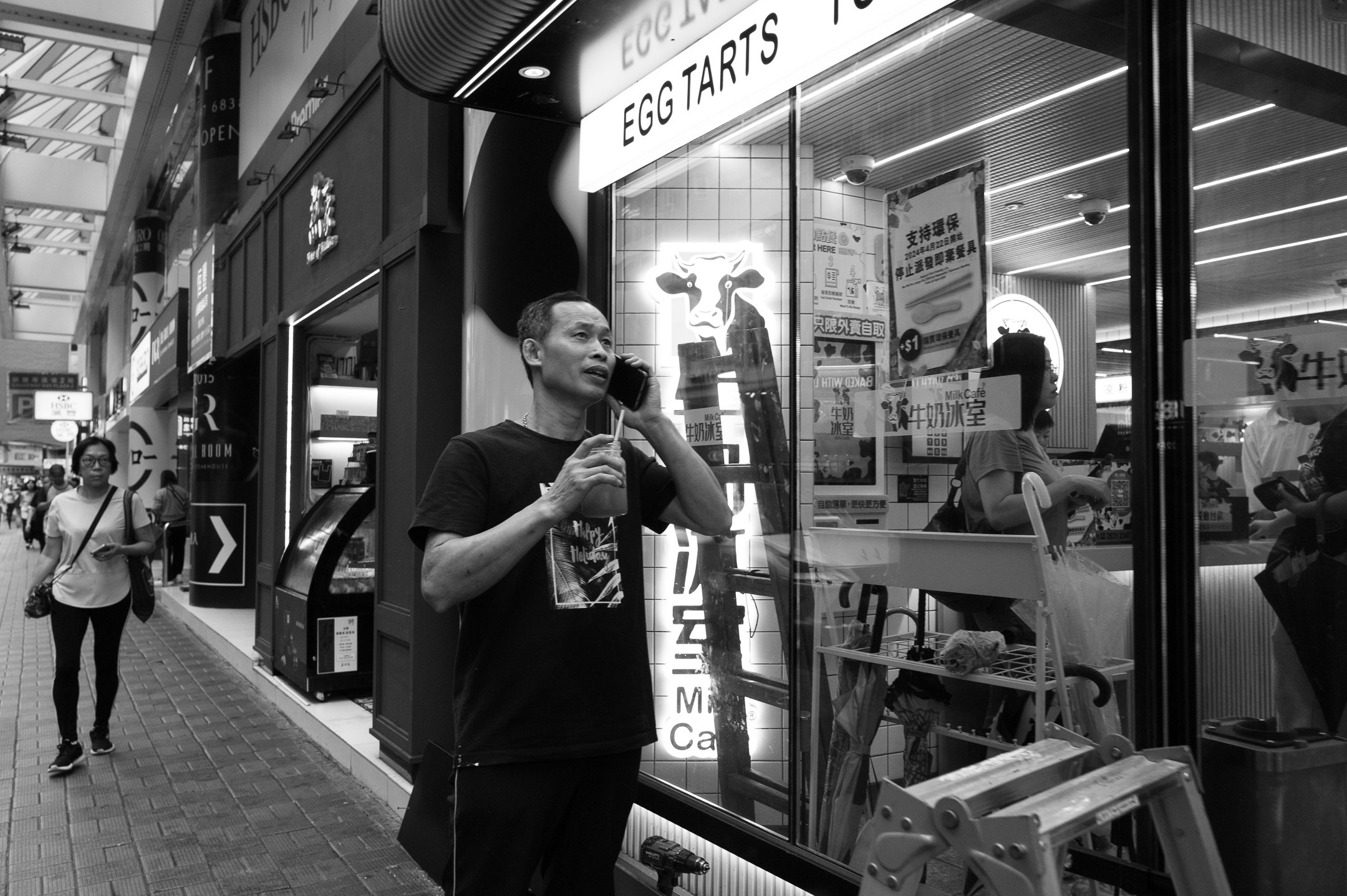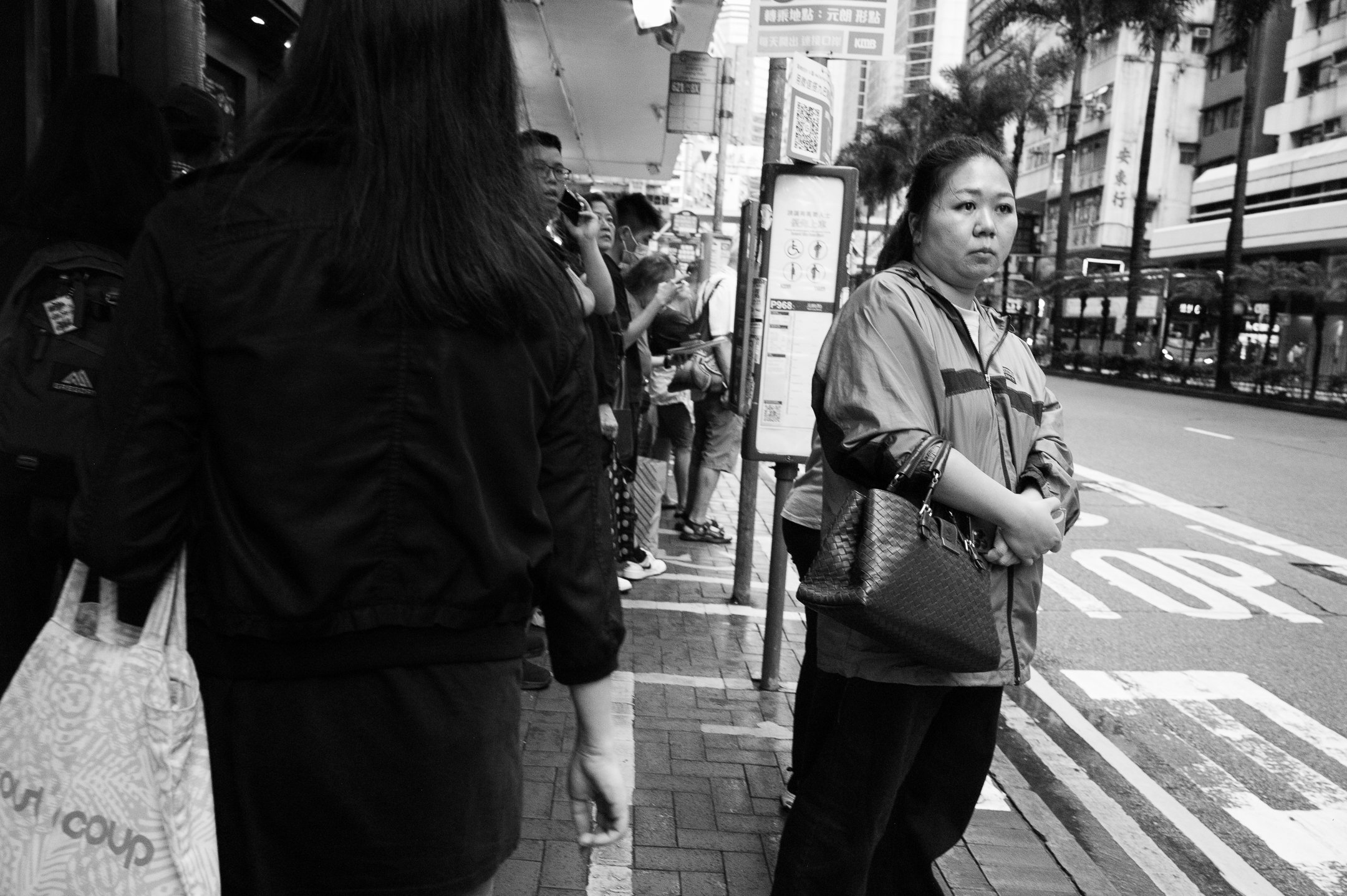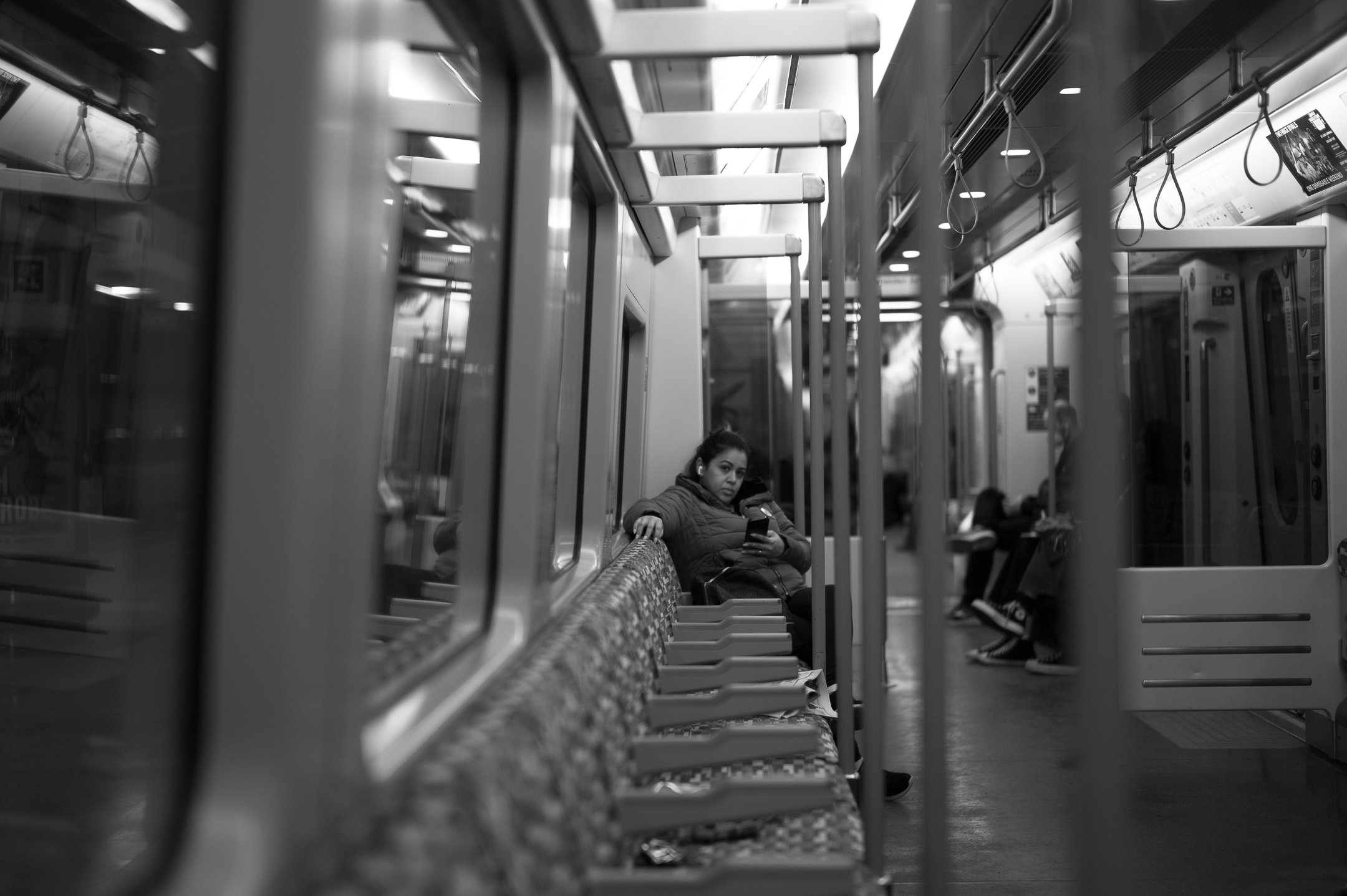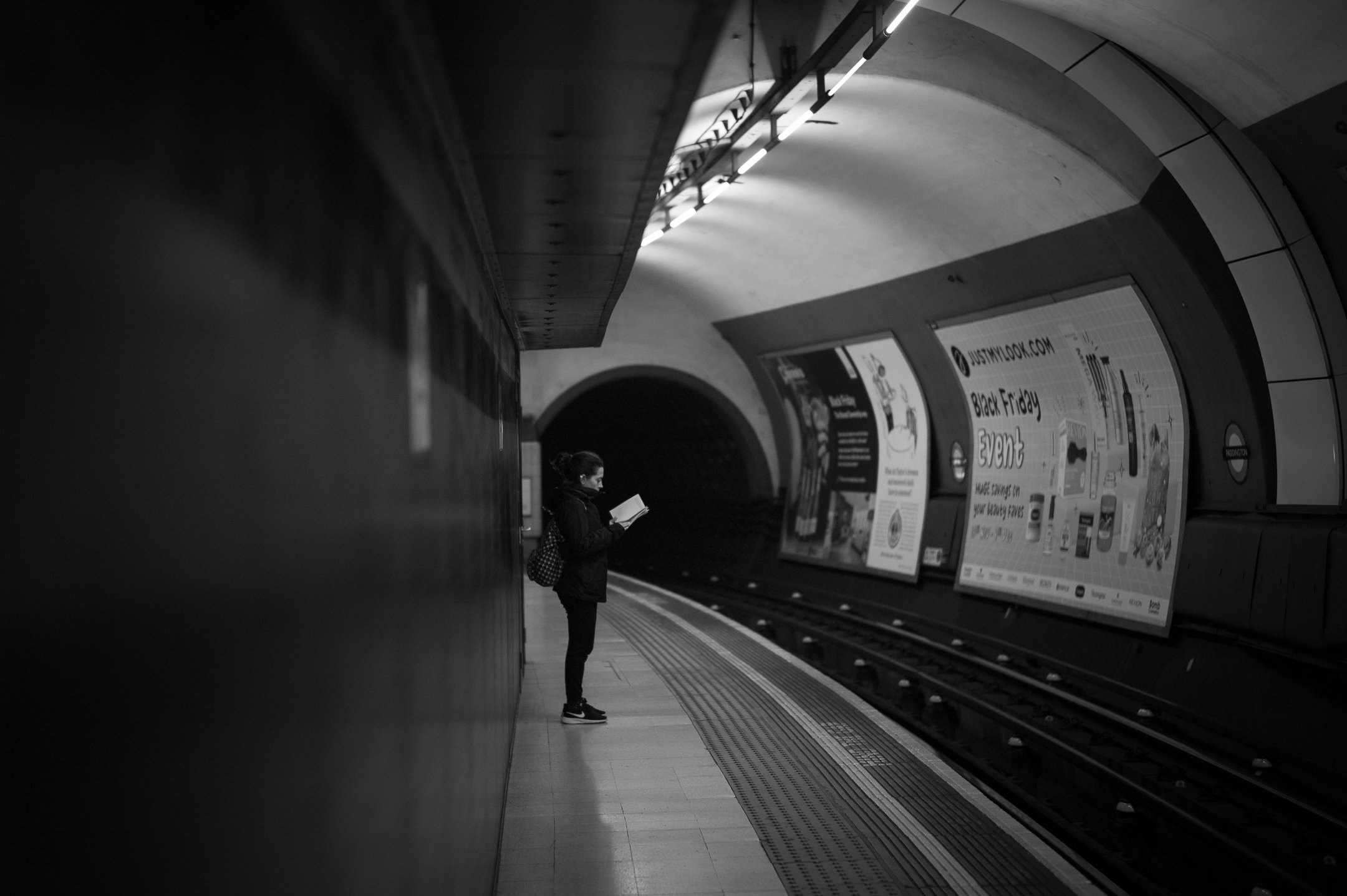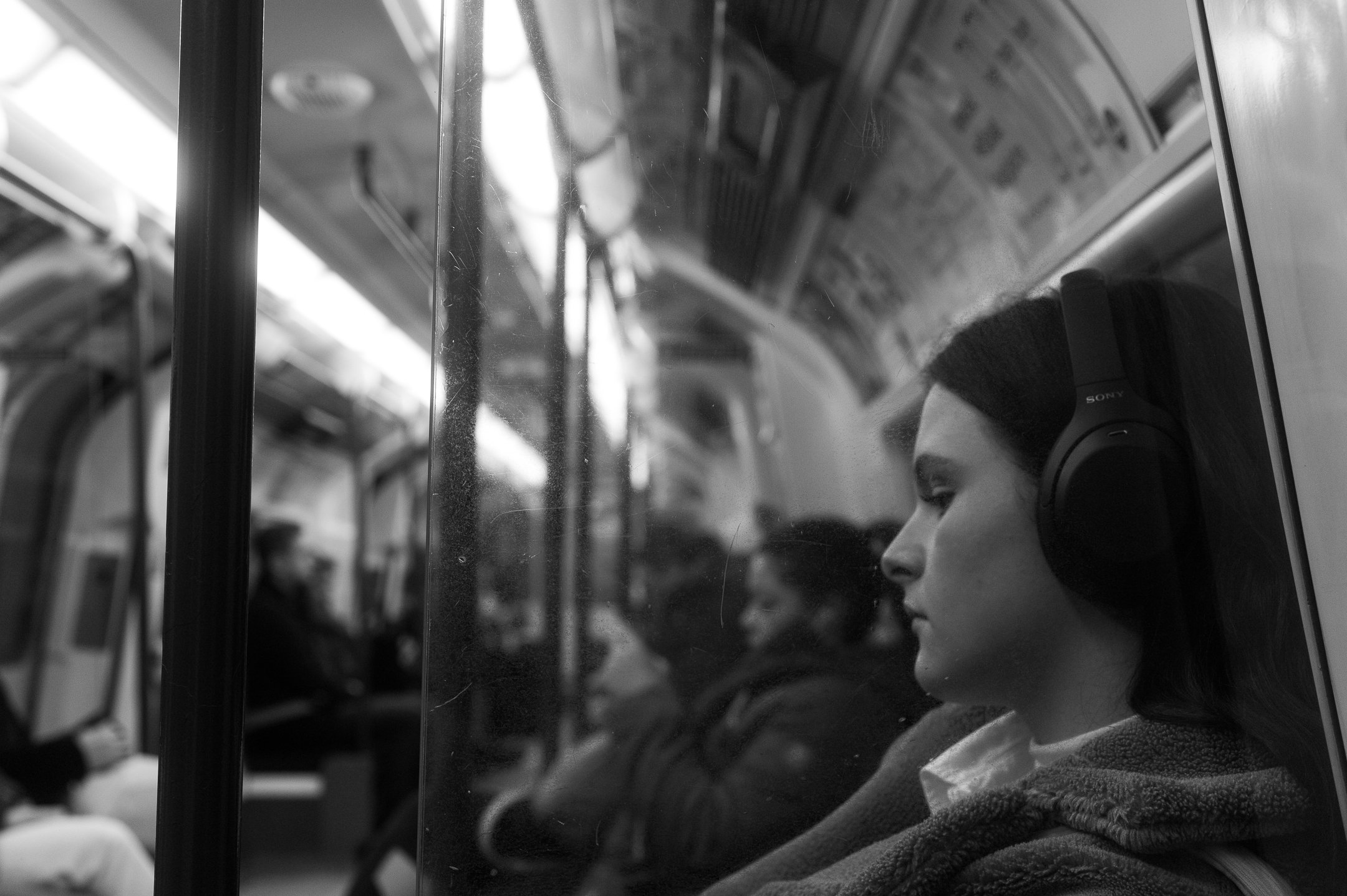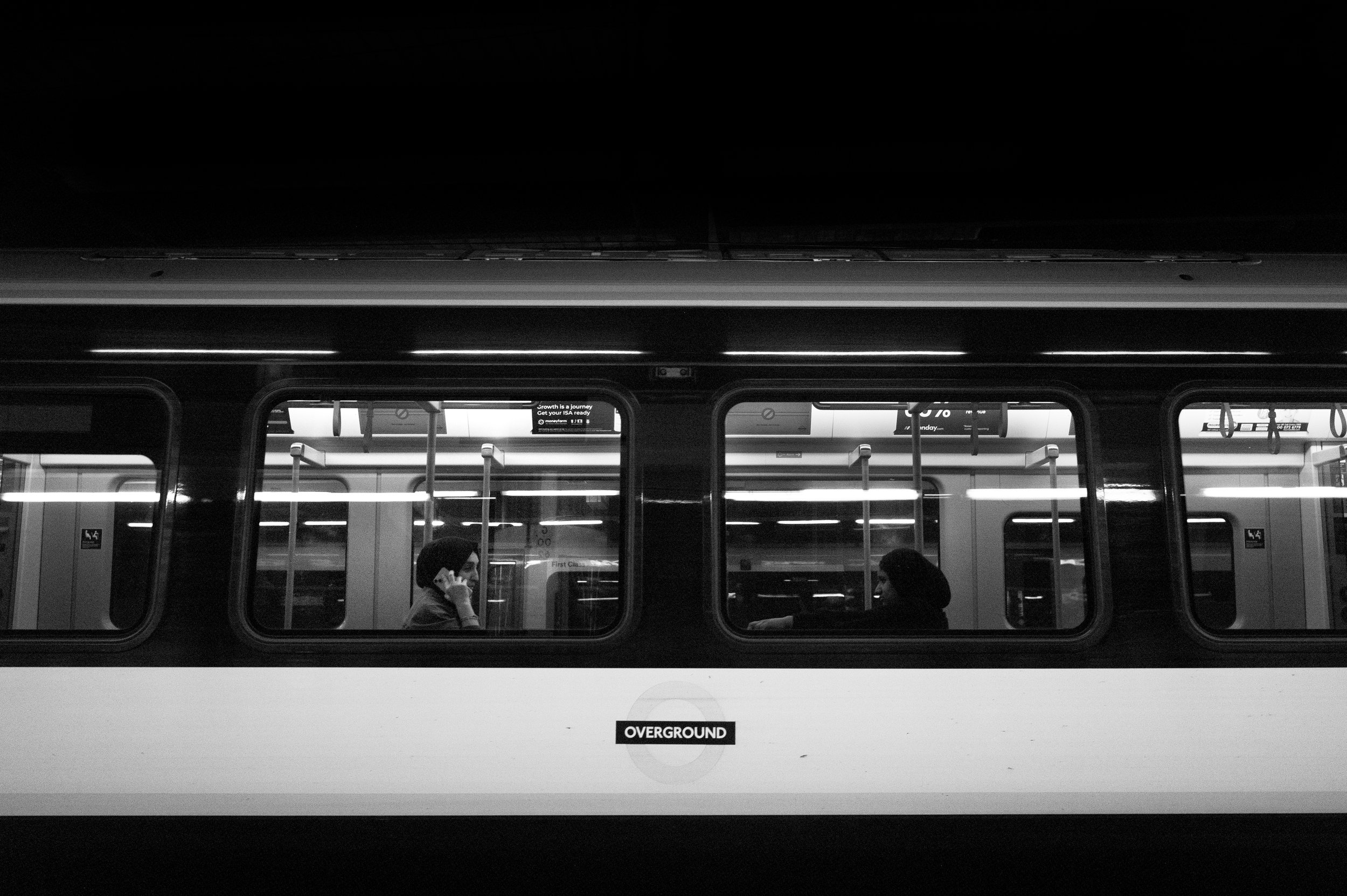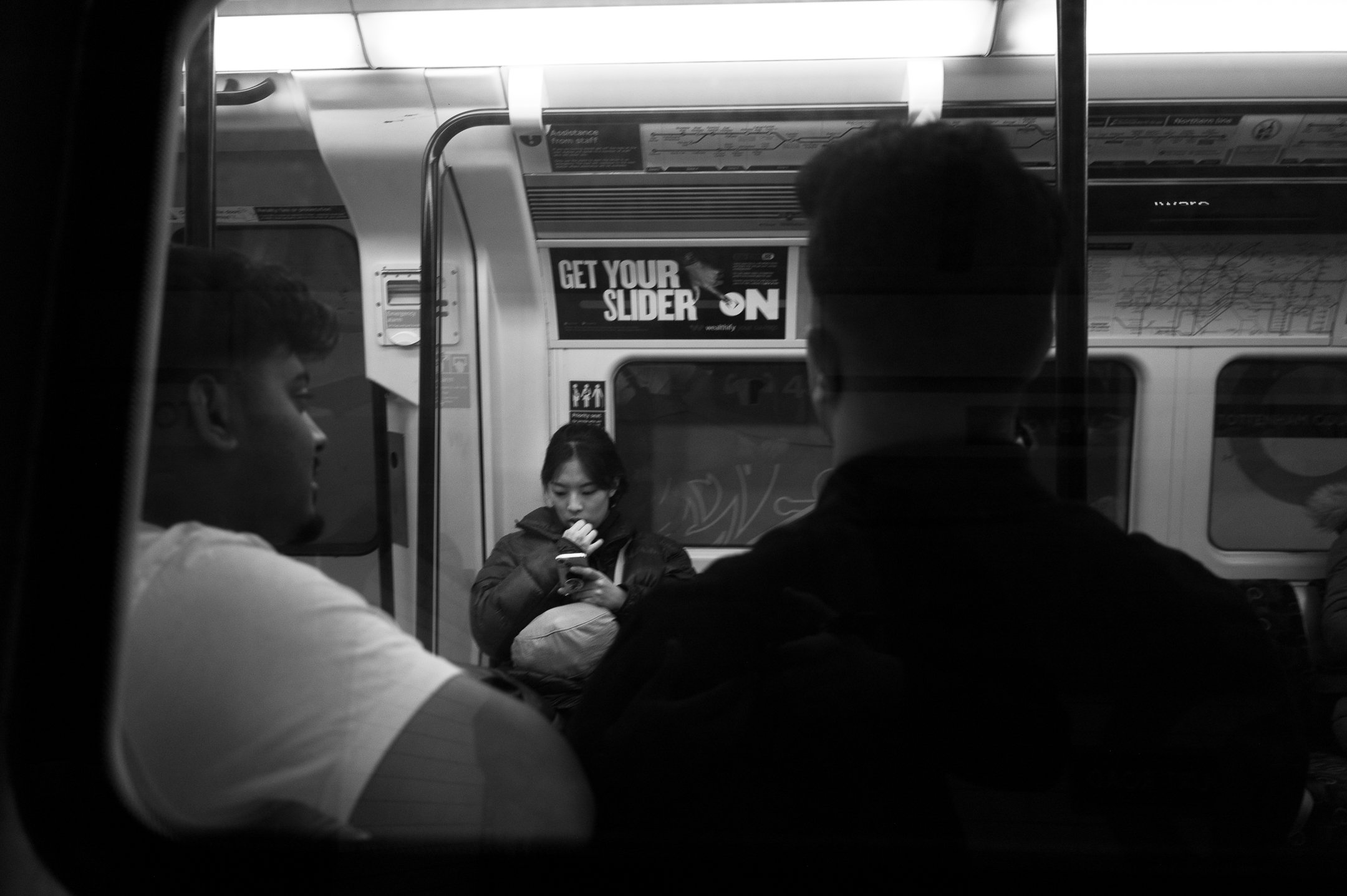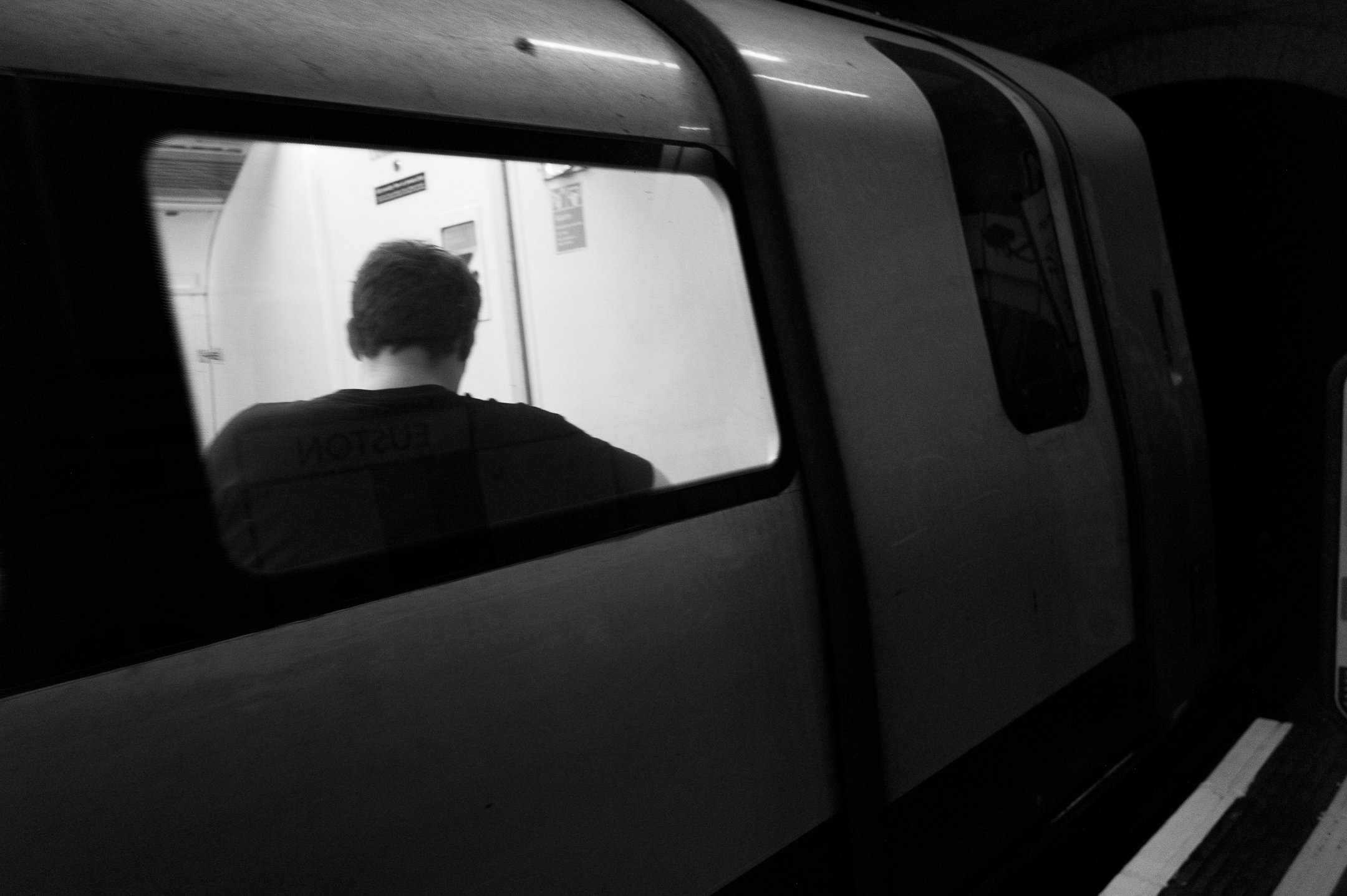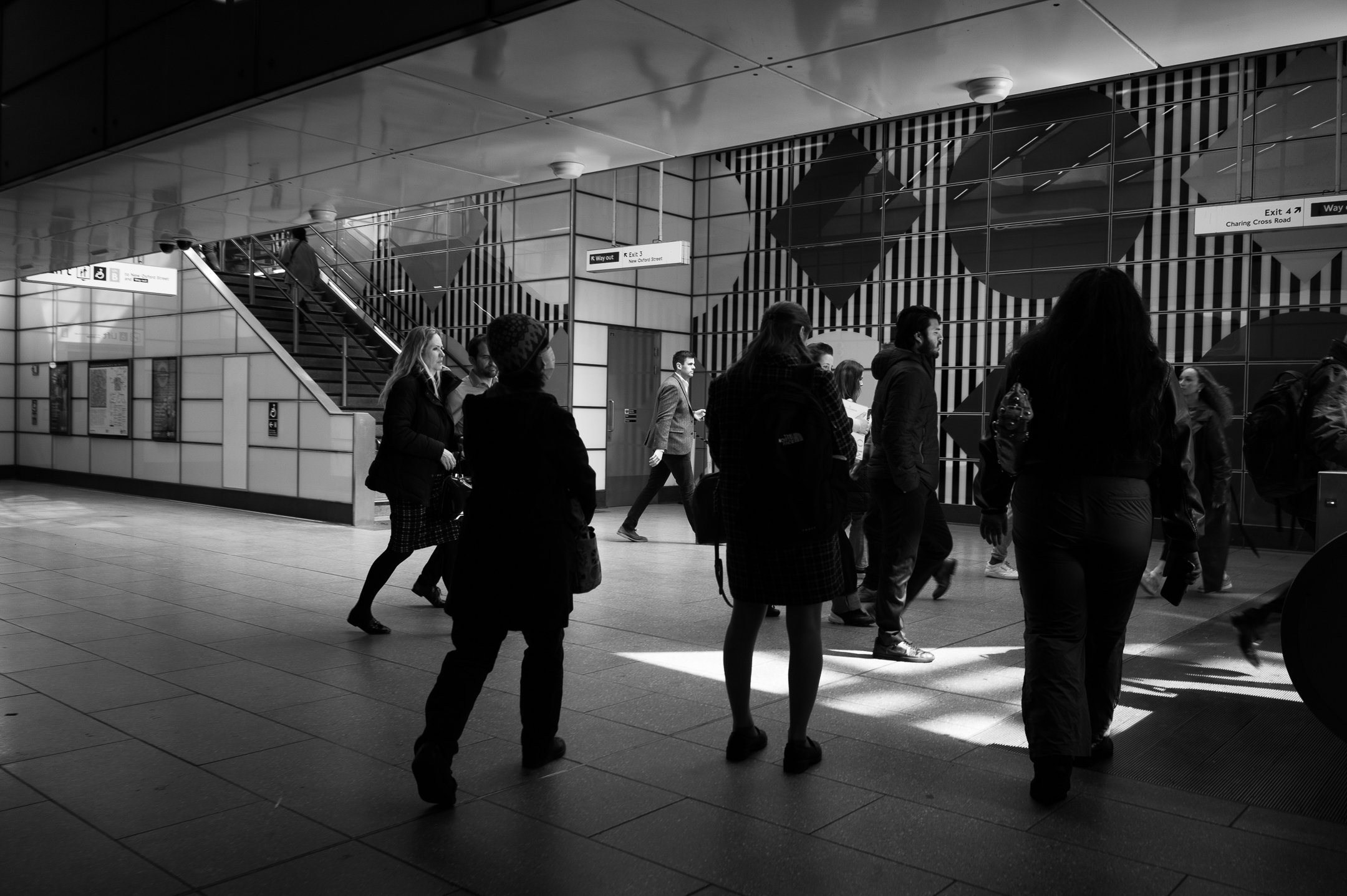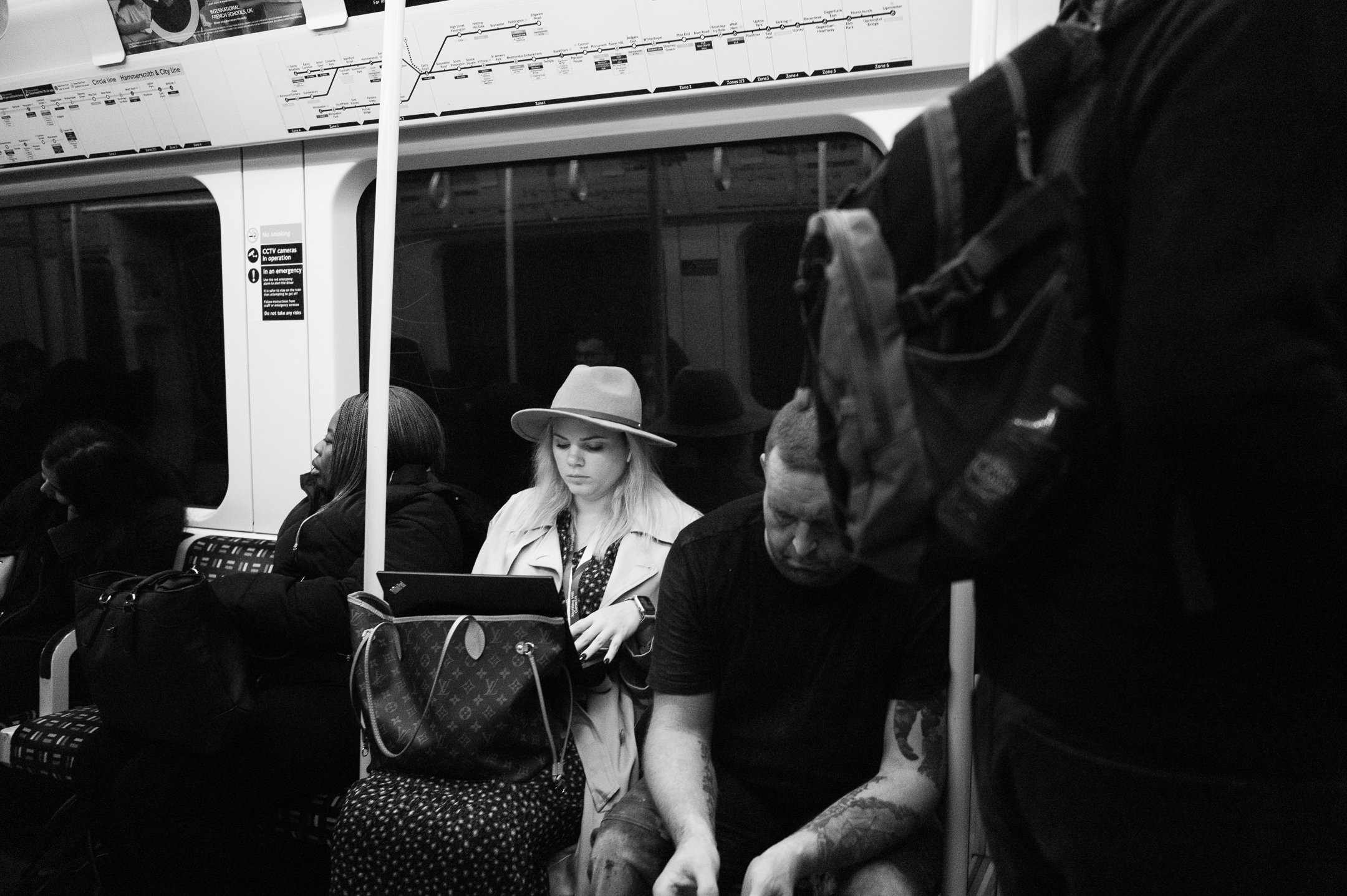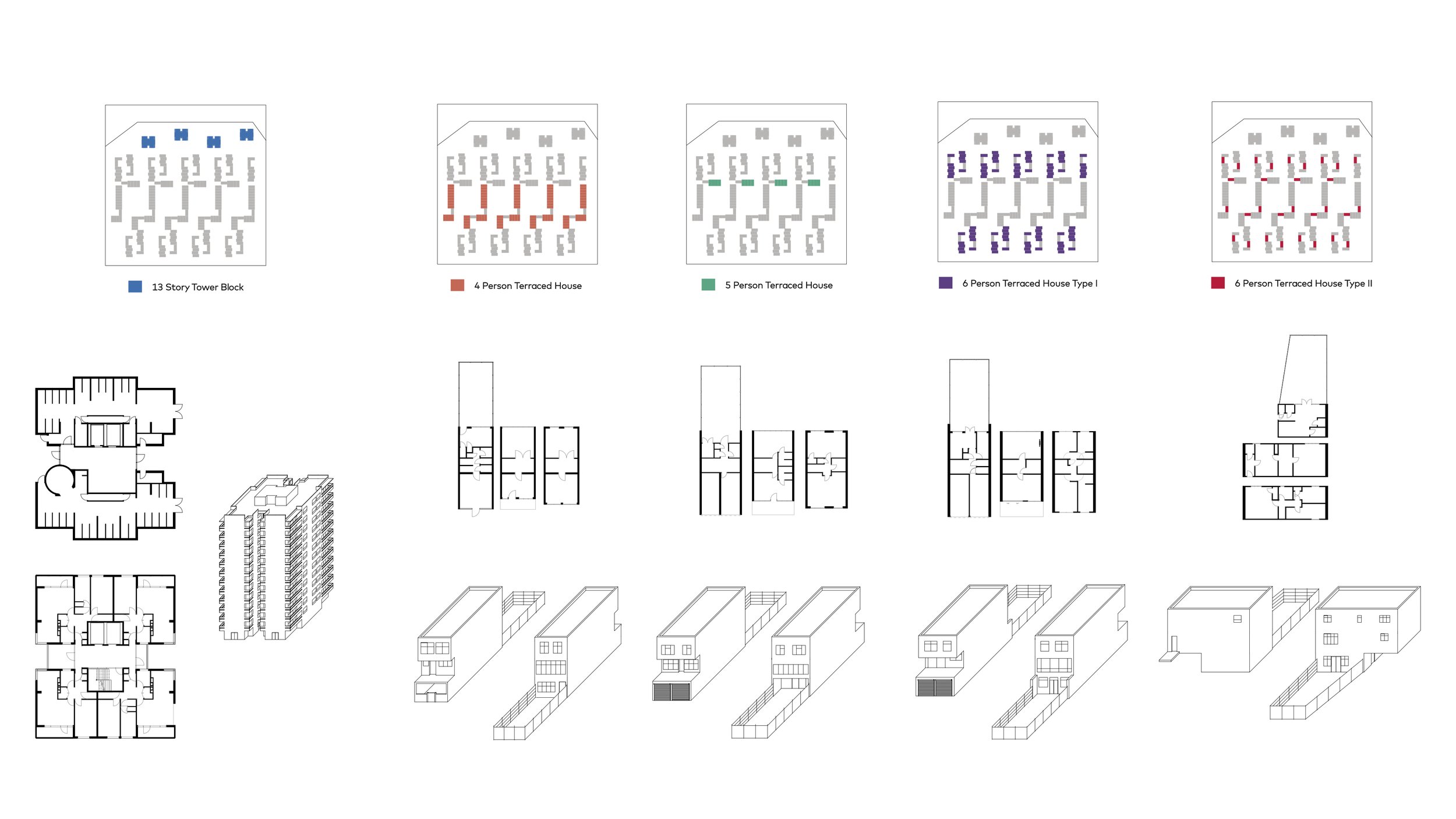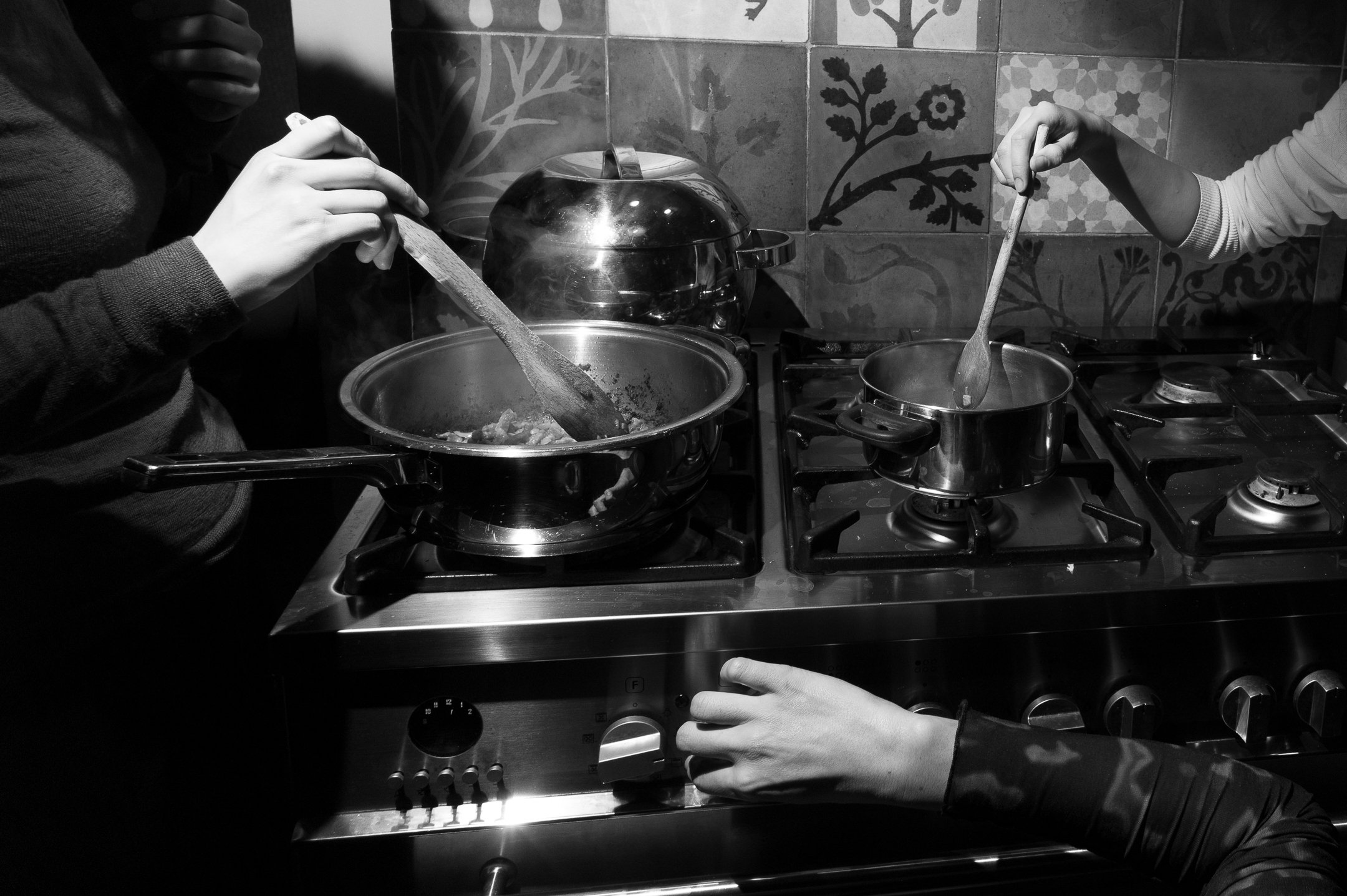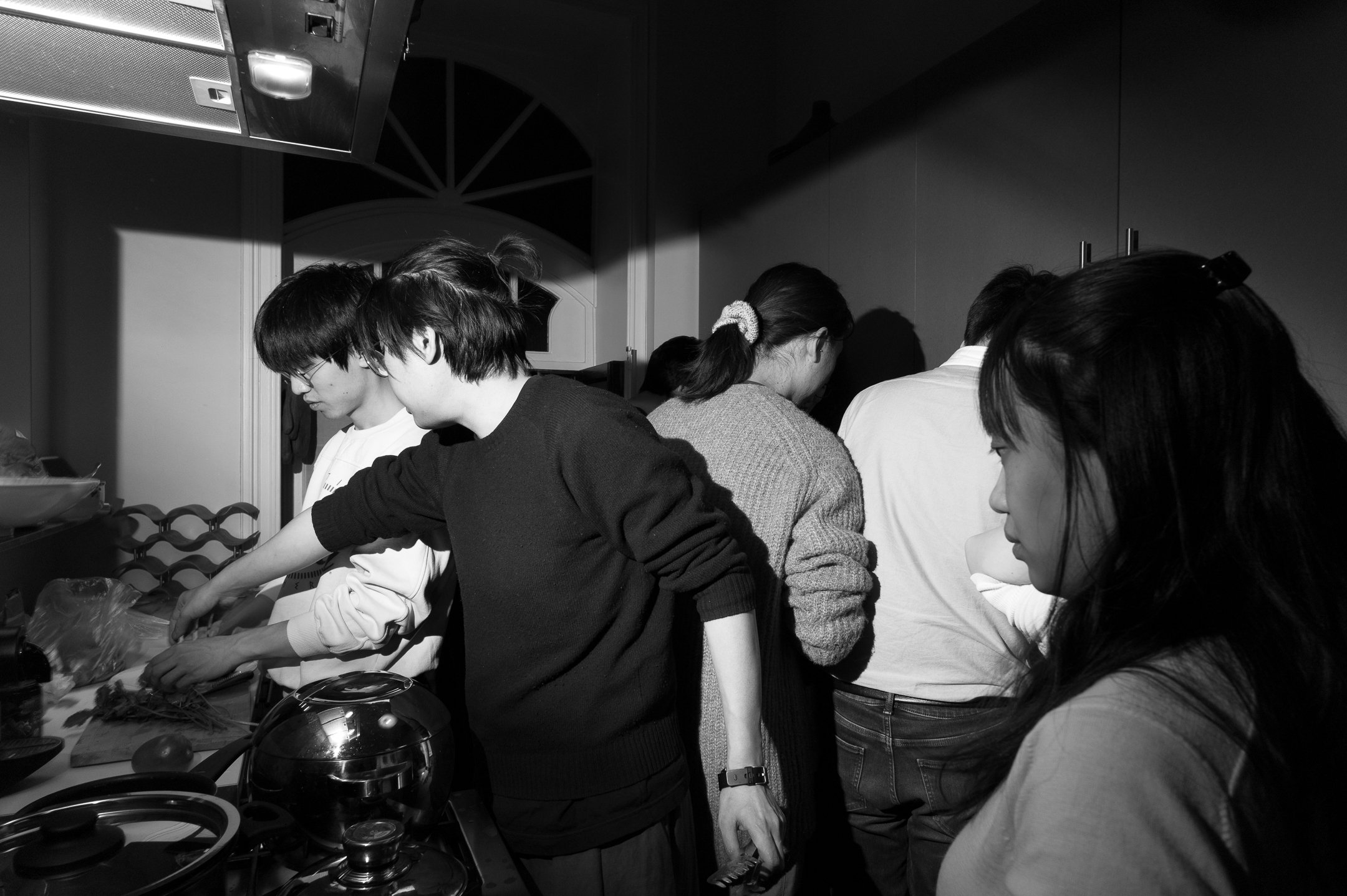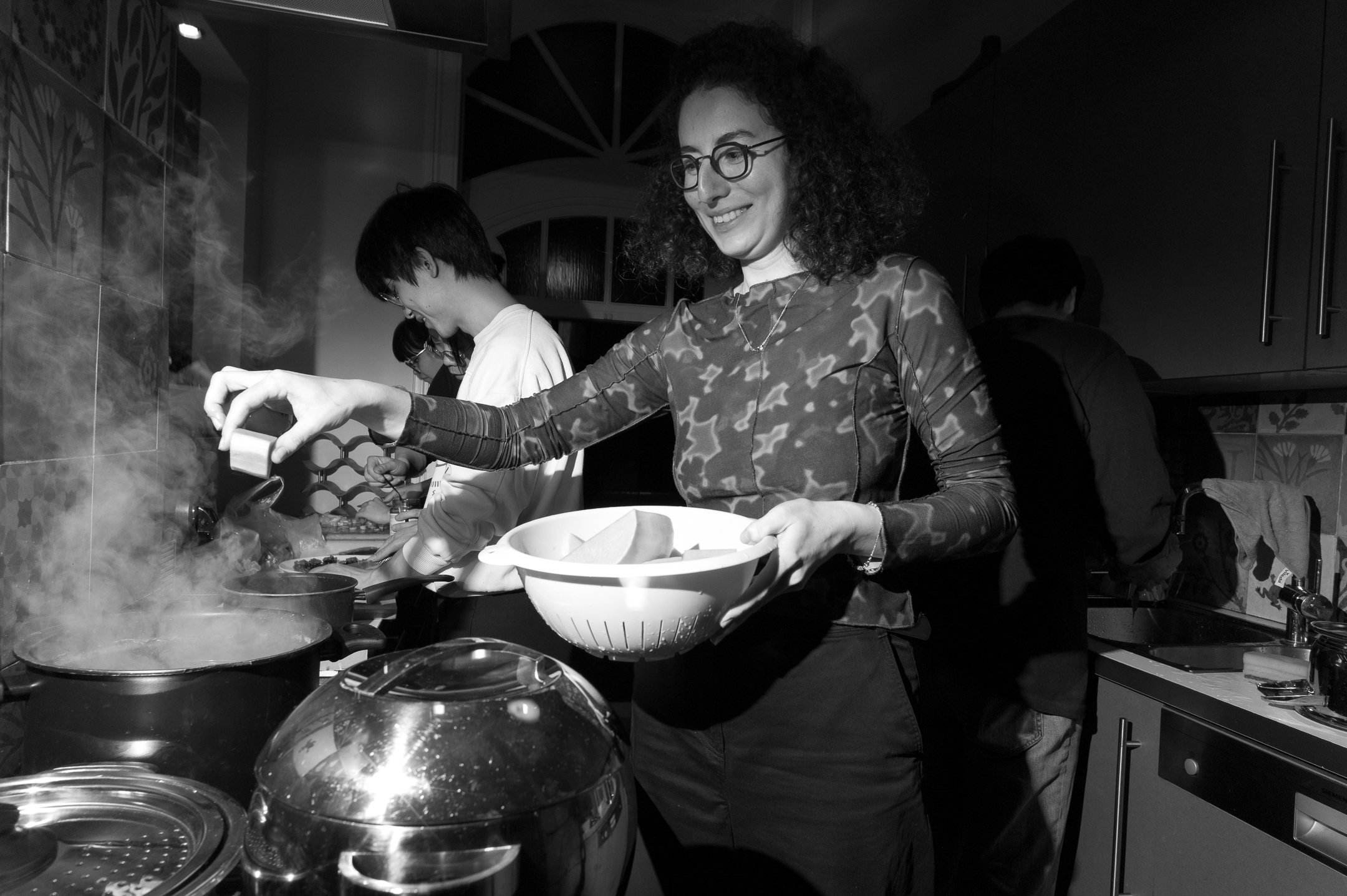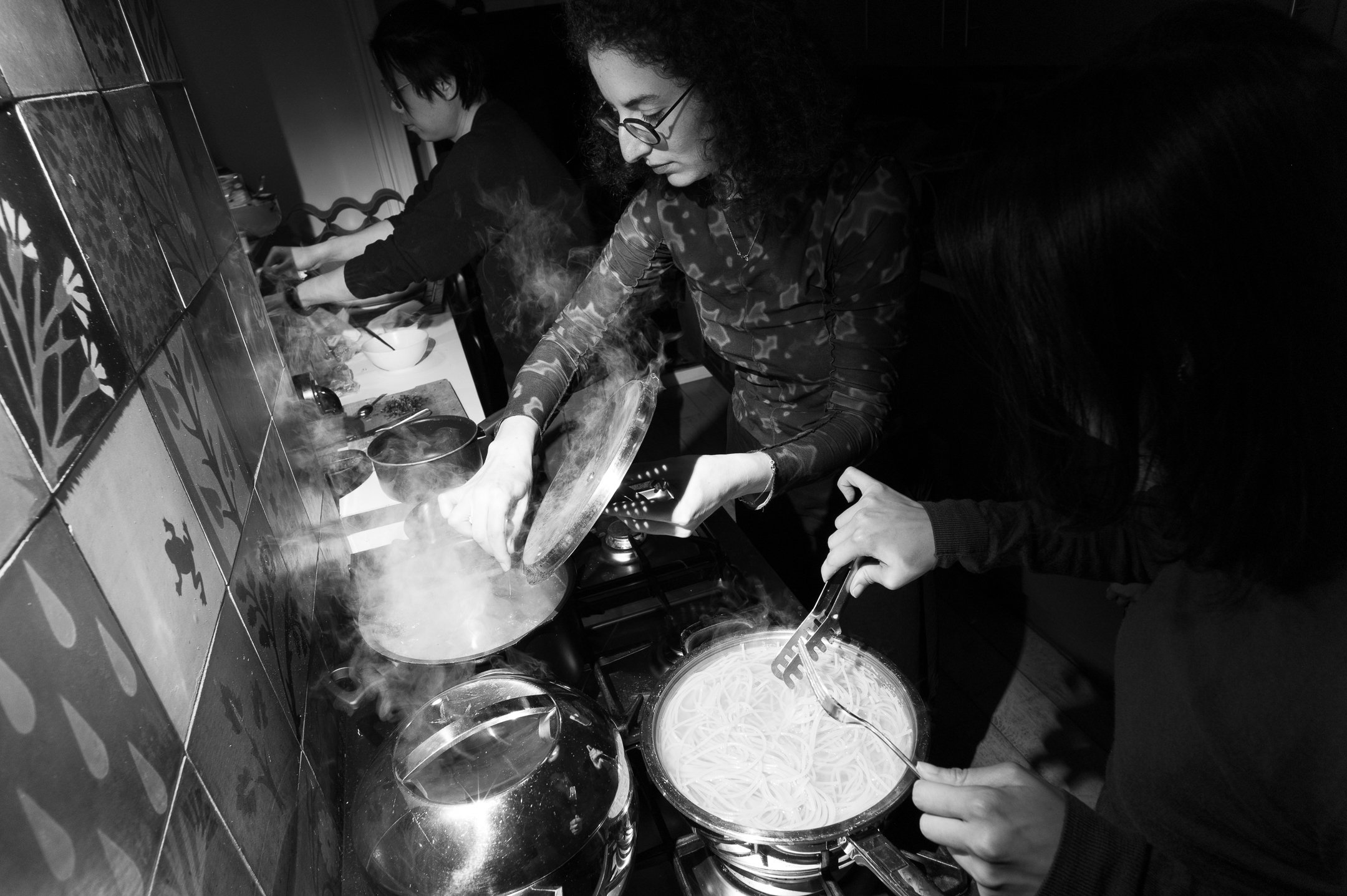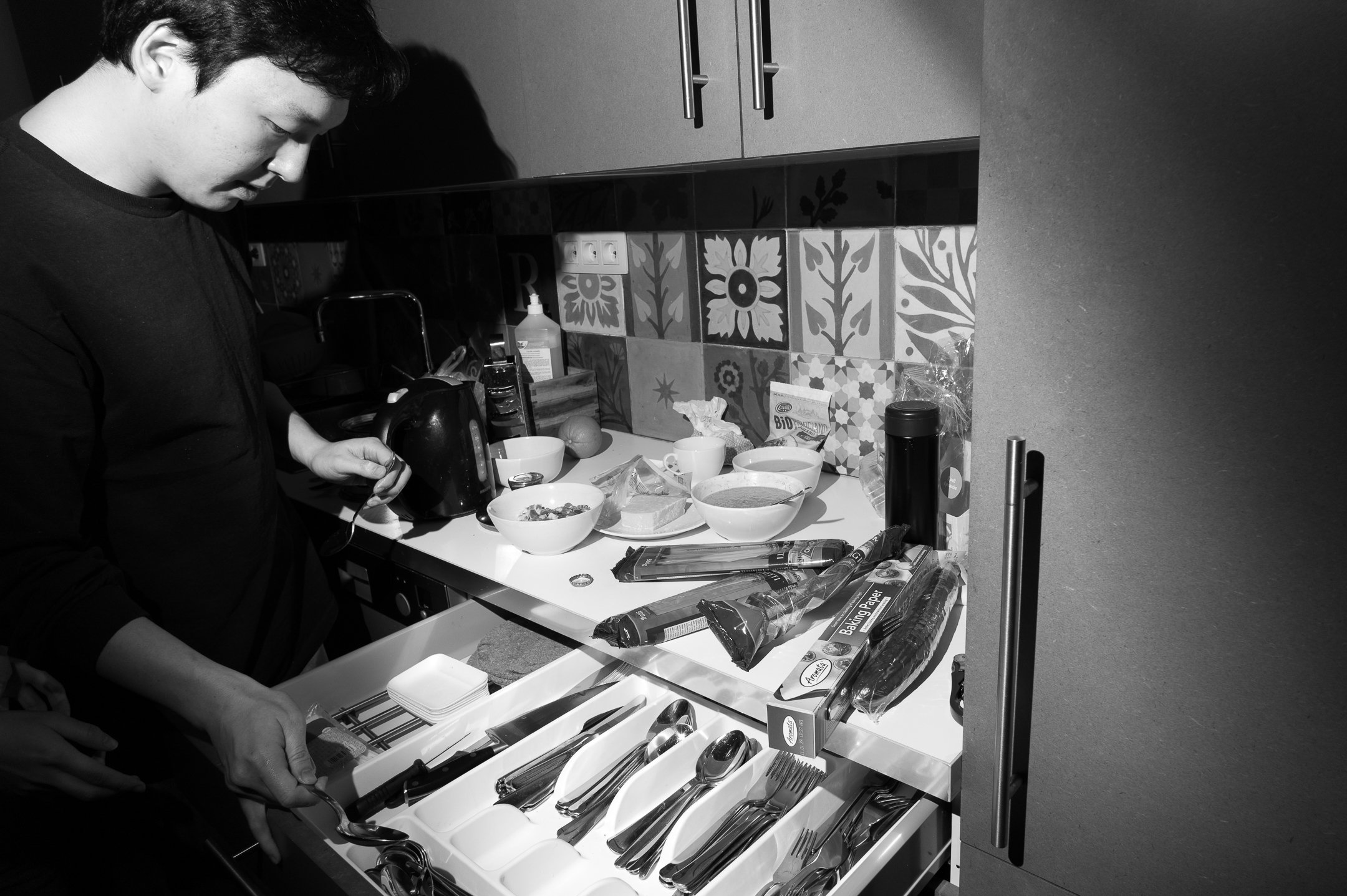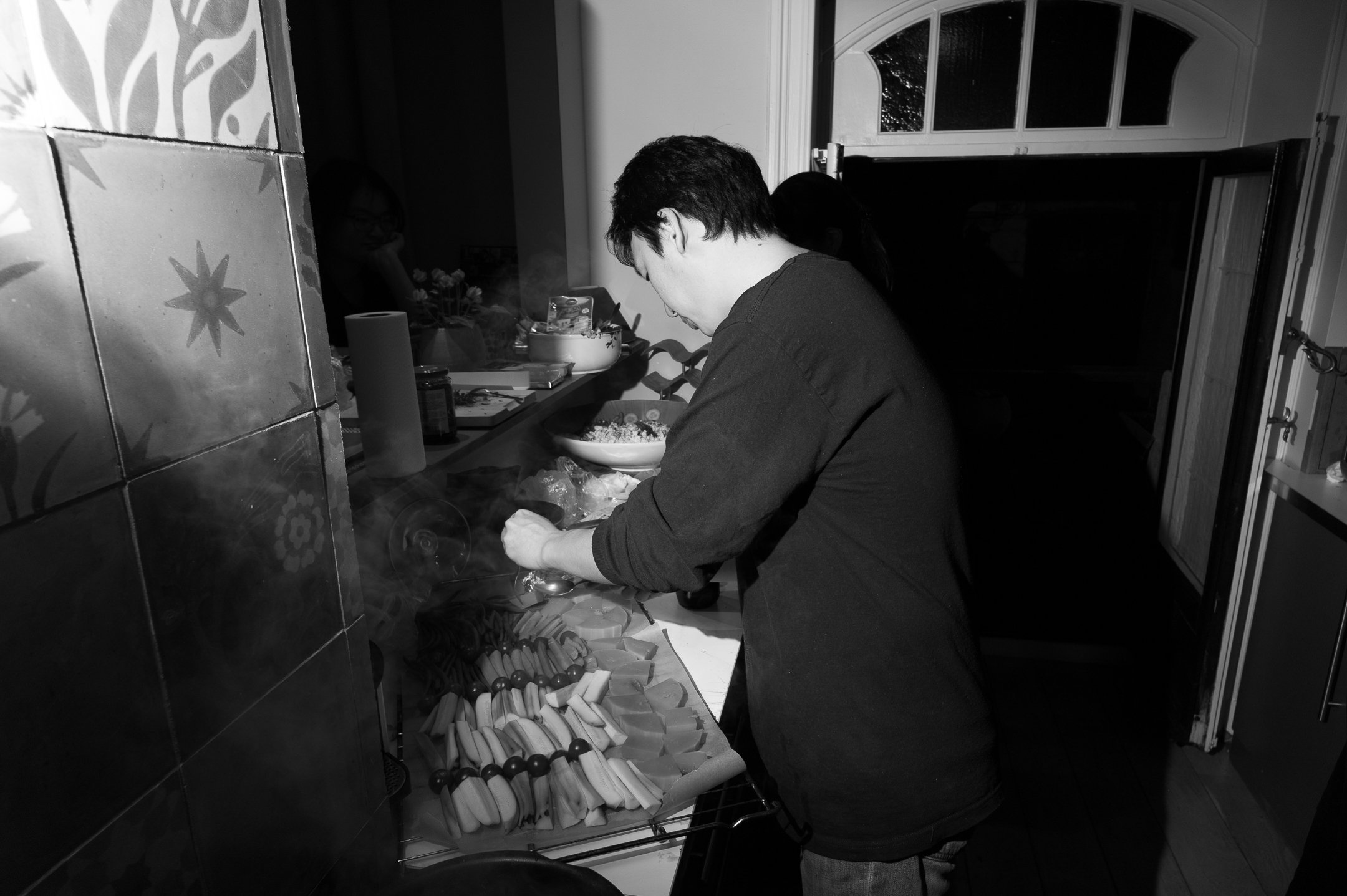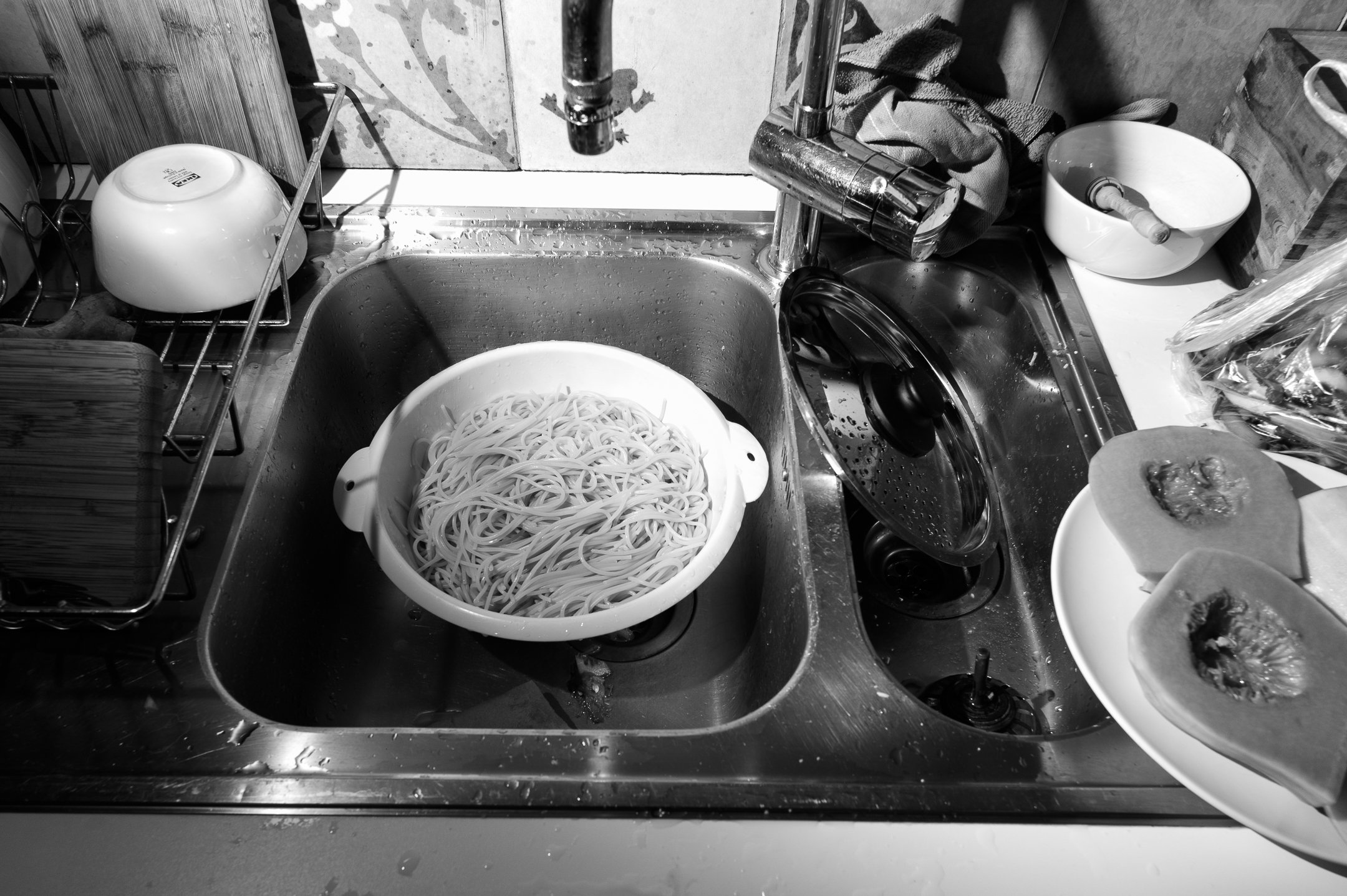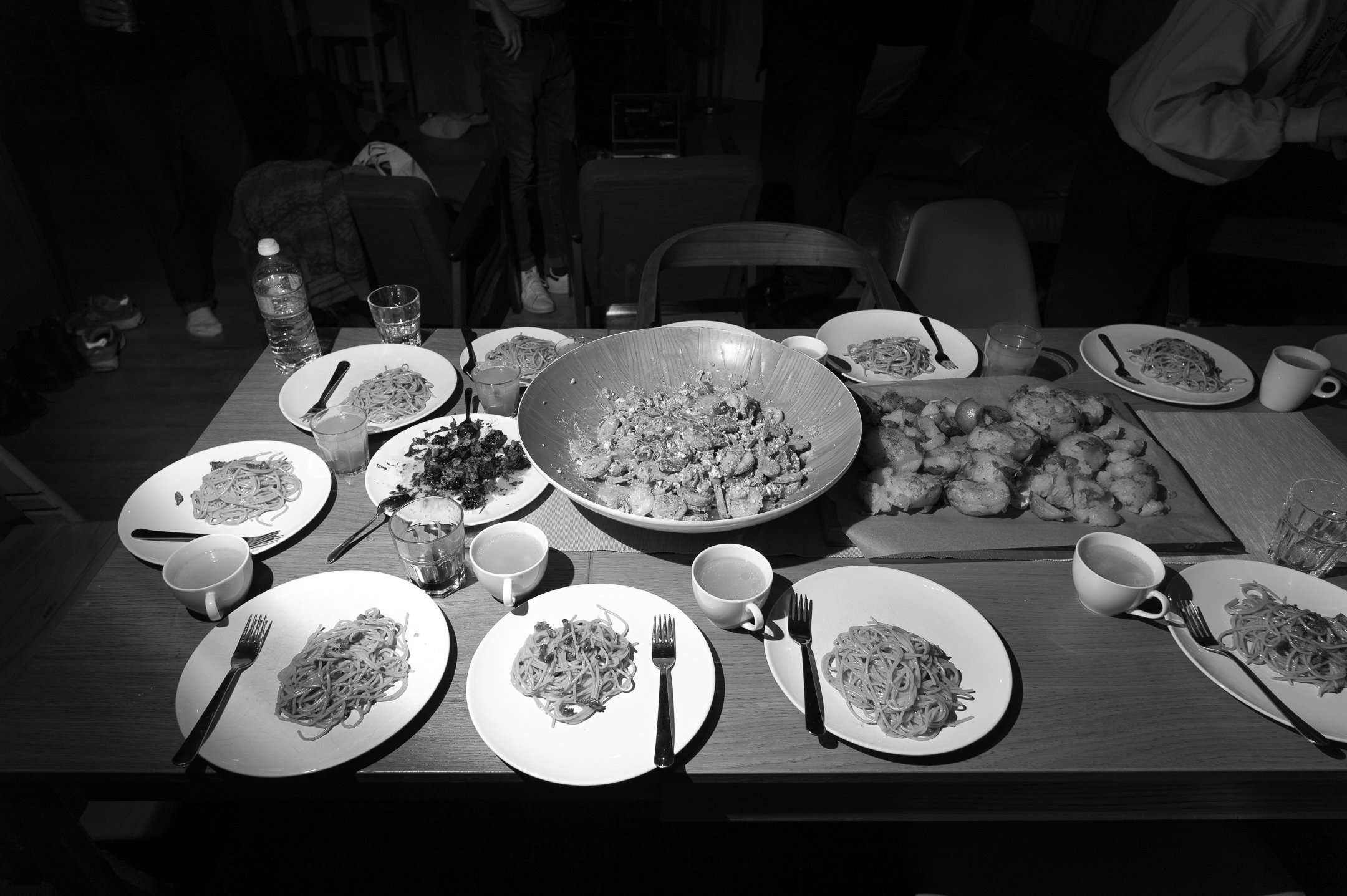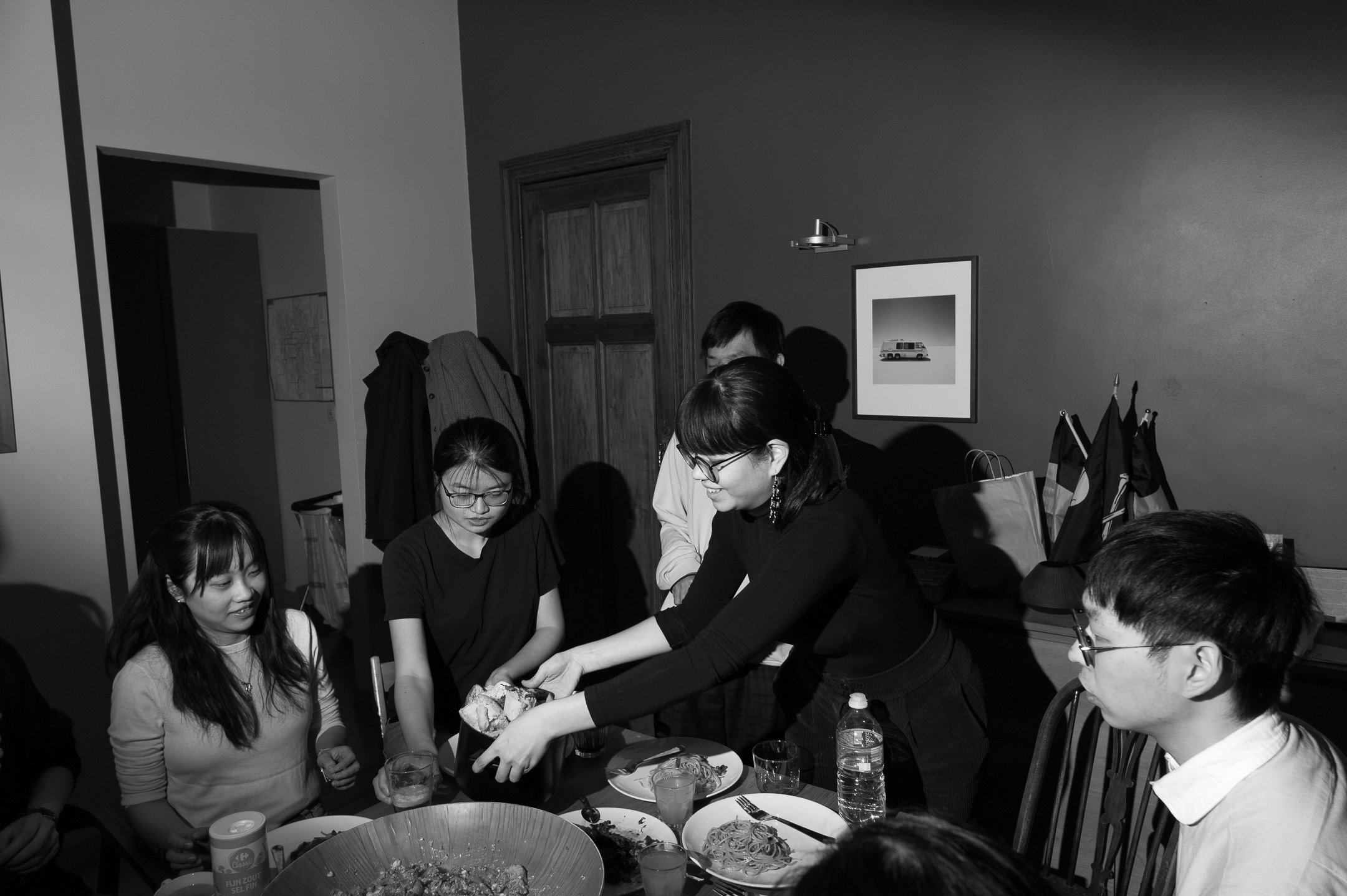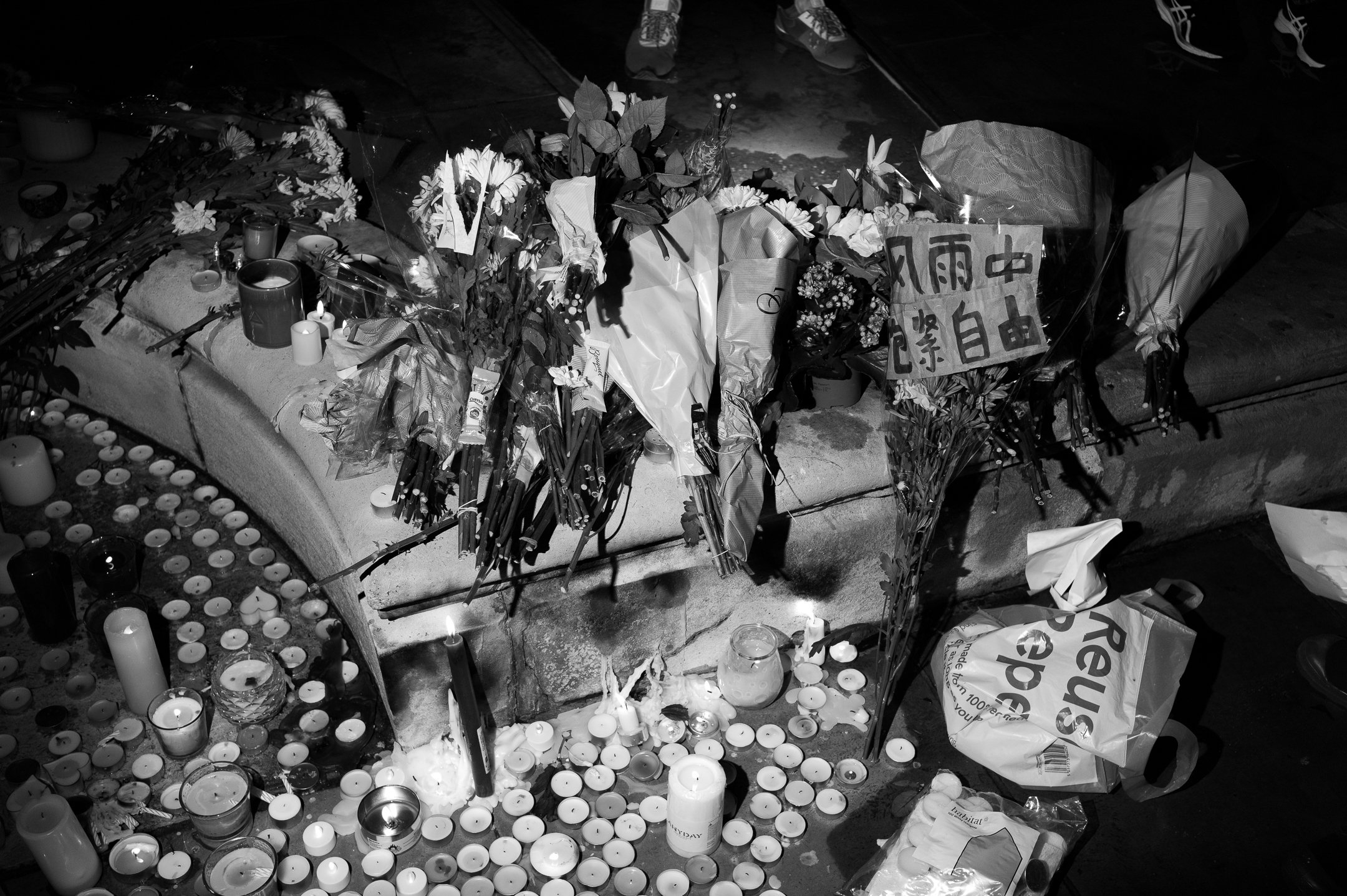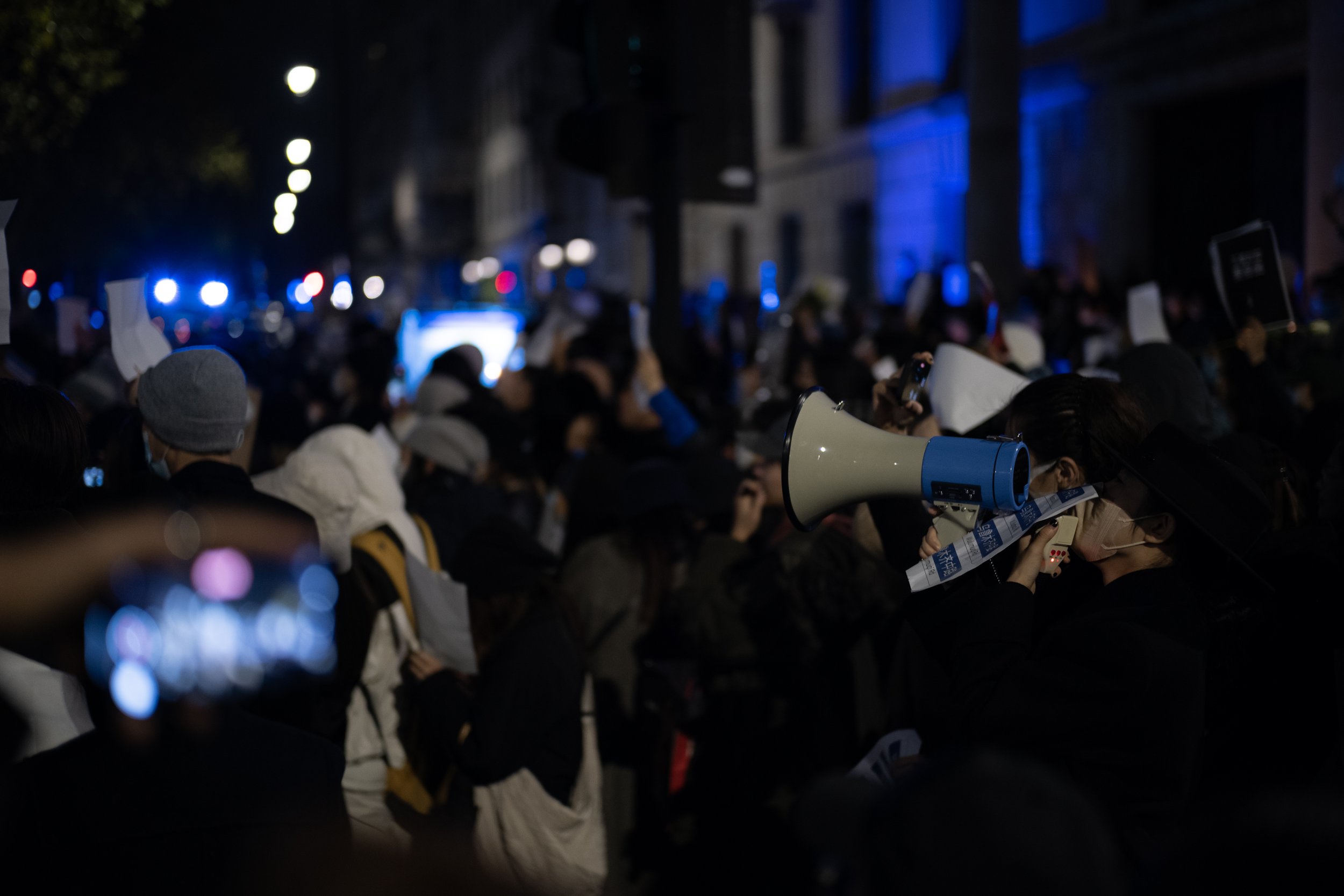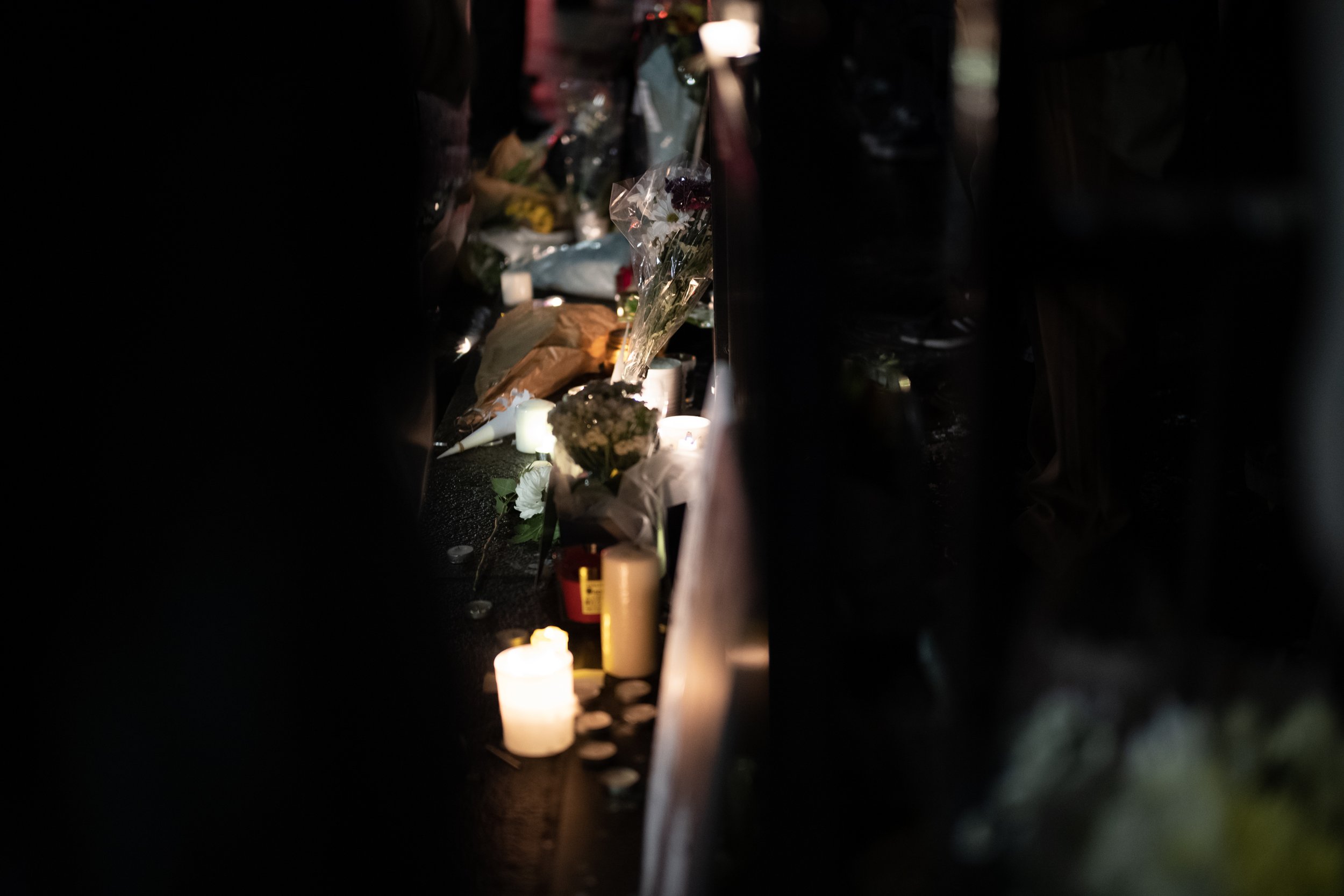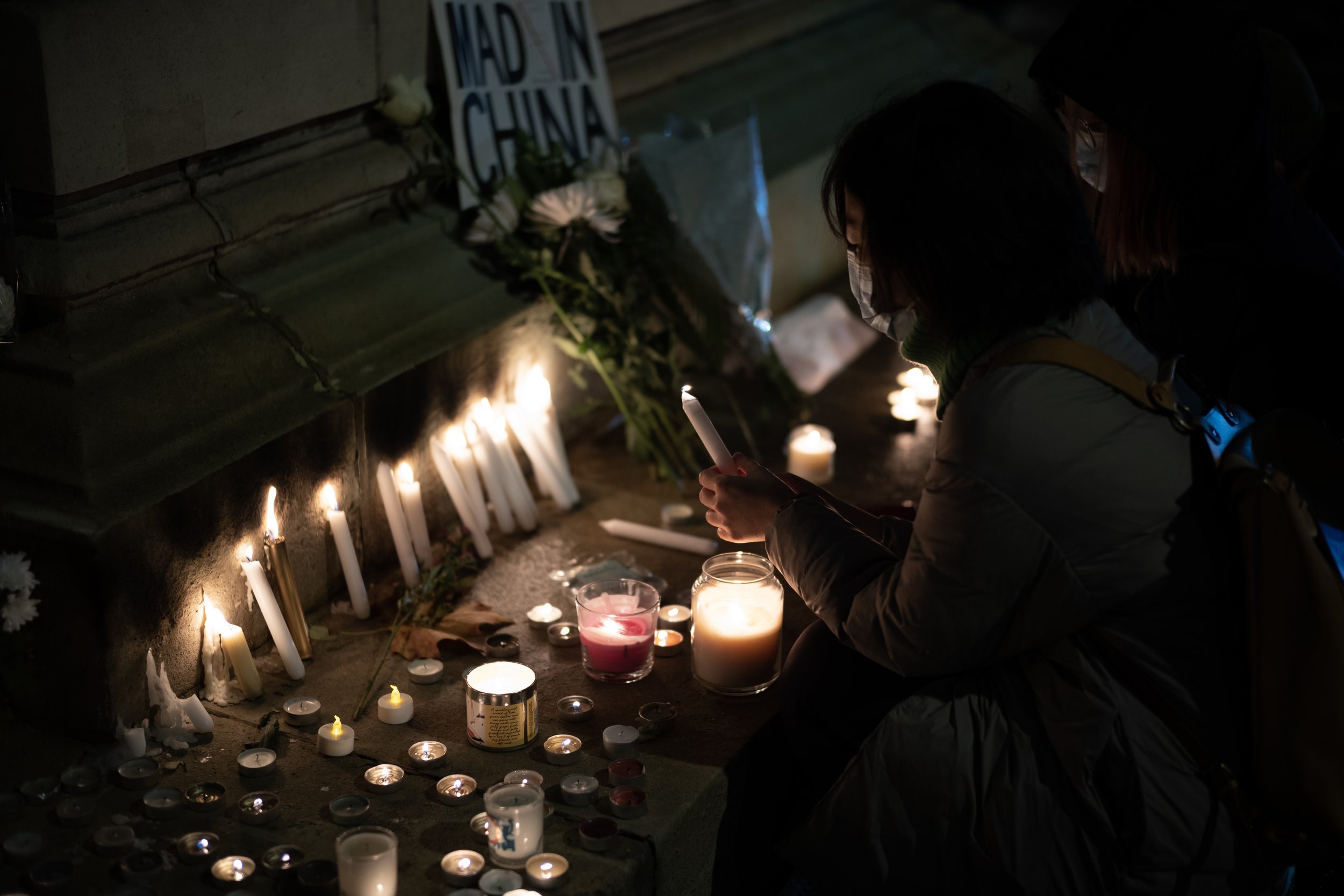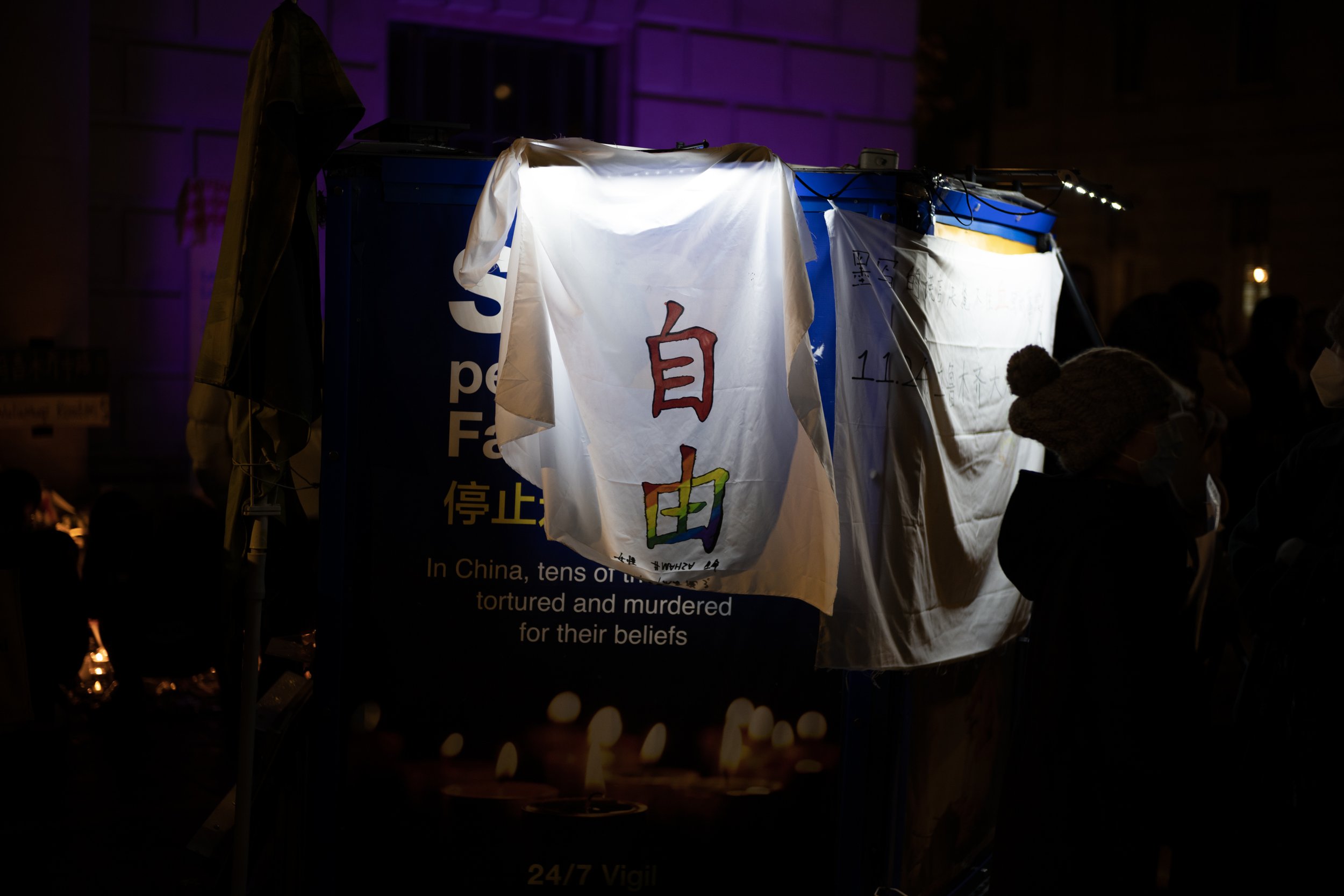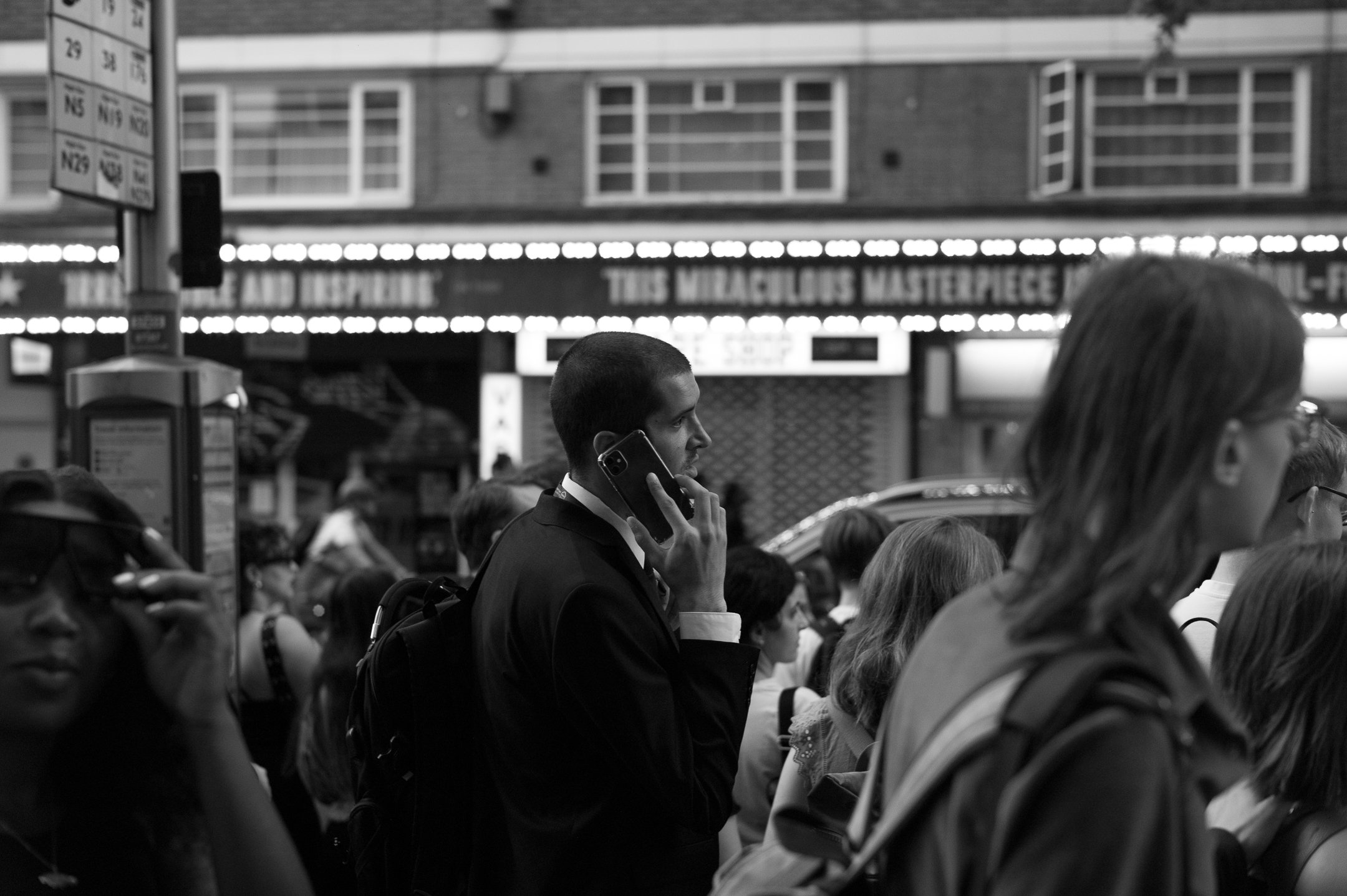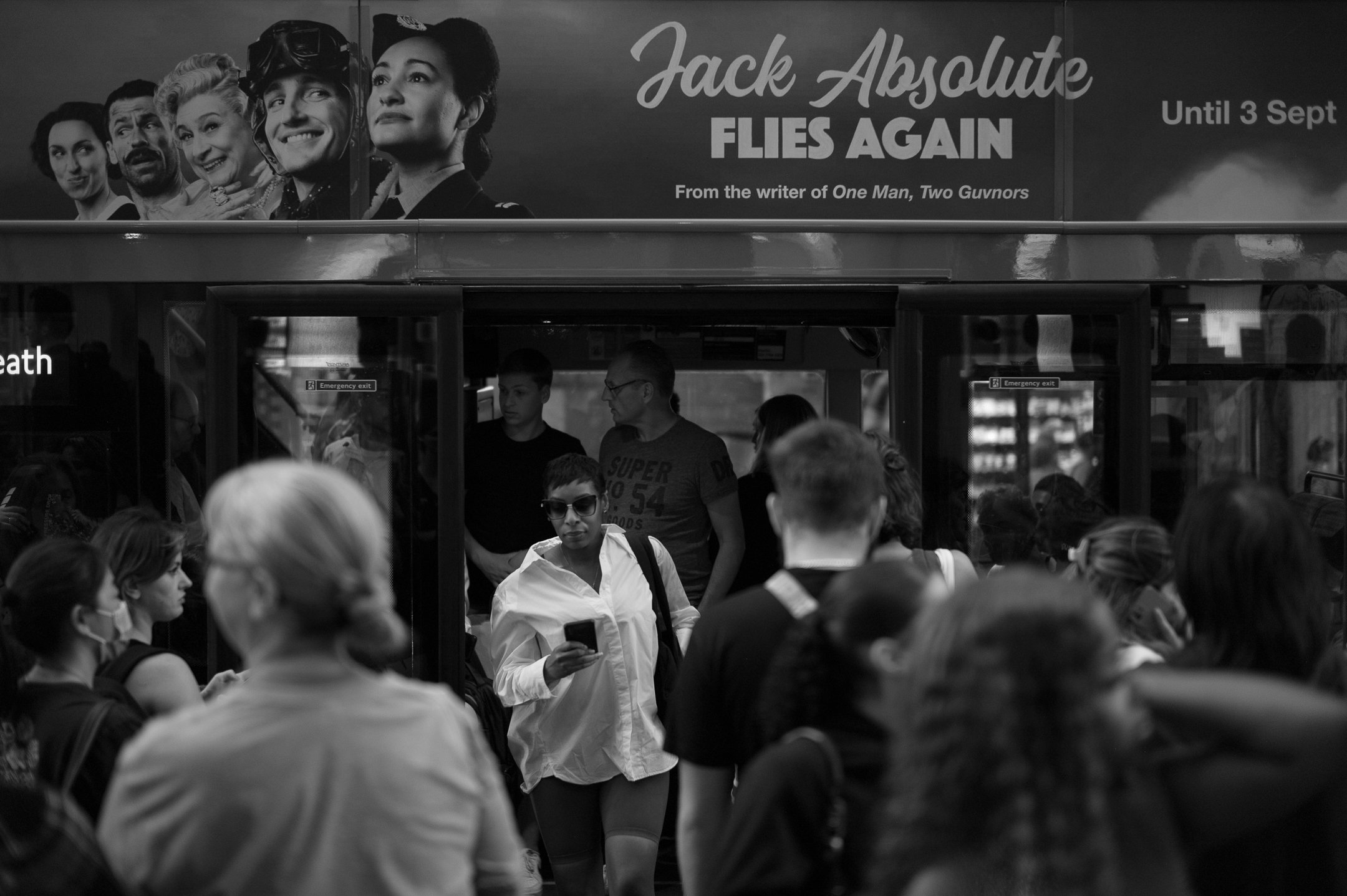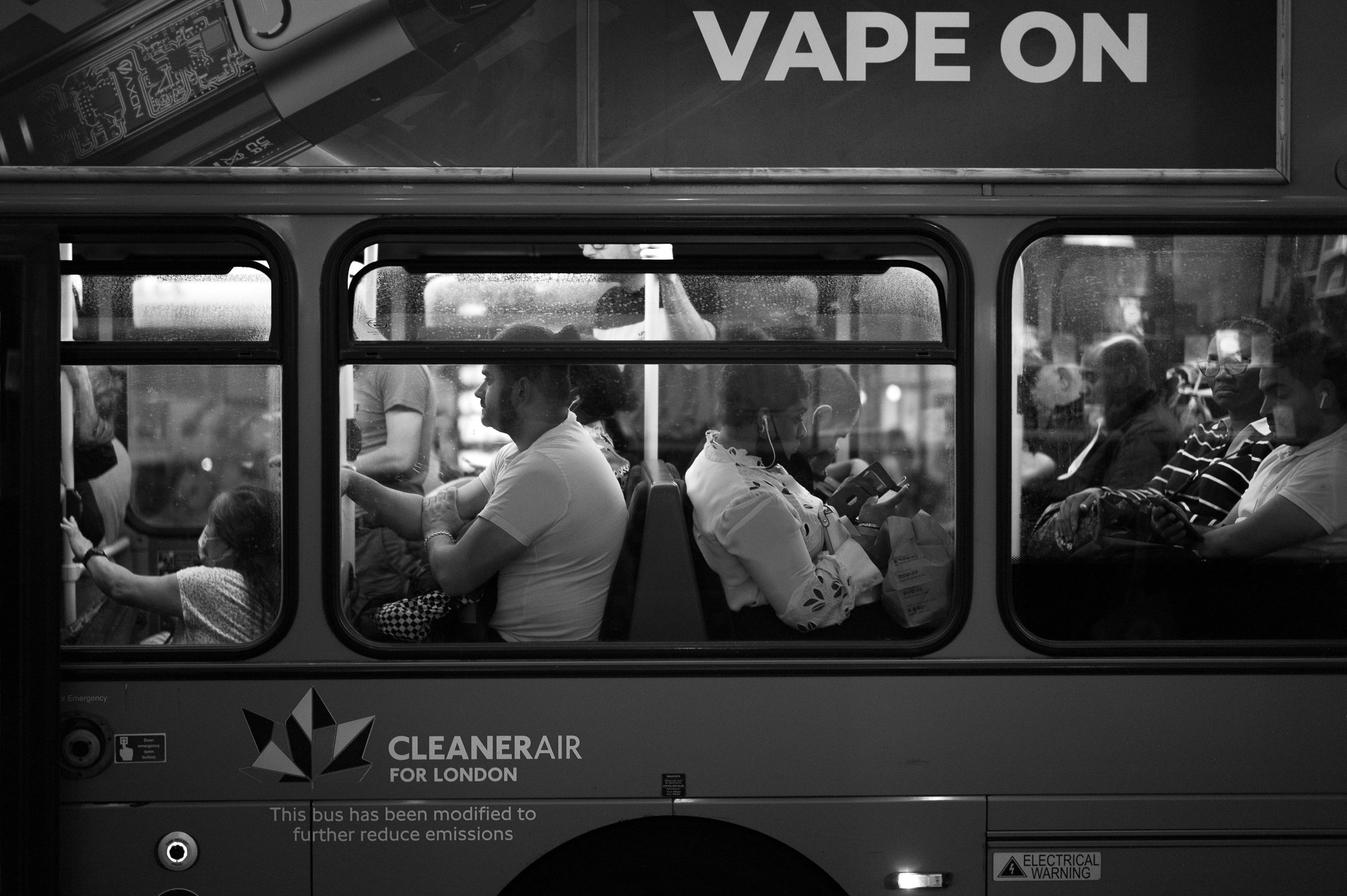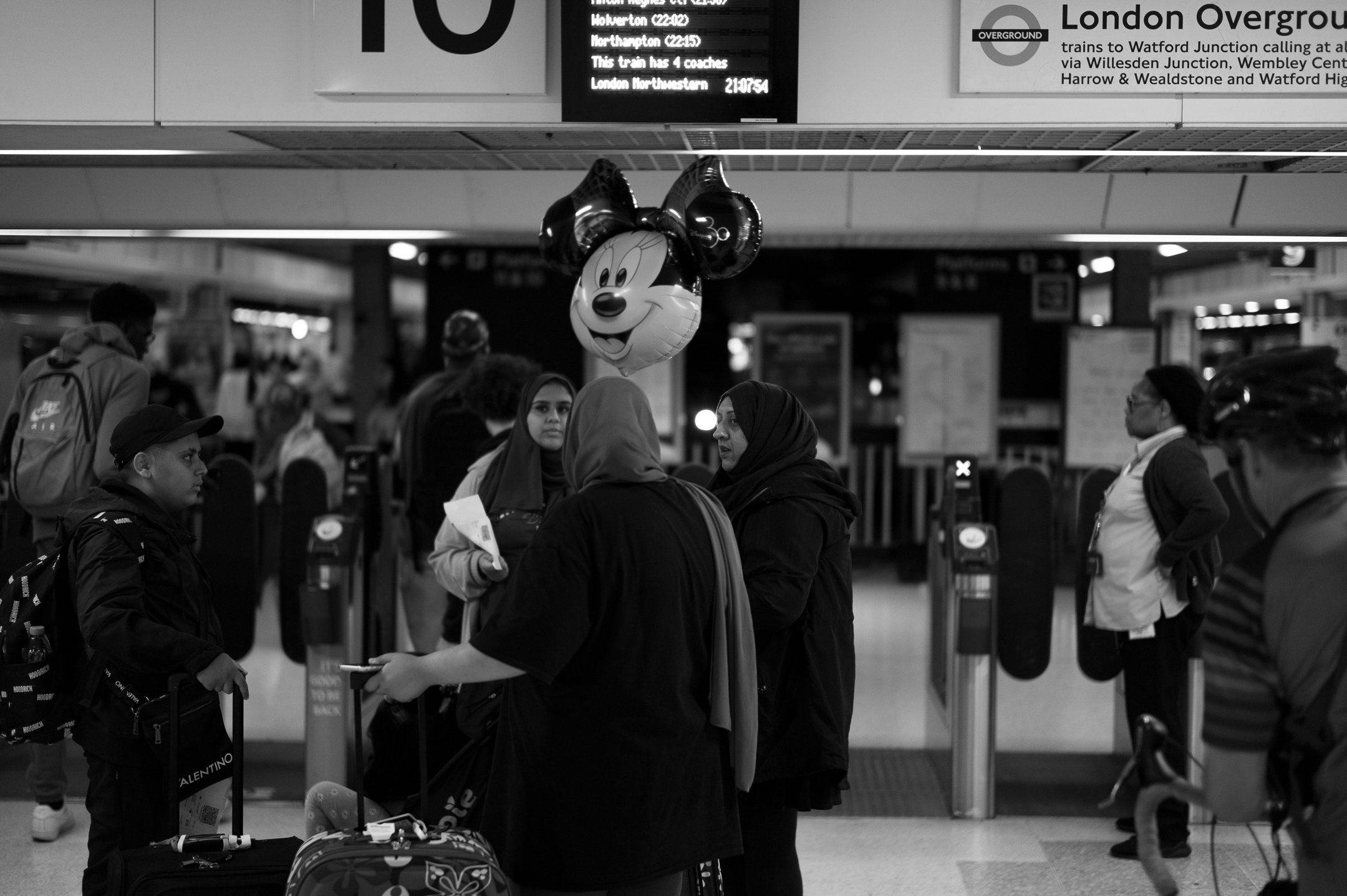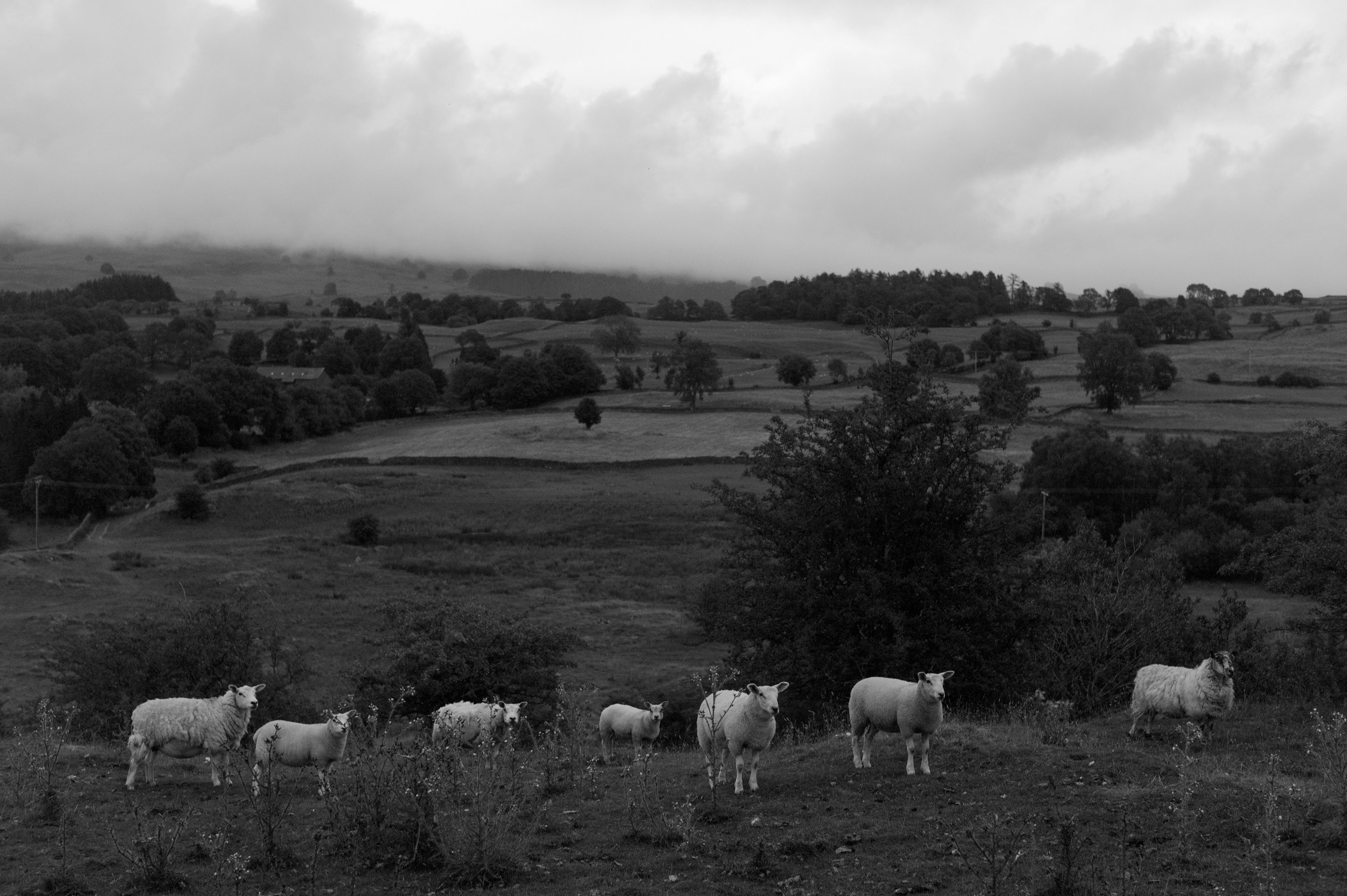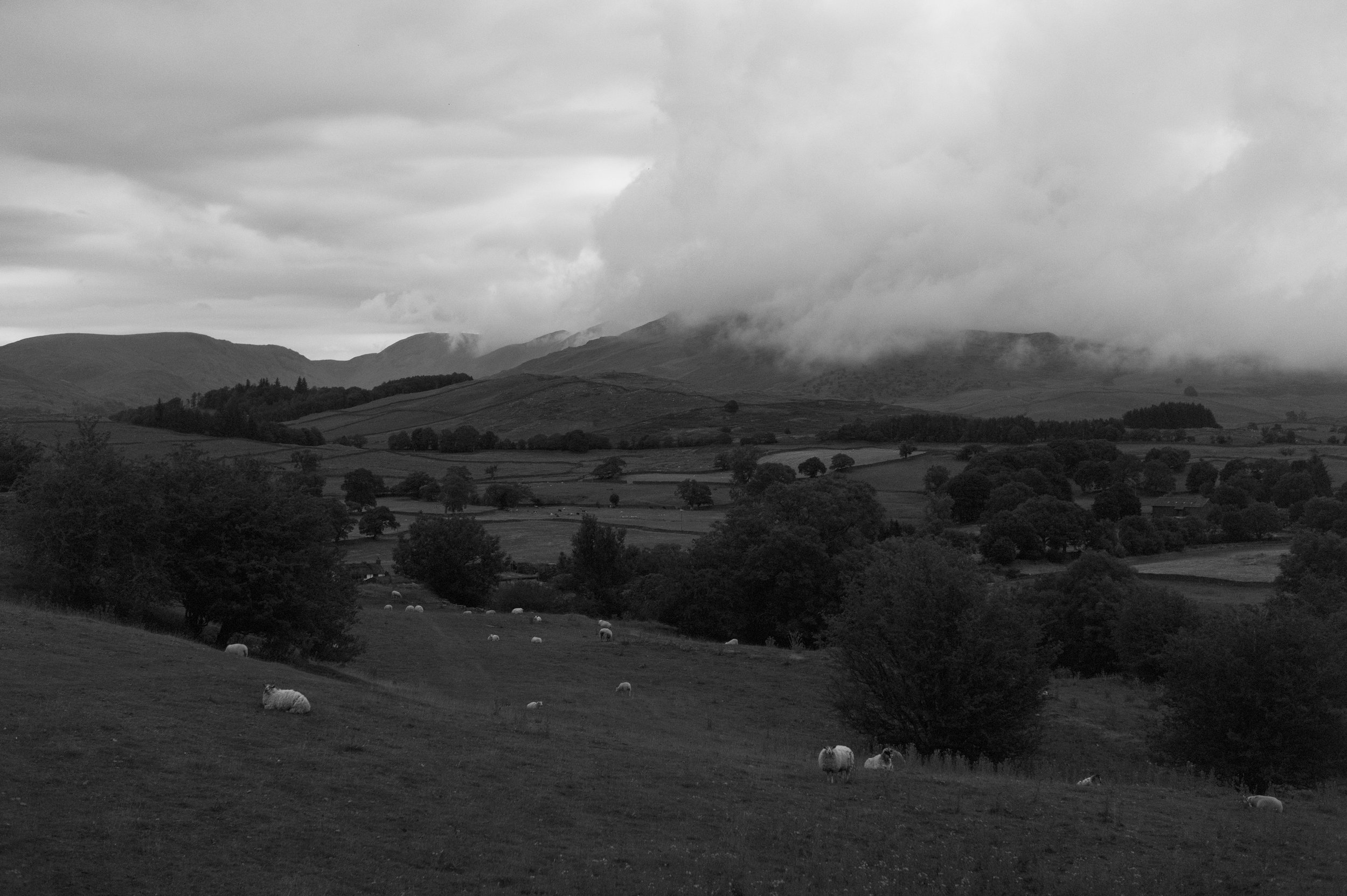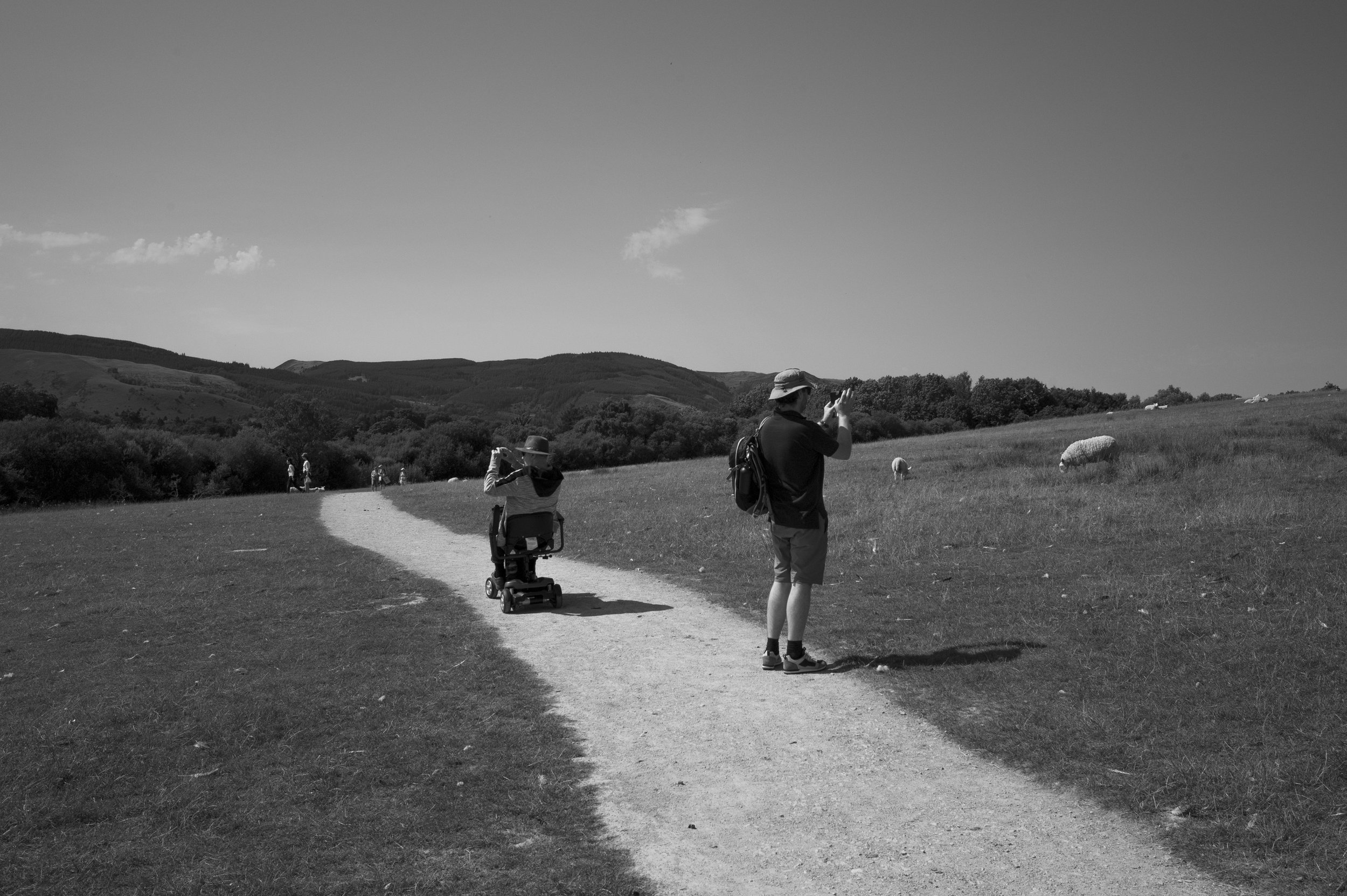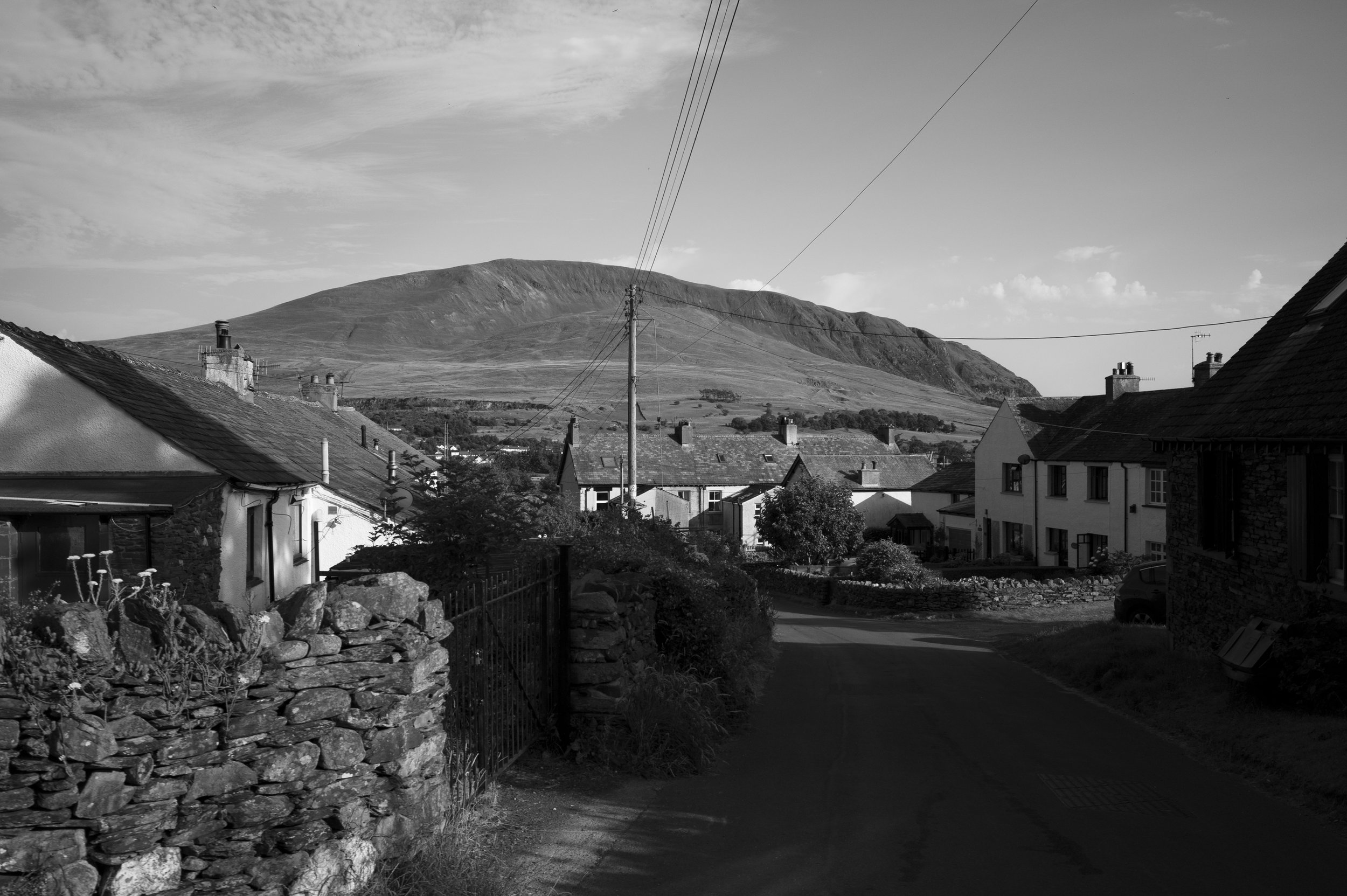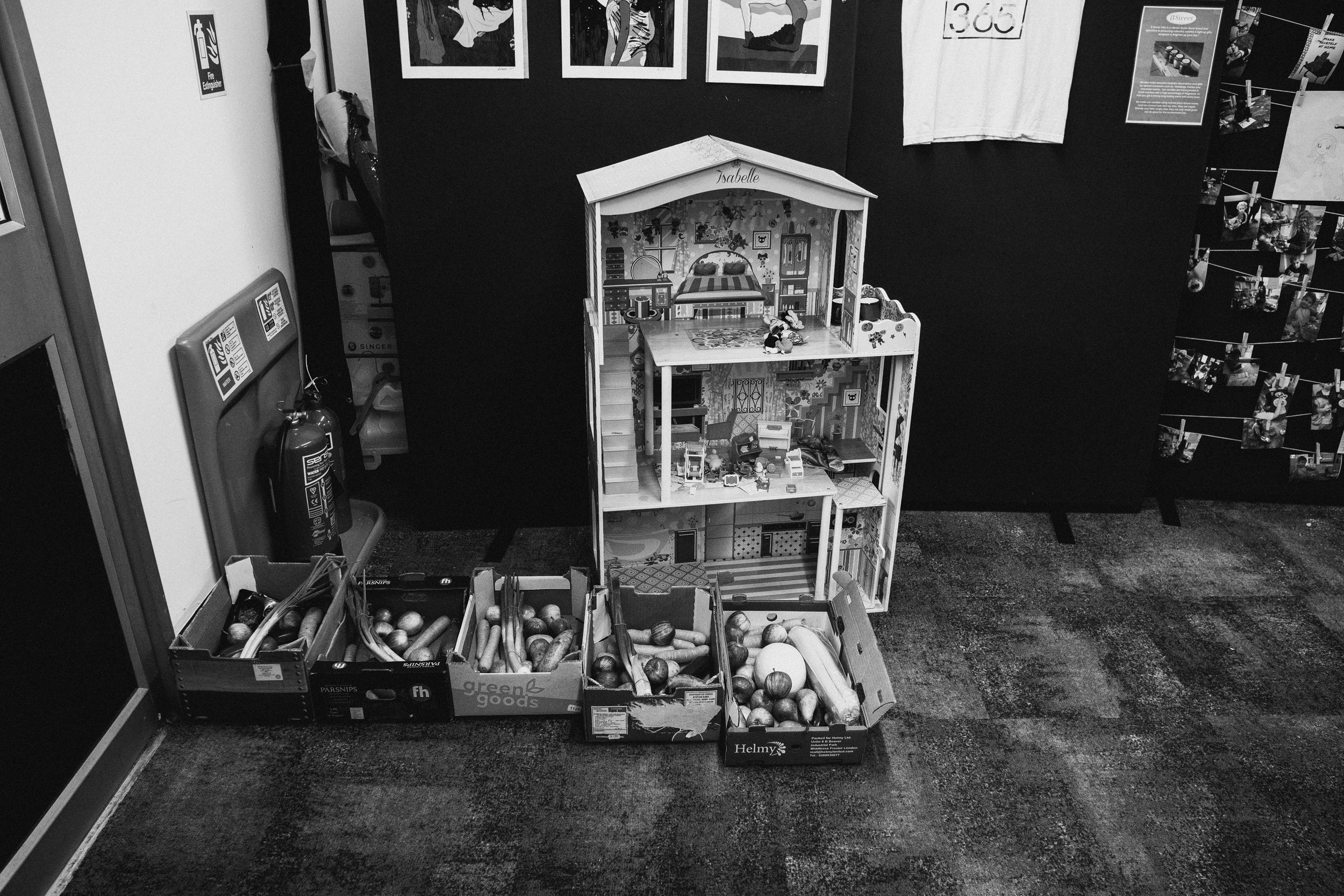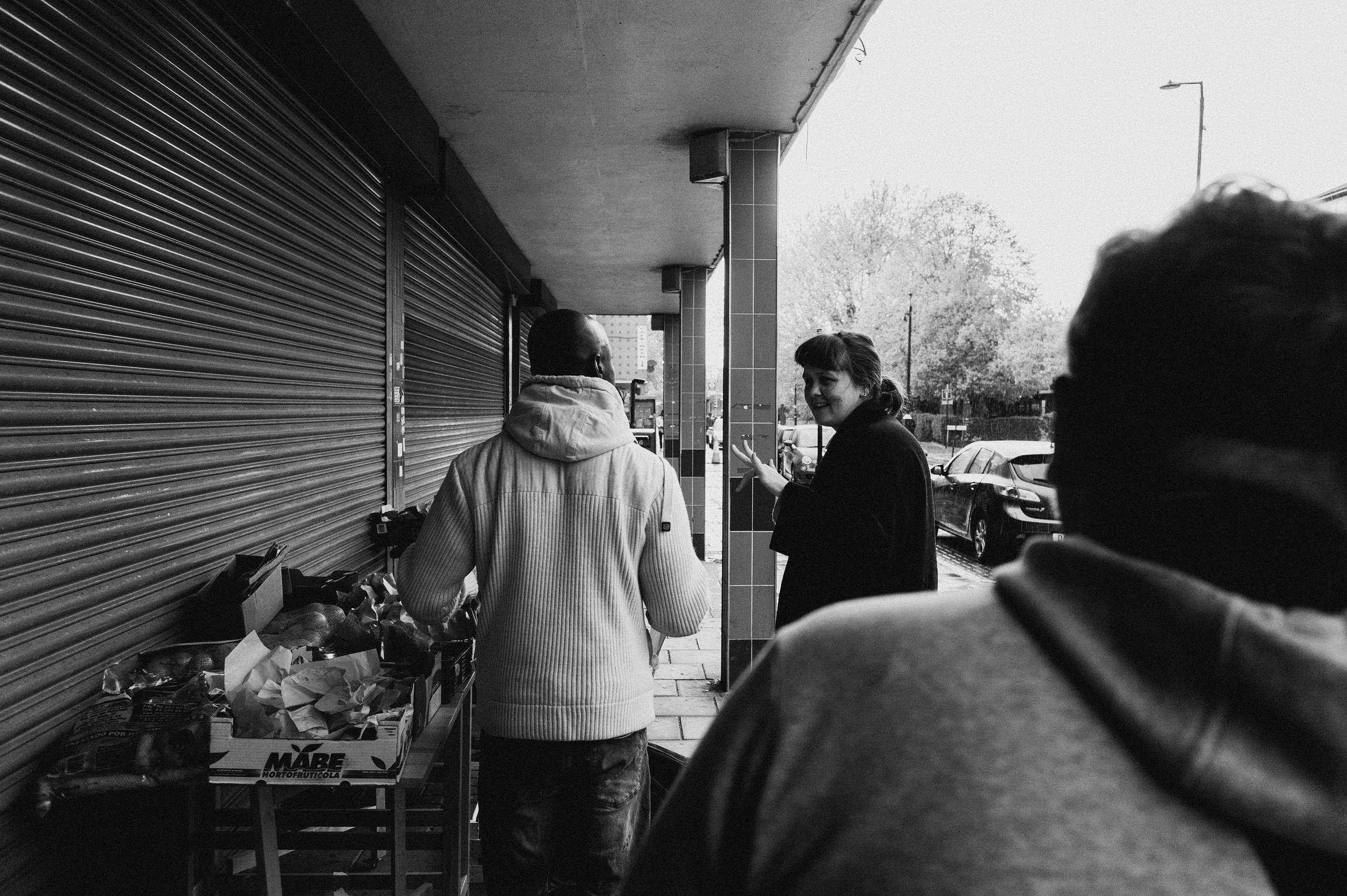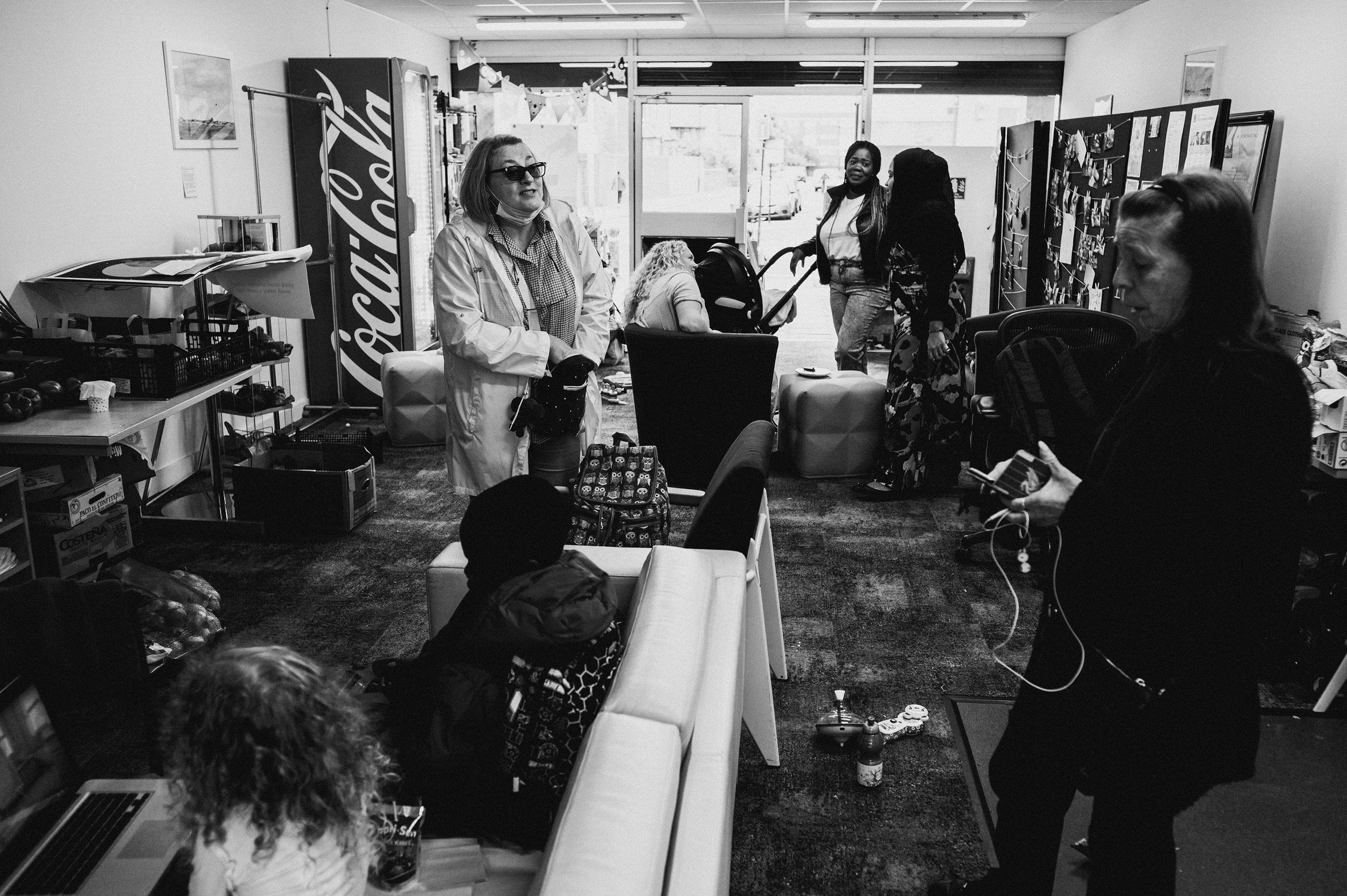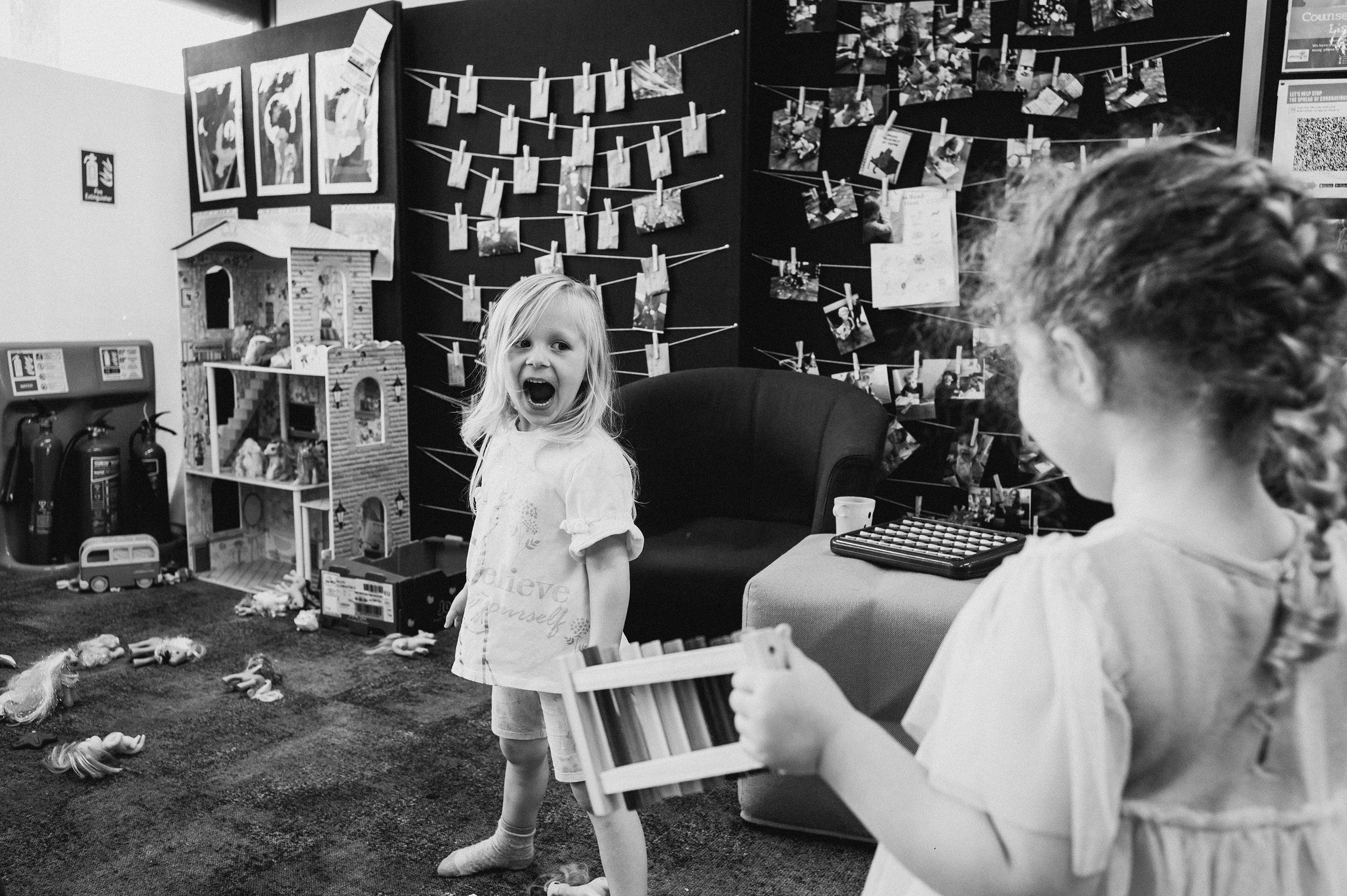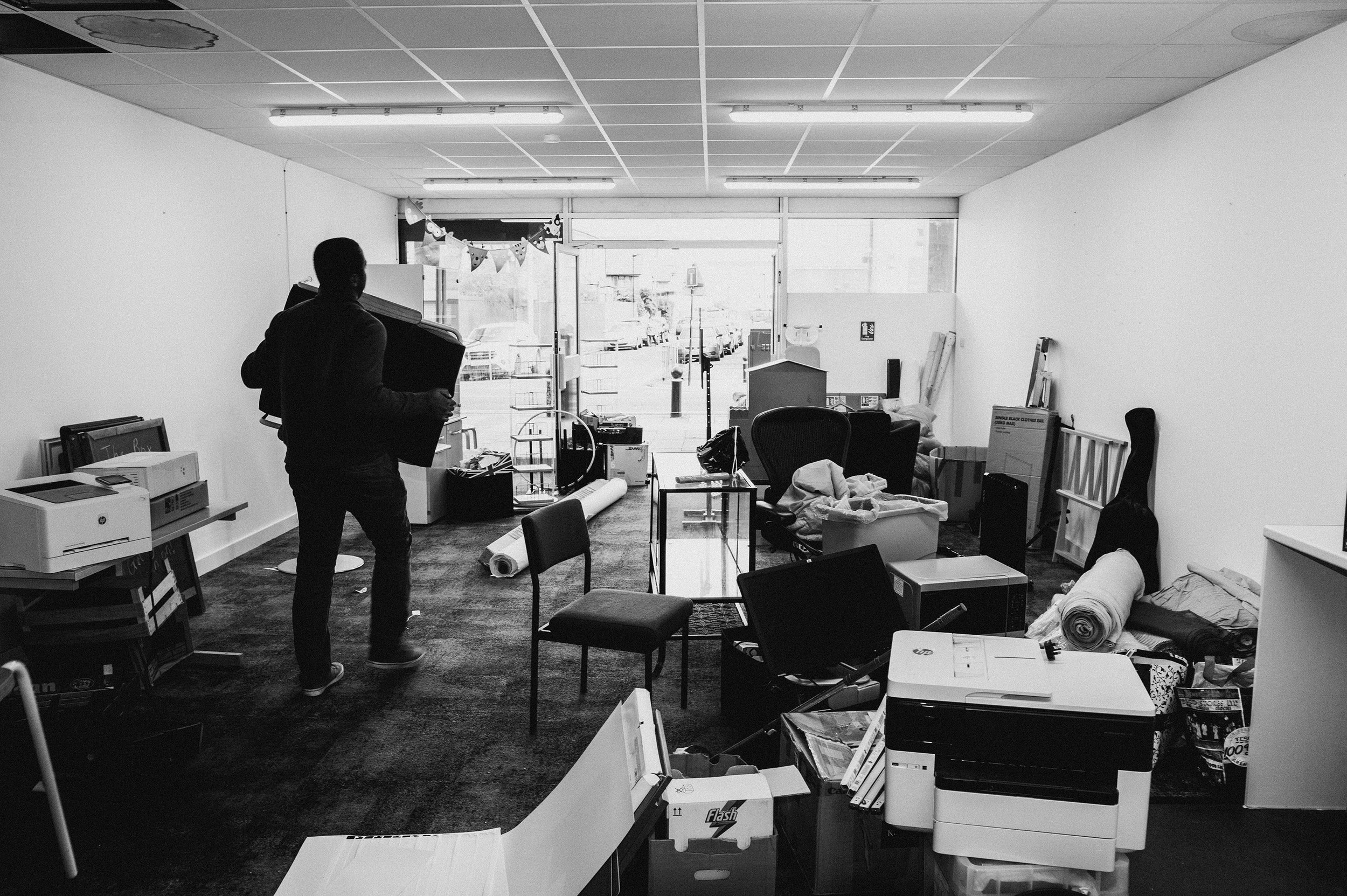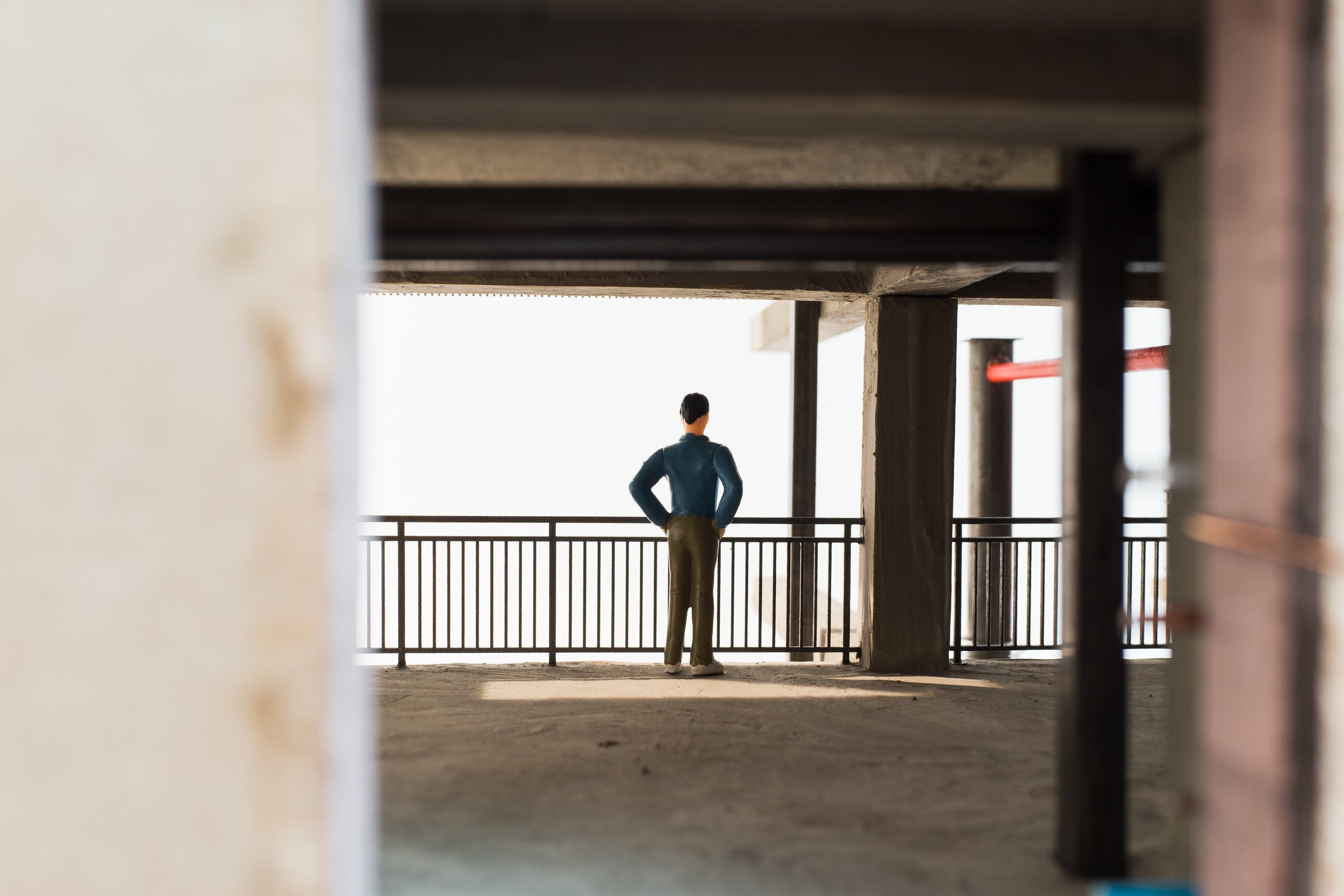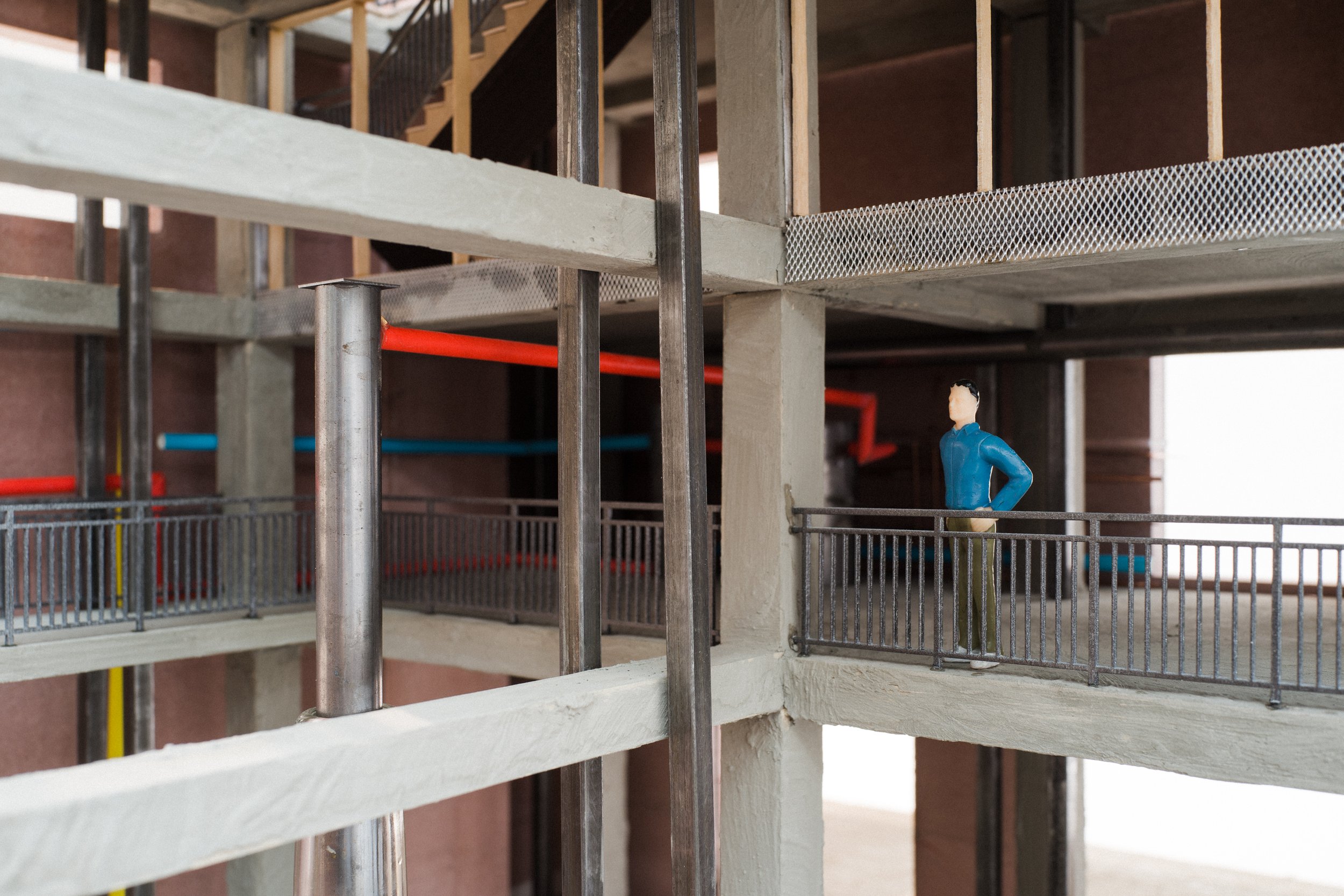Boundary Estate Community Portrait
Behind the scenes
Leica M Monochrom with Summicron-M 28 mm f/2 ASPH. Leica CL with Summicron-M 50 f/2;
A Tale of Two Panels
Concrete Panel was the weapon for state to spread the construction of New Towns during the postwar period in strategic parts of the country in order to redistribute the workforce and economy. With high density housing, recreation facilities and the notion to forge community, the driving intention behind the self-contained nature of New Towns was to maximise the health, moral well-being, and productivity of the workforce.
1980 Housing Act gave the right for council tenants to purchase their own homes. However they were unable to do so in Thamesmead. The shared services, literally cast in concrete panels, prevented the privatisation and individualisation of each flat. Tenants were refused access to insurance and mortgage. By 1987, sales of flats in high density council housing under Right to Buy constituted only 5 percent of overall sales across the country. Indeed, Thamesmead, but also New Towns and council housing in general simply not designed to be privatised.
My proposal is the timber panel system made by local resident would act as the means to repair and rebuild what was once lost to privatisation and demolition. It also to generate a stream of revenue through the sale of the timber panels and feeding profits back to the local economy. Restoring the infrastructure that made collective urban life possible requires not only an alternative plan to demolition, but also an alternative economic framework which would act as a counterpoint to the imperatives of neoliberalism.
08.09.2022
I arrived at Heathrow Airport on 8th September 2018 around 3.30 in that afternoon. 4.30 I was just out the customs and jumped on a Piccadilly line train to Holborn. I still remember how excited I was on that day. I captured what happened the same day four years after.
Mountains May Depart
On the way back to the city, I opened the book that I read halfway while I was on the train to the town. Suddenly I had a feeling that I just woke up form a long dream. A dream that bring me back to the place I spend my childhood with.
Equipment: Leica M Monochrom with Elmarit-M 28 f/2.8 ASPH(II), Summilux-M 50mm f/1.4 ASPH; Century Graphic 23 with Carl Zeiss Planar 80mm f/2.8; Kodak Vision3 50D/5203 (35mm and 65mm), Kodak Ektar 100, Kodak Gold 200 and Instax mini film.
more photos coming soon
〰️
more photos coming soon 〰️
Gigged: the future?
On 23rd March 2020, UK prime minister Boris Johnson announced a national lockdown due to the Covid-19 pandemic. People are urged to work from home, most of them packed up their desks and relocated their workstations into their homes - the bedroom became their office, and the kitchen became their meeting room. However not everyone can work like this, a group of people called essential workers are still allowed to travel for work. For example, the people working in the supermarket to ensure we have enough food in our fridge, in the post office that delivering the good we ordered online and in the hospital to cure us when we got ill. Among them, there are people who drive their own car or ride their own scooter to accomplish the jobs they found on their phone - either through the app they registered or the online website. We called them gig economy workers.
After Boris's announcement, I was trying to buy an office chair on Facebook Marketplace - I know I have to spend all my time in front of the computer for the rest of the academic year. When I found an appropriate one from a girl who lived around London Bridge, I ordered an Uber to move it to my home. I opened the app on my phone, put the destination in, sent the request, and almost instantly, someone took my order. It was a 30 mins journey. On the way home the driver complained to me about the decision that Boris Johnson had made. “lockdown made my life much harder. I have to work and I have children to feed. Right now not many people come out, the money I can earn became much less.”
Ten years ago, when Uber launched at SXSW 2011, took a job from mobile phone beyond what most people can imagine. Uber made two apps: one for drivers, and one for customers. When a customer requested a ride, the app would send a notification for nearby drivers, who can decide to take the job or not. The Uber company took permission fee from each task. They do not need to provide any hardware - the drivers use their own car to finish the job. In fact, Uber did not have employees either - they called the driver as an independent contractor. Unlike companies that have to pay the employee for their coffee breaks and must trade them according to anti-discrimination laws, there is no requirement for companies to provide training, equipment or benefits for independent contractors. The consequence is the gig economy worker has no sick pay, holidays, minimal wages or any insurance.
Despite independent contractors lack of stability and benefit, the number of people taking this type of job increased significantly. In the US, the number of people who earned money through platforms like Uber, Airbnb grew 47-fold between 2012 and 2015. By 2016, 20-30% working population in the US and EU worked as a freelance. For companies, shifting work to independent contractors was the way to reduce cost and liability; For workers - especially those millennials who do not agree with obtaining a job is the path to dignity, security and independence like their parent, freelancing seems to give them flexibility and freedom.
One reason more people taking the freelance job is many people do not like 9-5 jobs. An annual Gallup palls between 2011 and 2015 indicated that in the US, 70% of workers said they are not engaged in their working. "People do not want to be employed" because "they like the ability to choose - the number of rounds they do, the number of hours they work." "People are increasingly building flexible career on their own terms, based on their passions, desired lifestyle and access to a much broader pool of opportunities than ever before in history.” "For the first time, I think in possibly history, work is flexible to life and not the other way around."
However, the flexibility promised by those gig economy companies it is not true for everyone. For those having scarce skills, such as graphic designers, programmers, journalists, life is undeniably easier after becoming a freelancer: no more office politics, no need to wait for the long chains of command from their boss, no need pretending to work when not having enough work, more free time and the earnings is same or even more than having a full-time job. But for those low-skilled workers, they have been damaged more than helped by this trend. Contracted cleaners and security guards earned 15% and 17% less respectively compared to their in-house peers. A report published by the US Government and Accountability office in 2015 found in general, the temp workers and freelancers earned about 10.6% less than "standard workers". So why are more people taking the freelance job even when they earn less?
The reason is for some people, finding a steady 9 to 5 job no longer an option. In other words, they do not really have a choice - taking an underpaid freelance job or not having a job. For those people, the gig economy provides alternative way to earn money. In the US, After Uber launched their service, the unemployment rate had fallen from 10% in 2009 to 6.6% in 2014. A Forbes cover story in 2013 explained that the sharing economy and gig economy had created "an economic revolution that is quietly turning millions of people into part-time entrepreneurs.” The future of work, which seems to become much easy to imagine than before, will be a point that no matter how complicated the task is, it could be ordered with the click of an app.
However, by the year Uber launched, almost all the taxi drivers and 13% population in the US were already self-employed or working as independent contractors. Around 45% of accountants, 50% of IT workers, and 70% of truck drivers were working for contractors rather than employees. Therefore, Uber did not invent a new way of working, but pushed this trend forward with new smartphone technology. We should not simply complain about those companies that provide the platform for the social issues amplified by the gig economy. But how do we end up like this?
In 1930, after the great depression, John Maynard Keynes predicted by the early twenty-first century, technology would have advanced sufficiently that could make us achieved a 15-hour workweek. Although in theory, productivity and capital growth already met the thresholds for this vision, we all know it did not happen today. In history, John Maynard Keynes is not the only one who optimistically dreamed about the new technology that would make a better future. Adam Smith sang the praises of the "very pretty machines" that he believed would in time "facilitate and abridge labour”. Oscar Wilde who a century later fantasised about a future "in which machinery will be doing all the necessary and unpleasant work." But in reality, despite we are in the midst of the fourth industrial revolution, many tasks in factories, businesses and homes already be replaced by automated cyber-physical systems, people work more.
However, a 15-hour workweek is not a dream for our hunter-gather ancestors. In 1963, Richard Borshay Lee headed to the Kalahari desert in north-east Botswana, spending time with one of the last of hunting and gathering societies, the northern Ju/'hoansi, or as he referred as '!Kung Bushmen'. He discovered Ju/'hoansi managed to meet all their basic needs on the basis of 15 to 17 hours effort of hunter and gather each week and spent smiler amount of time on other chores like papering food, picking firewoods, erecting shelters and making or fixing tools. This was less than half of the time that employed Americans spent on work, getting to work and on chores. The rest of the time what they do is leisure activities such as relaxing, making music, dancing, socialising or telling stories.
This lifestyle is a clue of how our ancestors lived in 95% of our species' history: People were remarkably relaxed on food quest, usually easily met their nutritional requirements and spent most of their time on leisure. It is very different compared to the stereotypical image of how hunter-gather lives. Usually, people think they endured a constant battle against starvation and survival. The reason hunter-gathers had so much free time was mainly because they only focused on meeting their immediate material needs - they did not care about accruing surpluses in everyday life at all. James Woodburn described it as an "immediate return economy". He compared it with "delayed return economies" of farming and industrial societies, in which the labour effort is almost always focused on meeting future rewards. This transition from hunter-gather to agriculture fundamentally changed how people engaged with the world around them and the understanding of time.
Unlike the foragers who focused almost all of their attention on the present or immediate future, tasks involved in farming is about achieving a future goal or managing a future risk based on past experience. The works they did in present, such as cleaning the land, preparing soils, digging ditches, sowing seeds, removing weeds, naturing crops, is for next year when seasons changed they can harvest enough food to support them go through next seasonal cycle and seeds to plant in the following year. Farmers have to use their labour to transform barren land into productive filed and spend time taking care of it. Fields that were left untended were soon reclaimed by weeds; Structures that were not maintained soon fell apart, and animals that were left unsupervised either ran away or were caught by predators. They had to do more work on food quests than hunter-gathers.
Another difference is, as the future is unpredictable, the challenge farmers faced was much bigger than hunter-gathers. It is true that hunter-gathers sometimes had bad luck on food hunting, but the suffering they had was only short-term - they can easily go to another field for hunting the next day as they tended to live within the limits imposed by environments and only required a small amount of energy. Those farmers, however, faced threats beyond their control such as droughts, floods and disease among crops which had a huge impact on food output. Unlike hunter-gathers can eat hundreds of different species found in the environment, they only relied on one or two high yield crops and it required them to skate perpetually on the edge of the natural limits to maximise the productivity of the land. The consequence of the delayed return process is when harvests fail, farmers are more likely to suffer severe, existentially threatening famines than foragers. As a result, they started to focus on accumulating resources.
Although in theory, the increase in productivity led by hard-working, adopting new technologies or acquiring new land in farming societies means more food supply and it should make farmer's life easier, it is only true for making one or two lucky generations thrive. Thomas Robert Malthus observed that agricultural output only grew 'arithmetically', whereas population, which he calculated tended to double naturally every twenty-five years. He believed as the result of this imbalance growing when food supply increased due to improvement on productivity, farmers inevitably had more mouths to feed, with the result that any per capita surplus was soon lost, everything back to a more miserly baseline. Today we called this phenomenon as a 'Malthusian trap'.
Malthus also pointed out why the population in agricultural societies keep increasing. Apart from the raw uncontrolled lust, farmers were all aware that the harder they work means they might eat well in the following year. They could do a lot of things in order to reduce the near-existential risks, but all of these involved work. When they had limited labour to spare, an obvious solution to this problem was to procreate. However, for each new labourer they gave birth to not only means they have an additional mouth to feed but also after a point resulted in a noticeable decline in food yields per person. They put themselves into a 'Malthusian trap'. As agricultural societies continued to expand, prosperity was usually only ever fleeting, and scarcity evolved from an occasional inconvenience that foragers stoically endured every once in a while to a near perennial problem. The only solution to it was working harder and expanding into new territory.
Therefore, it is not surprising that human beings deeply embedded the concept of scarcity in farming societies as it was often a matter of life and death, and it still underwrites how we organise our economic life today. The reason we had the assumption on hunter-gathers suffering on food supply is because of our concept of 'problem of scarcity' - We believed resources are limited and what we worried about all the time is how to extract the living from it like those farmers. This is also been referred to as 'economic problem' by economists, the idea that we have infinite wants but that all resources are limited sits at the beating heart of the definition of economics as the study of how people allocate scarce resources to meet their needs and desires. Economists believed that scarcity is what drives us to work, and only by working we can begin to bridge the gap between our infinite desires and our limited means.
However, our hunter-gathers ancestors believed the environment generously sharing food with them unconditionally, and as a result, they did not feel the need to work hard. In fact, they evenly distributed all the resources among them. They did not have chiefs, leaders or institutional authority figures inside society - no one was able to lord it over anyone else. Nicolas Peterson, an anthropologist described their redistributive practices as 'demand sharing', a term to describe all societies where food and objects are shared on the basis of requests by the receiver rather than offers made by the giver. By ensuring everyone has the right to tax others, the material wealth is always spread evenly. No matter how productive they were, they can always have something to eat. Therefore, there is no reason for people wasting their energy to accumulate more material wealth than anyone else, and they did not view hard work as a virtue. In other words, they saw their relationship with each other as an extension of the relationship they had with the environments, as environments shared unconditionally with them and they shared with others in return.
Farmers, in contrast, saw themselves exchanging theirs labour with the environment for the promise of future food, they believed the work they did for making land productive as the land owed them a harvest. When they extended this labour/debt relationship with their land to each other, the result was they only sharing with their household or a core group of kin. Sharing was framed as exchanging, and there was no such thing as a free lunch in their societies - Everyone had to work, and those who worked hard had the highest likelihood of survival. This working culture and the culture for accumulating resources became an unquestioned principle in modern culture.
If we look at what jobs existed in the 1930s, we can make Keynes' dream come true if we had kept up the same type of job profile. Back the time there are a lot of people working in industry, agriculture and domestic servants and now that is all gone. People had been ejected from the production lines because of the new machines. Instead of having more leisure time after being replaced, they had been pushed into the service sector. According to the UK Office of National Statistics, 83% of working people in the UK are now employed in the service sector. In 2013, David Graeber wrote a short essay to differentiate between the jobs that were genuinely useful like teaching, medicine, farming and scientific research, and the apparent efflorescence of other jobs that served no obvious purpose other than giving someone something to do such as corporate lawyers, public relations executives, health and academic administrators and financial service providers. He referred to them as “bullshit jobs” and defined them as “the employment that is so completely pointless, unnecessary or pernicious that even the employee cannot justify its existence”. Many jobs we created in the service sector simply because we feel that humans cannot live without organised work.
When we think about the future of work, especially to rethink the life of those who lack of resources and forced to push out the job market, we have to break out of the notion that was shaped around scarcity which was forged when we were farmers living in the land that we had to work in order to survive. Uber and other gig companies showed the option under the notion of scarcity, but our hunter-gather ancestors gave us a clue when a society no longer have the ‘economic problem’ might look like. Working harder is not a solution for the ‘economic problem’ today, we have to redesign the system when more people taking freelance job as 9 to 5 job no longer an option to redistribute resources in order to find the path to our economic utopia.
Buy One Get One Free
A spacial intervention during pandemic.
01 No.3 Freemasons Road
It was February 2021 when I met Scarlett and her daughter Amber for the first time. The UK is still on national lockdown during that month. Most of the shops were closed, only the places considered necessary were kept open.
Scarlett was selling fruit and veg boxes every Wednesday during the lockdown at No.3 Freemasons Road, Custom House, an area in the London Borough of Newham. She saw local people having trouble accessing affordable fresh vegetables when shops were closed, so she contacted a local wholesale dealer to provide food boxes every week in a unit space that the council allowed her to use.
Amber usually follows Scarlett to the unit space. Unlike adults who can have a chat when they buy the food box, Amber was quite lonely - not many children visiting the unit space so she usually just spent time watching cartoons on her iPad. That was the time I thought to make a toy library in this space and got the first collection of toys on Facebook Marketplace.
02 The Shop Goes On
The shutter of this unit had some issues - two middle columns were sinking into the ground caused by the ground settlement, and only the shutter in the middle can be opened. Scarlett reported this problem to the council and after waiting for several months, the repair team came to resurface the pavement. But they didn’t think lifting the shutter should be their job. In the end, Scarlett herself had to find someone to repair the shutter.
When the shutter was broken, activities inside the unit had been moved to outside.
03 Back In Business
After the shutter had been fixed, we rearranged the position of the furniture inside the unit. The area close to the door became the playing area as there was much more sunlight coming in once the door was opened. When people pass by the shop they can easily see what happens inside the unit. It attracted more children to come in. The food box preparation area was moved to the back of the unit and more chairs were brought to the space. When people came to collect food boxes they stayed much longer than before - they will sit down to enjoy a cup of tea and some fresh fruit.
I also noticed that more mothers brought their children to this unit. While their children play together, they can sit down to have a chat or drink tea. They were taking turns to look after the children so others could relax. Gradually, people began to bring things to share - the cake they made or toys they don’t need any more. This unit space became a collective childcare.
Design Proposal
04 Moving Out
The Newham council took back this unit space in October 2021. Scarlett had to move out and find a new space.
Those who stuck in the system
The era of digital control.
In September 2020, a report on Chinese magazine Renwu titled “Delivery riders, stuck in the system” raised a heated discussion on Chinese internet. The research focused on Chinese delivery service industry, pointed out the software that the delivery platform used is utilising AI and big data technology to analyse the rider’s performance and shrink their delivery time. It caused the worker has to break the traffic rules due to under the pressure of getting bad review from customer and fine from platform because deliver beyond required time. The article argue the high traffic accident rate among delivery workers caused by the rider do not have enough time for each delivery. Two biggest delivery platforms in China respond immediately after the report been released, one give customer option to choose waiting 5-10 more minutes, another platform “Meituan” give their worker 8 minutes tolerant time in their software.
The solutions two companies provided indicate the problem can be solved by customer - if the invisible hand pushing the delivery worker to take risk was the afraid of consumer waiting their food too long in home or office, therefore, when we have more patient to wait our food then the worker will chose a safer way to ride their bike. On Weibo, the Chinese version of Twitter, “be nice to delivery riders” occupied the top trending for weeks. Some people proposed that when next time the rider delivered your meal beyond the time your expected, you should put yourself on their shoes and shouldn’t leave bad review because it was late. It suggests the consumer has the power and ultimately in charge, the choose we made can make difference. However this is simply not true.
The reason customer expect their food will arrive in certain time is they informed by the software they using. The GPS built in the phone can communicate with delivery software to track the location of rider and customer. Even when people inside building the application can keep locating via the wifi and bluetooth. Customers and riders cannot decide to share these information or not - if you using delivery service, your information automatically be collected without notice. The system uses this information to speculate the status of rider - whether they are walking, running, cycling, standing, climbing stairs or taking lift. Base on these status and the location of the rider in each order, the system utilises algorithm to calculate the time that rider staying in restaurant waiting for food to be prepared, spending on the way to customer’s place, waiting for customer to fetch the food after they arrived. Combined with each order information and the feedback customer gave, the system knows the speed of each restaurant for making food, the efficiency of each rider on delivery, and how tolerant each customer is. More importantly, in each order the system can plan out the route and estimate the delivery time based on these information under different condition such as weather, traffic and which floor customer live.
This information not only used for gave instruction for works, but also be used to supervise them. When finishing each order, the software will use the location of rider to check whether the order is real or not. If the pick up and drop location did not match the address of restaurant and customer, or the order finished within 5 min, the software will determine the rider is cheating. Moreover, each customer can check rider’s real time location during delivery. When they find the rider choosing the wrong way or delivering other’s food first, they could call the rider urge them to deliver his food on priority. The customer took the part of role to supervise delivery worker, and it increased the conflict between customer and rider.
One reason is customer can evaluate the performance of rider and this influences the income of riders. Normally, rider will be paid 8 Yuan (0.92 GBP) for each order, but if they deliver beyond time limited this money will cut to half, and will get 20 Yuan (2.31 GBP) fine if received a bad review, 200 Yuan (23.10 GBP) fine if customer made a complaint. After finished on order rider will receive a virtual point as well. If the customer gave good review, rider will get 2 more point, but if he didn’t deliver on time the point will deduct 4. Based on this point each rider had, they has been categorised by 24 different levels. Higher level rider has priority to chose new order. Usually the rider only know the review from customer after finishing the order, and one bad review can let the all effort he put on delivering worth nothing. While they doing delivery job, the customer is only entity to influence the money they can earn in this process, therefore it is not hard to understand why customer became the object for complaining although the rule that system provide taking more responsibility.
This becomes the way for those delivery companies to manage workers - It seems the capitalist do not have control over their workers, but actually they still having the power. They are hiding themselves behind the software, and shift the conflict between them and worker to customer by the reward and penalty mechanism they designed. In 2019, each day has more then 30 million order been made on Meituan application. The system analysed this huge amount of information and using them to instruct, evaluate, reward or punish workers. This is an example of control in digital era. For capitalist, it is still important to transfer the control of labor process form workers to their own hands. This process of capitalist control workers already has a long history.
However, the beginning of control was mean to improve worker’s life. In 1910, Frederick Winslow Taylor began to examining people with stopwatch and slide rule in hand, teaching them how to do their work faster, scientifically. He called himself as “the father of scientific management”. In the beginning, he and his follower believe if workers could behave more efficiently, they can raise their wages, reduce the cost of goods, even improve their standard of living. They believed “efficiency is the hope of democracy.” However this dream did not come true. Making people working more efficiently did not make their life better. When productivity increases and working hours stay the same, “Ye’re worked like a slave all day and when ye get out ye’re too tired to do anything.”
Scientific management was utilised by factory owner to increase the productivity. It became a way to organise workers by dividing the working process. Workers no longer have the overview on the goods they producing, instead their job become very specific. Through gathering the information relevant to production, centralising the information to management department and utilising these information to control every movement on producing, worker lost their control on working process. The task they need to do was given by manager or defined by production process, and it caused the separation of head and hand of labourer - the worker lost their knowledge on craftsmanship, only play the role of gears and levers.
We can witness the delivery platform adopted this idea as well - the process of delivery has been divided to specific movement and standardised. On platform each order has three phases for the rider: arrived restaurant, picked up the order and finished the order. After finished each step the rider has to confirm with software. Additionally, the software will provide additional information to let rider working more efficiently - the map in the application is showing in which area having more order need to be delivered; The estimated time gave the reference of the restaurant then they will finish cooking based on the history preference of that restaurant after accepted an order; The route will be planed based on realtime traffic information during delivery. The ability of high speed calculation behind software helps the platform update instructions in 0.55 millisecond, which is impossible in the factory before digital age.
This notion of pursue efficiency not only impact the working condition, but also shaped our everyday life. When customer working efficiently in office and using their phone to order takeaway, they want it be delivered efficiently as well. Meituan is using kangaroo as their logo and printed their slogan “Meituan delivery, fast delivery of everything” on the rider’s jacket indicates providing faster service for customer is their goal. It is true if the platform reduced the delivery time, pursue the extreme efficiency, they can increase the satisfaction of their customer, keep them stay in same platform, therefore, they can have more possibility to survive in the competition with other delivery company.
However providing fast service to customer is not the mean reason to make Meituan occupied major market share. During the Chinese new year in 2016, another delivery company Baidu takeaway choice to give their rider money to go back home to enjoy the spring festival with family. Meituan, in contrast, by recruiting more rider during the vacation, giving money back to the customer via red envelopes, occupied major market. Many people believe letting rider enjoyed vacation cause Baidu takeaway lost the battle, the discount in each order attracting people who even have enough time to making their own meal choosing to order takeaway.
The company desire exclusive power on the market, and will do whatever it takes to that power. The tale of free market could means for some capitalists to take over the market, in order to abolish the free market. The company like Meituan concentrated power in food delivery market, the size and the value of company made the similar new small companies unable to compete. Today the market value of Meituan is more then 200 billion USD, and have more then 4 million workers. Maximum their worker’s efficiency on delivery can help company accomplish more orders in same amount of time, and it helps company earn more service fee from it. But how to dissolve the opposition from the worker when company pushing them to their limits is another important part for maintain power.
In the beginning of factory, worker was much easier to consist than today. Apart from you can see the real people who manage the worker, the control structure has changed as well. In the beginning, most the factory developed form small workshop, the owner of the factory usually was skill worker as well. The owner can supervise, give instruction on the producing process by themselves. But when company grow bigger, the vertical management structure emerged inside company. For the worker, the foreman is their superior, and had fully control of them. This type of control is arbitrarily and favouritism, and worker easily to consist. In order to repression this conflict, bureaucratic control was embedded in company structure. Compare to control directly by people, bureaucratic control was using the rules and regulation to manage worker: what people can do and cannot do was written specifically on paper, and it also defined the duty and the range of work for workers as well. This specific instruction forced worker to focus on their own task, and it shifted the target of the worker when they want to complain. For example, in assembly line the worker usually complains about the speed of production rather then the employer.
Today, management decision even can be made without human be involved. On Meituan App, the time limit for each order was reduced from 50 min to 30 min, which include the time for restaurant preparing food. This change was made by the platform, based on the analyse result of the data it collected. The article on Renwu suggest when most of people can deliver the order within the limited time, the system will reduce the delivery time a little bit to check if most people still can deliver the order in time, if so the system will make same decision again and again. People have to follow the instruction and put their life on risk to ensure not deliver beyond the time limit. But when they following the rules, it actually made them has fewer time for next delivery. However if we go to examine how delivery rider works in real life, there is one part this article is missing.
It is true that the platform is reducing the time for delivery, however it did not make the order impossible to finish. If fact after I had a interview with a delivery worker, I found that the idea of single order is not really exist - they will try to combine orders as much as they can. After received first order, they will deliberately wait a bit so the system will allocate more order to them which need to be delivered to similar area. Some of them even find a way to extend their waiting time in order to get more order - the system allow rider has extra 20 min if the restaurant did not finish making food within require time. When they received first order they usually stop around restaurant but confirm on application that they already arrived. After waiting for 5 mins the system will predict the restaurant cannot make food on time, and then will give rider extra time for this order. Using this trick for waiting combined orders has already become the secrete everyone knows. While the time reached the limit, the question is they already delivered 3 orders or 6 orders. We could say it is the rider actively put themselves into the situation that have to break the traffic rules to take risk to delivery as much order as possible in single unit time.
In each year we can see the increase of number of rider working for Meituan as well. In end of 2019, Meituan has 3.99 million riders. This number increased to 4.7 million in the end of 2020, and 40% of new rider was working in factory before, 70% of them think become delivery worker has more freedom. The worker on assembly line do not have control on the speed of producing, the time to start / finish work, when can have lunch / take a break and the task to do. Even when can go to to toilet was not decided by themselves. Although both factory workers and riders get paid by the number of jobs they completed, the number of things can produce by factory is depend on the speed of assembly line, each month the income won’t have dramatic change. In Guangdong, most factory workers earn around 4000 yuan (462.15 GBP) per month, with working 12 hours per day. In comparison, 77% of Meituan riders can earn 5000-9000 yuan (577.69-1039.83 GBP) per month, 11.5% of them earn more then 9000 yaun. The money rider can earn straightly connect to the number of order they finished each day, work harder means earn more.
This is another characteristic of digital control: the people been control actively participated in this game. The mechanism of how Meituan works encourage the competitive individualism, the hierarchy of worker increase the conflict between them, the reward after each job keep workers’ loyalty to the company. The internal driven behind this, is the pressure of living. The average age of these riders is 30 years old, but 70% of them already married and had child. Only 15% of them went to university. Before doing delivery job, they were working as security, waitress, house cleaner, assembly line worker, construction worker, or farmer. Compared to other works, delivery rider has clearer way of counting salary, and do not have the issues of arrears of wages.
This new way of controlling already has global impact. The software became the key component of modern supply-chain management. Same as the one which delivery worker used on their phone, these globally used software has built in algorithms that distribute labor to making factory operating at their highest capacity. However same as delivery platform, the issue of this system is the people who design these software didn’t see the workers, and the designing process itself involved multi person. This is the direct impact of division of labour: Designing different components require different specialist, no individual be able to draw a detailed picture of the whole system. Furthermore, the data which fed into software has no explanation of how that date collected. This disconnection in human level letting software dominating the role to make the decision. A small change in system can end up with reducing a worker’s time for eating, taking breath, or seeing the loved one.
Today, trillions of dollars have been created in recent decades but everywhere this wealth is accruing to an ever-smaller number of households. The industrial model of managing worker still embed the new digital technology, and these technology did not liberate worker, instead it was used by capitalist to control their worker in a more extreme way. In the age of digital control, capitalist hand over the role of managing to digital platform. Through providing specific instruction to the worker, the worker lost the ability to against it. Instead, by providing the “Free choice on working time” for the worker, people who under the pressure of living embraced this system, the only reason however, is they do not have other better choice.
Ten Street Co-operative
Who benefit from regeneration program?
This project rethinks the way for regeneration.
Liverpool ten street is an old industrial area, currently under the transformation to a series of luxury housing and creative hub. Architecture becomes a tool for economy, but those who benefited from these processes are the wealthy middle class. This project challenges this traditional way of regeneration, proposes converting an existing building to a community owned soft drink factory. Bringing money back to local means people have more initiative to decide the future of this area. The public green space not only for growing ingredients, but also for building community bonds. Fully automation process provides more time to spend on leisure for workers.
The existing building.
The proposal.











